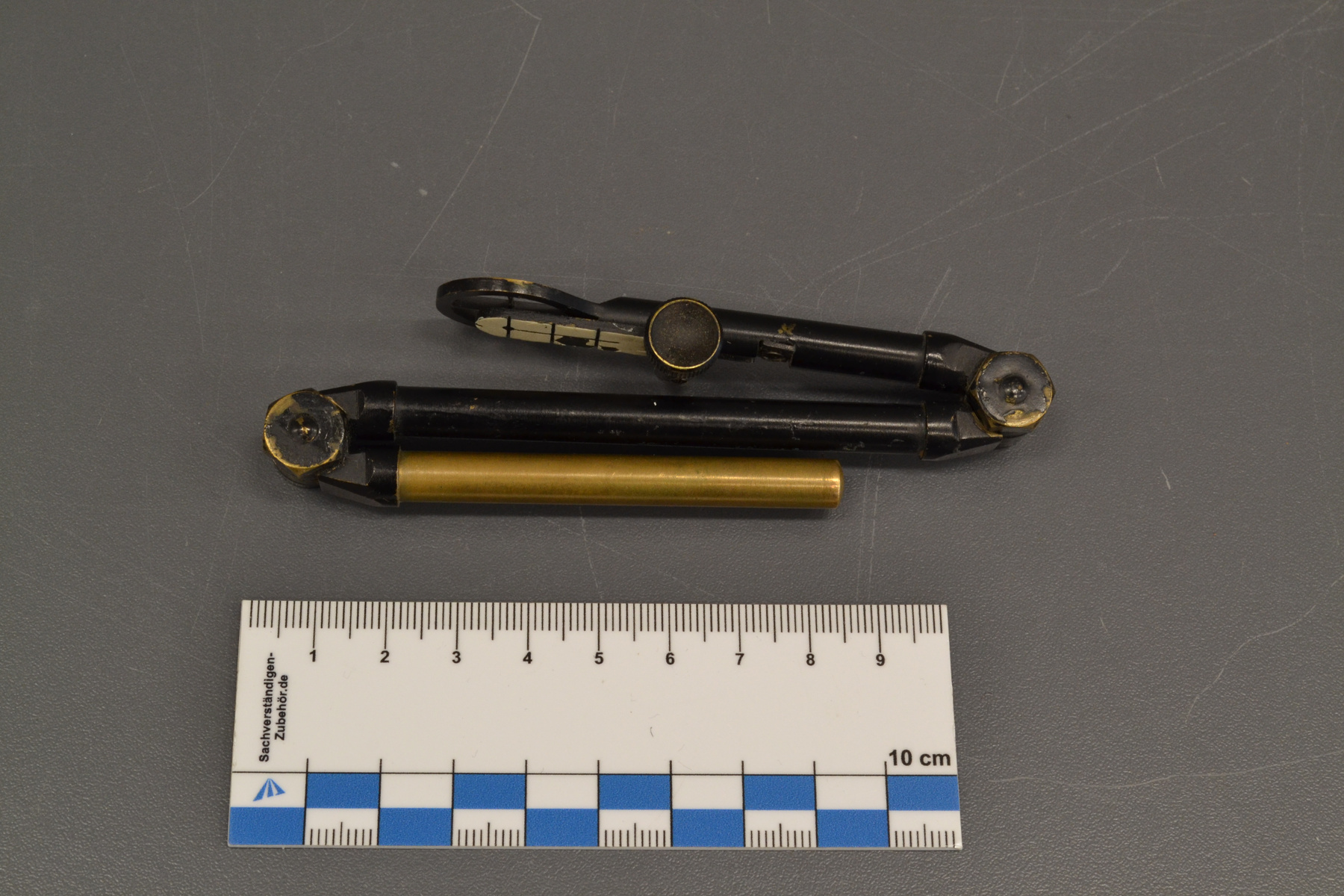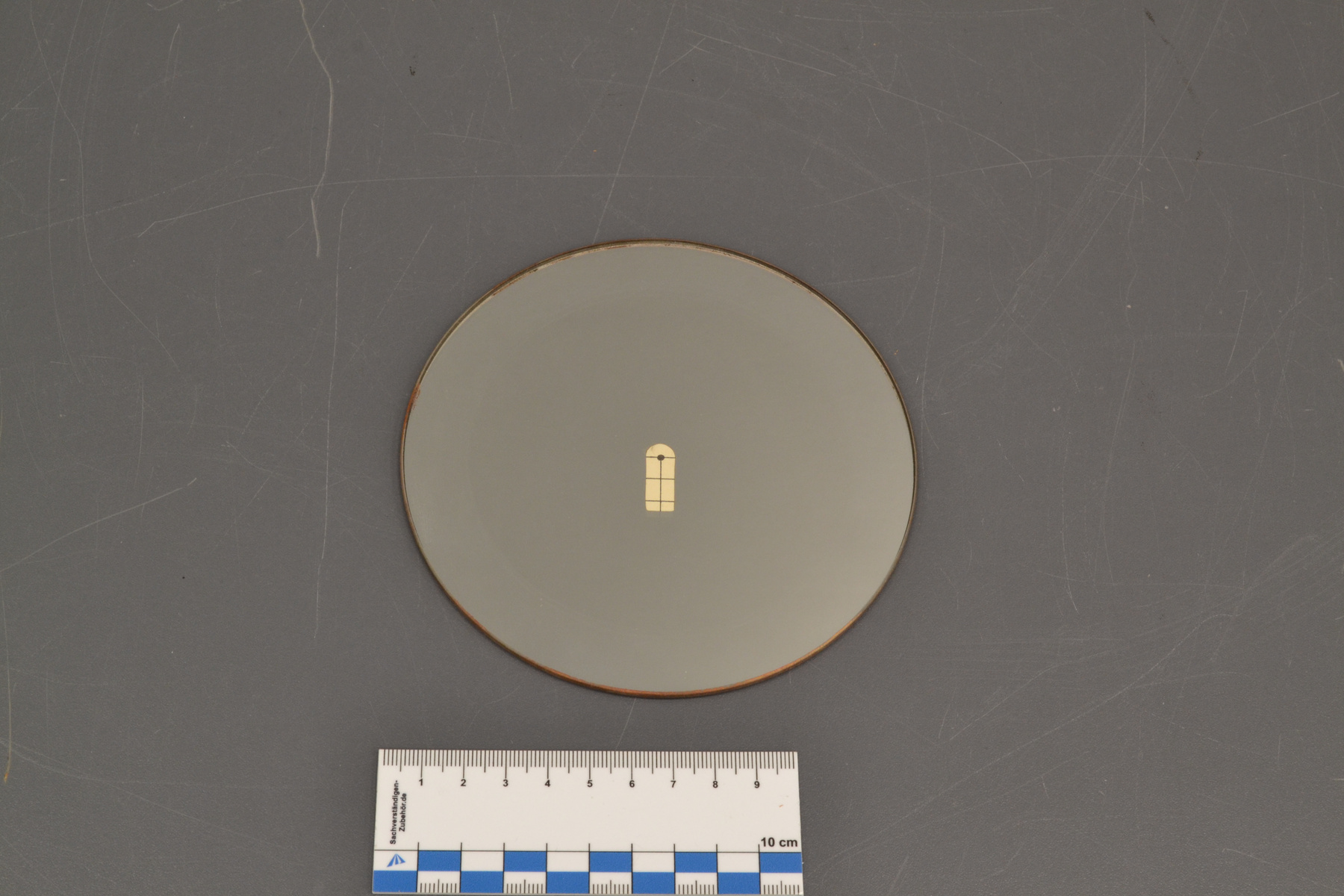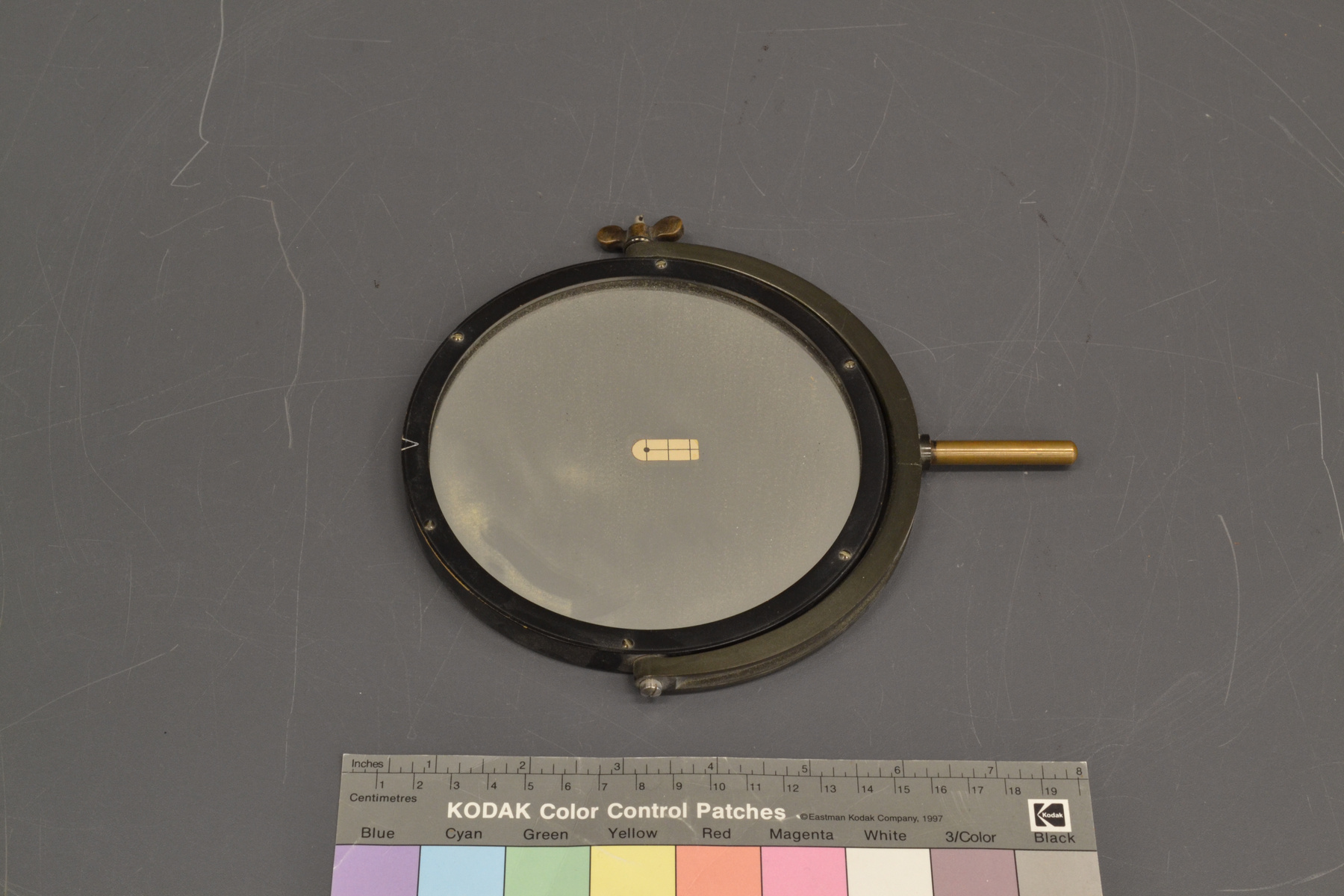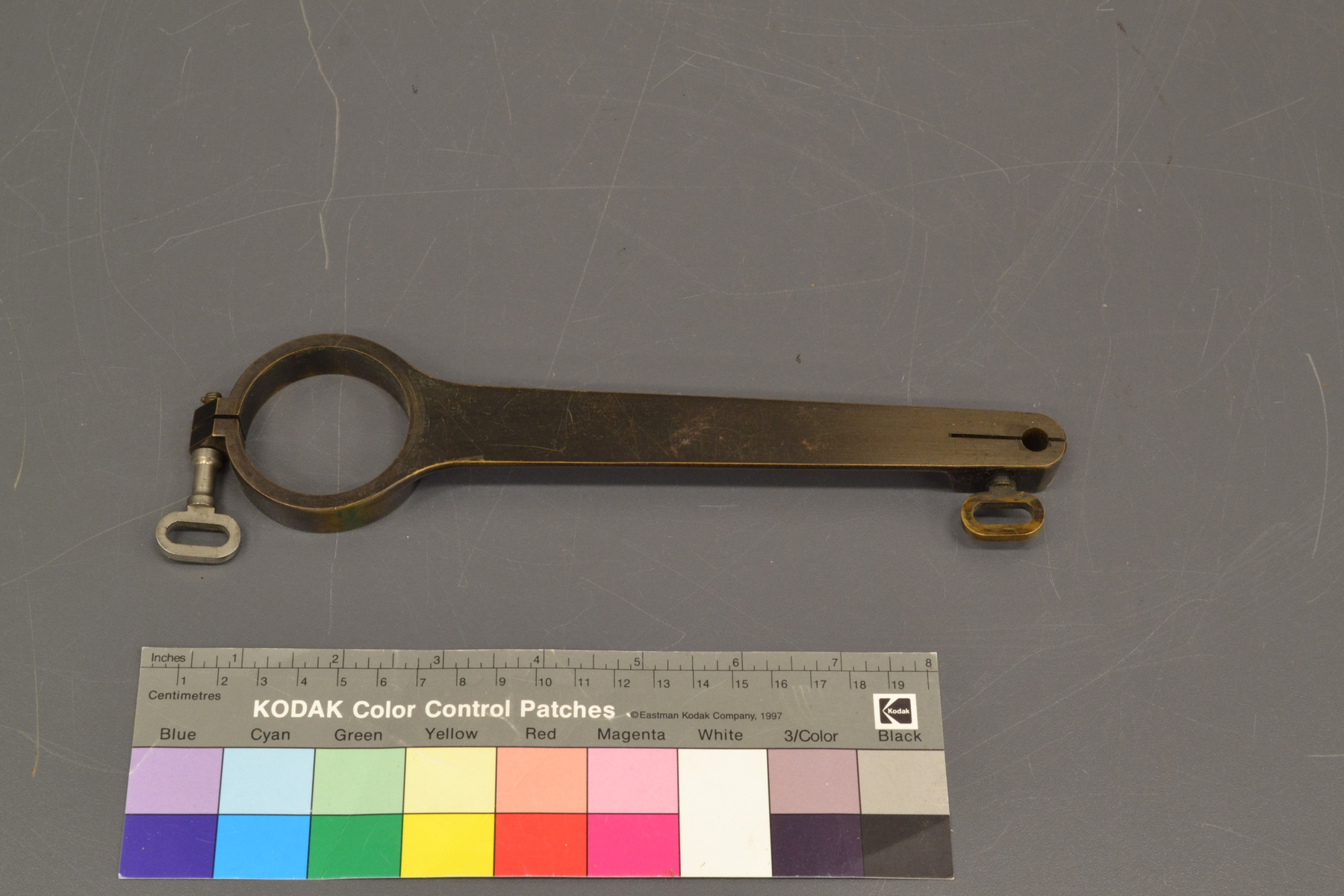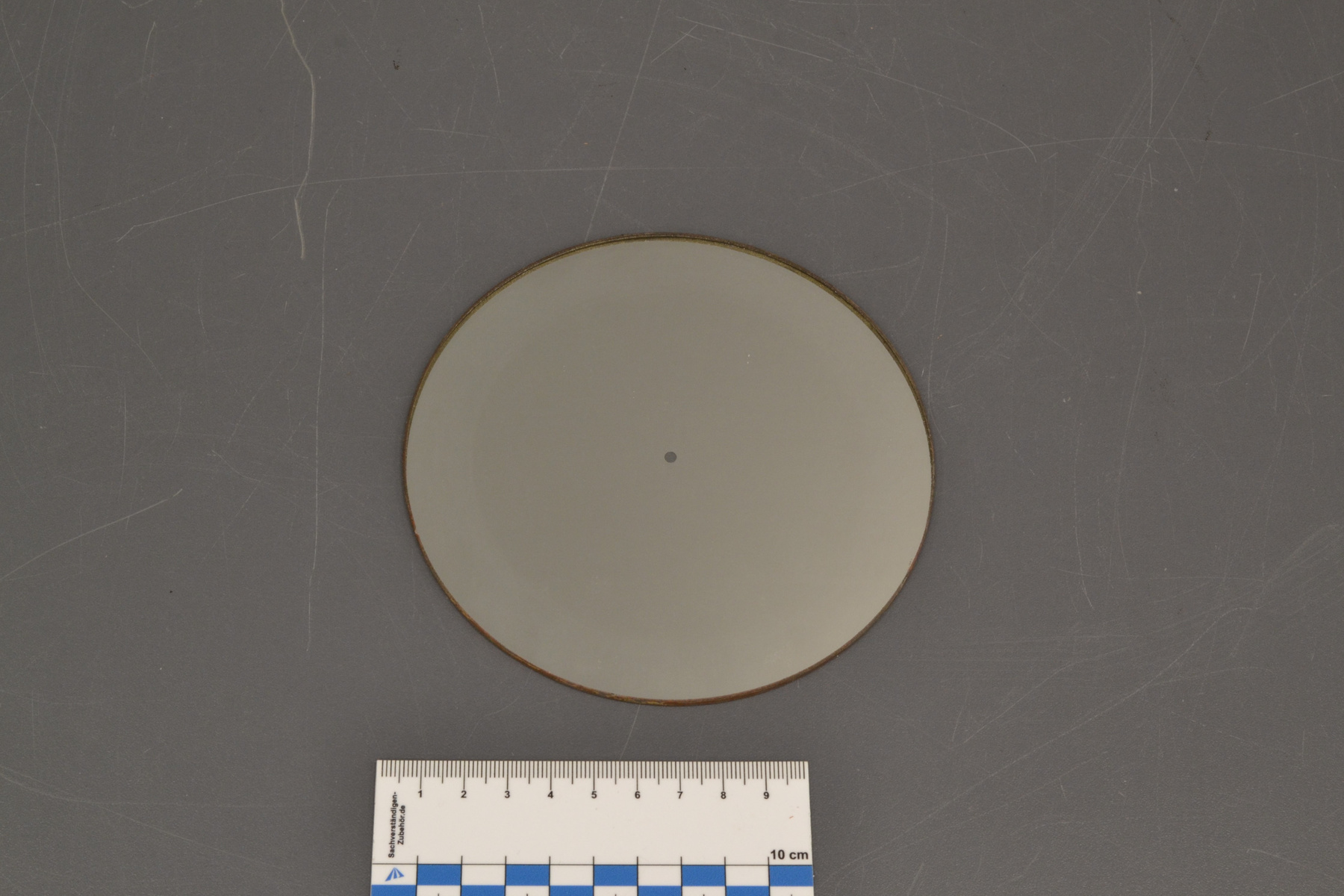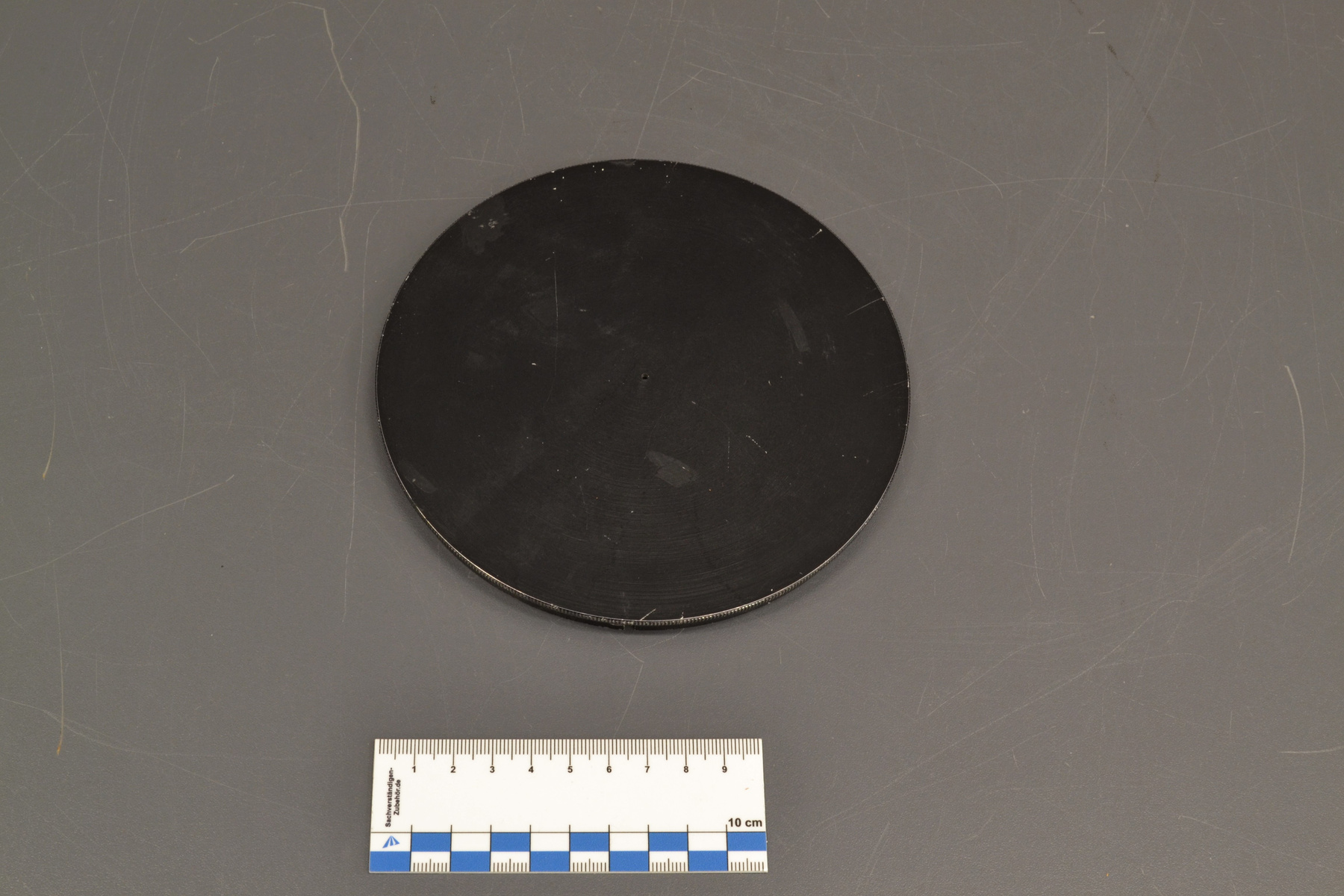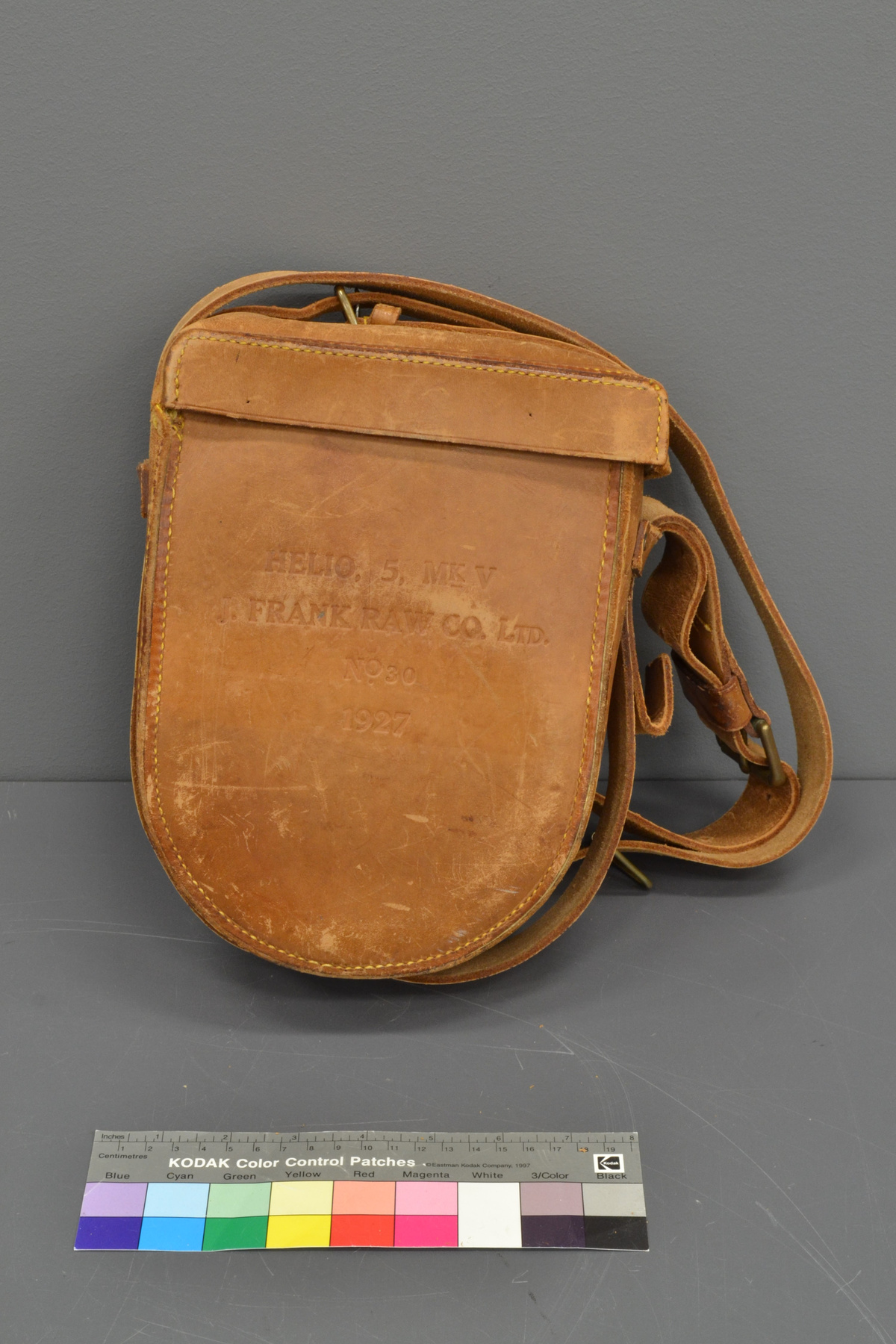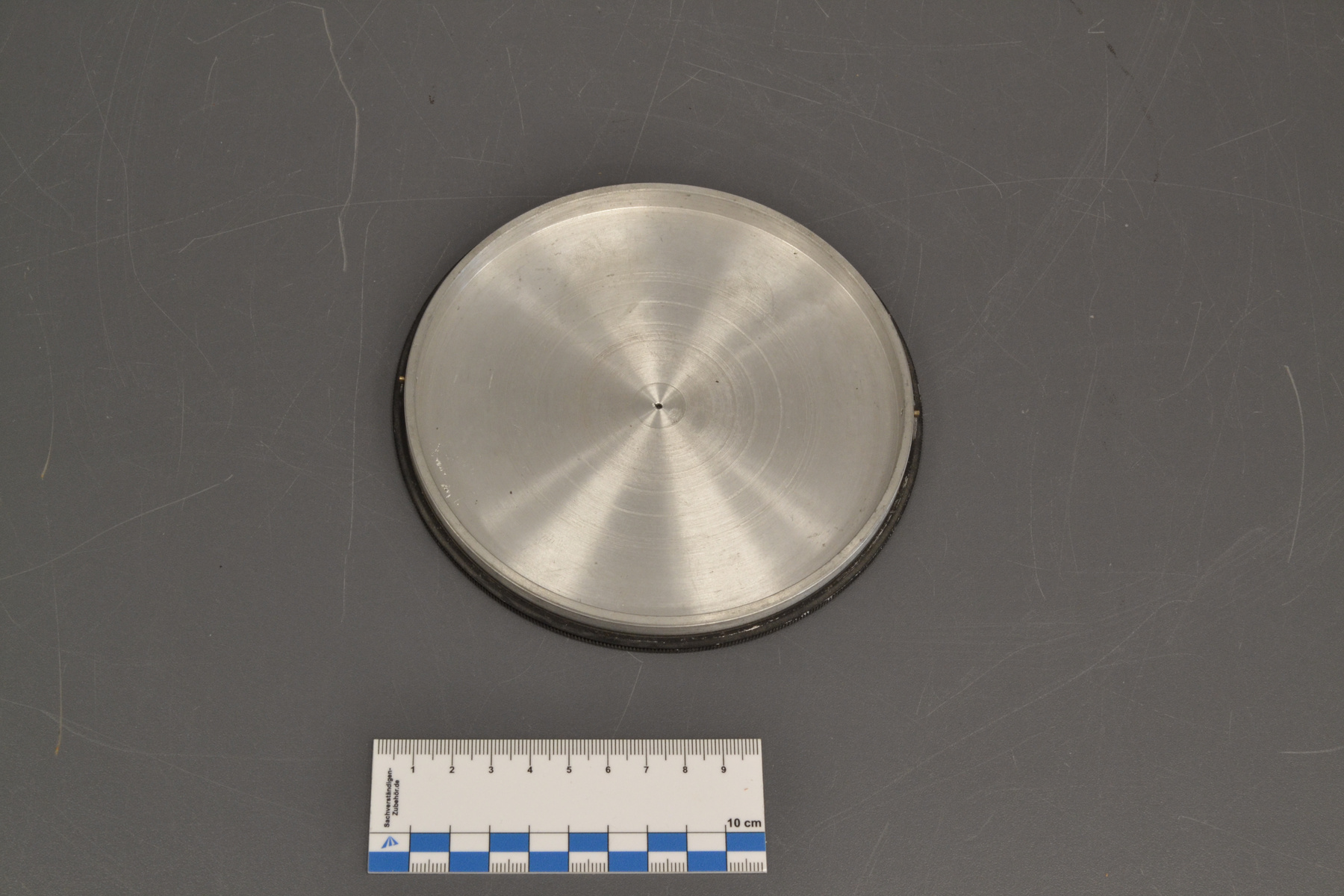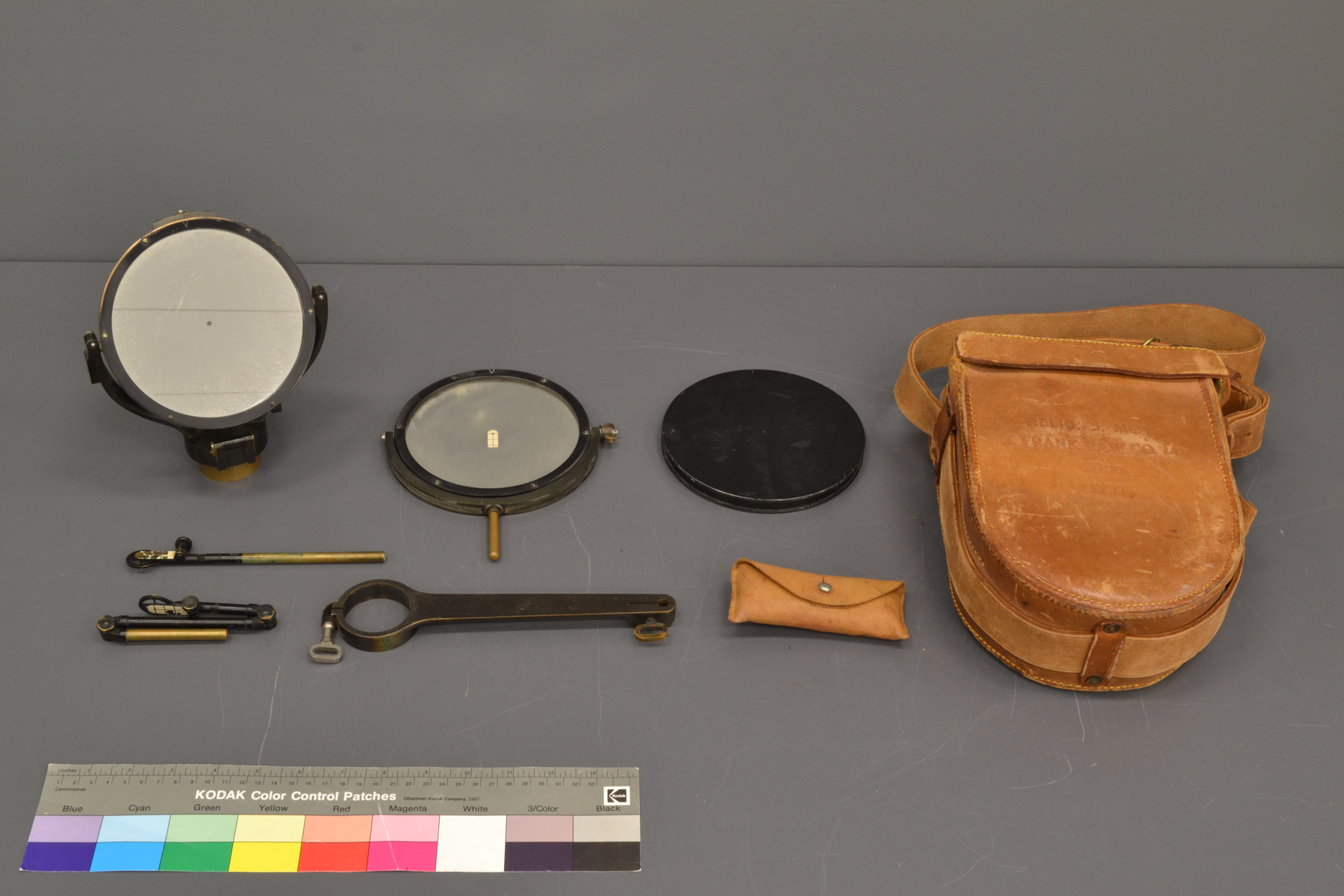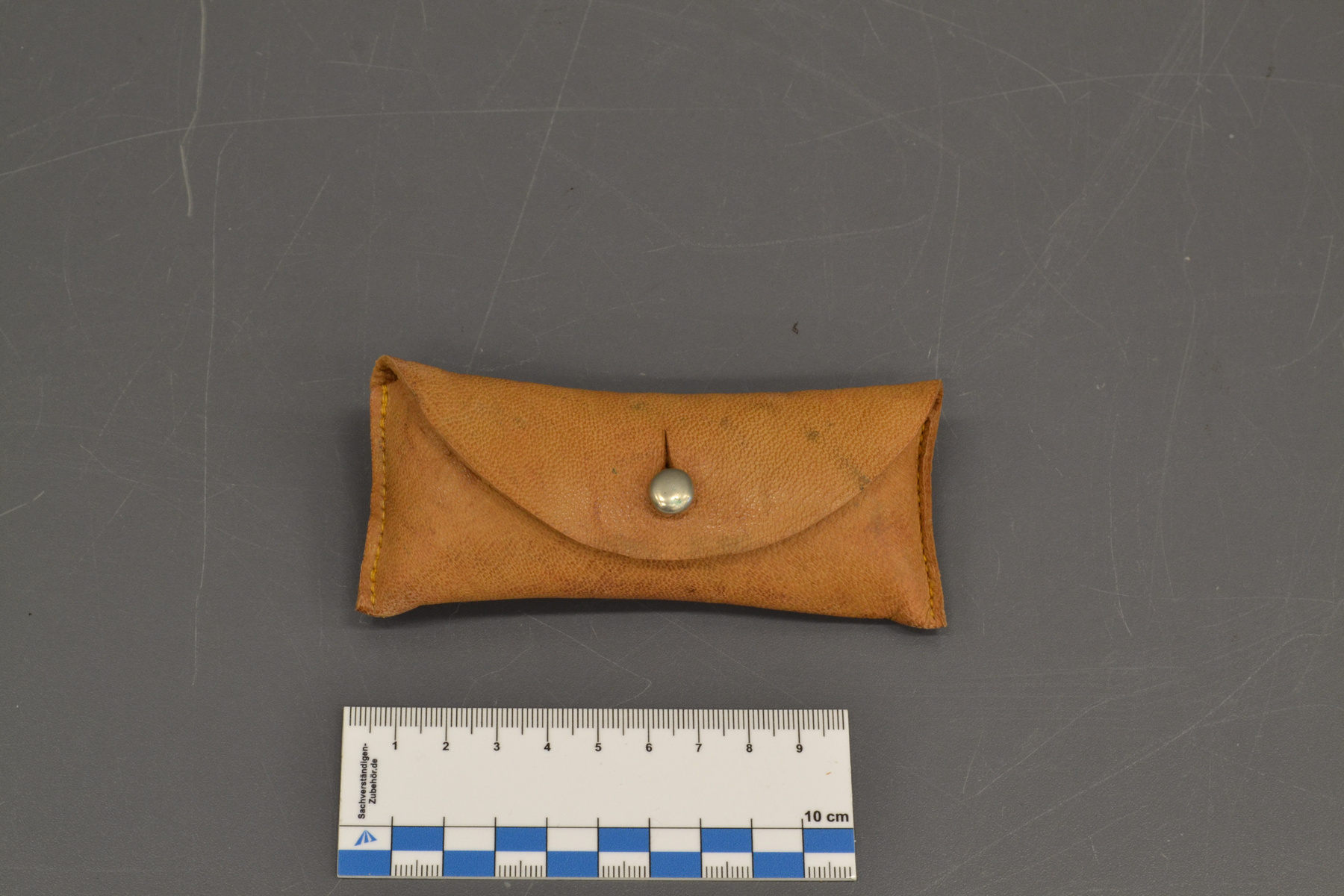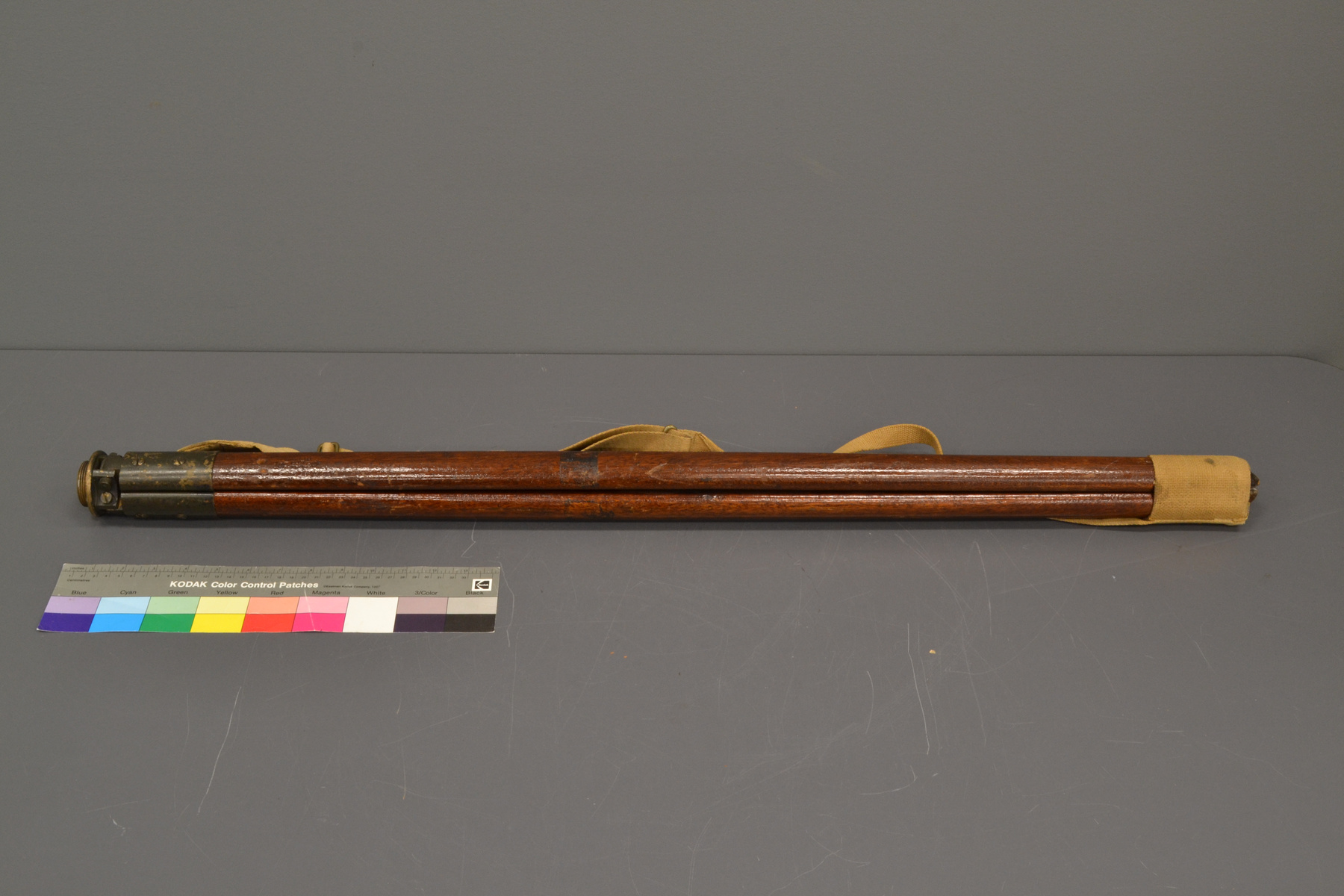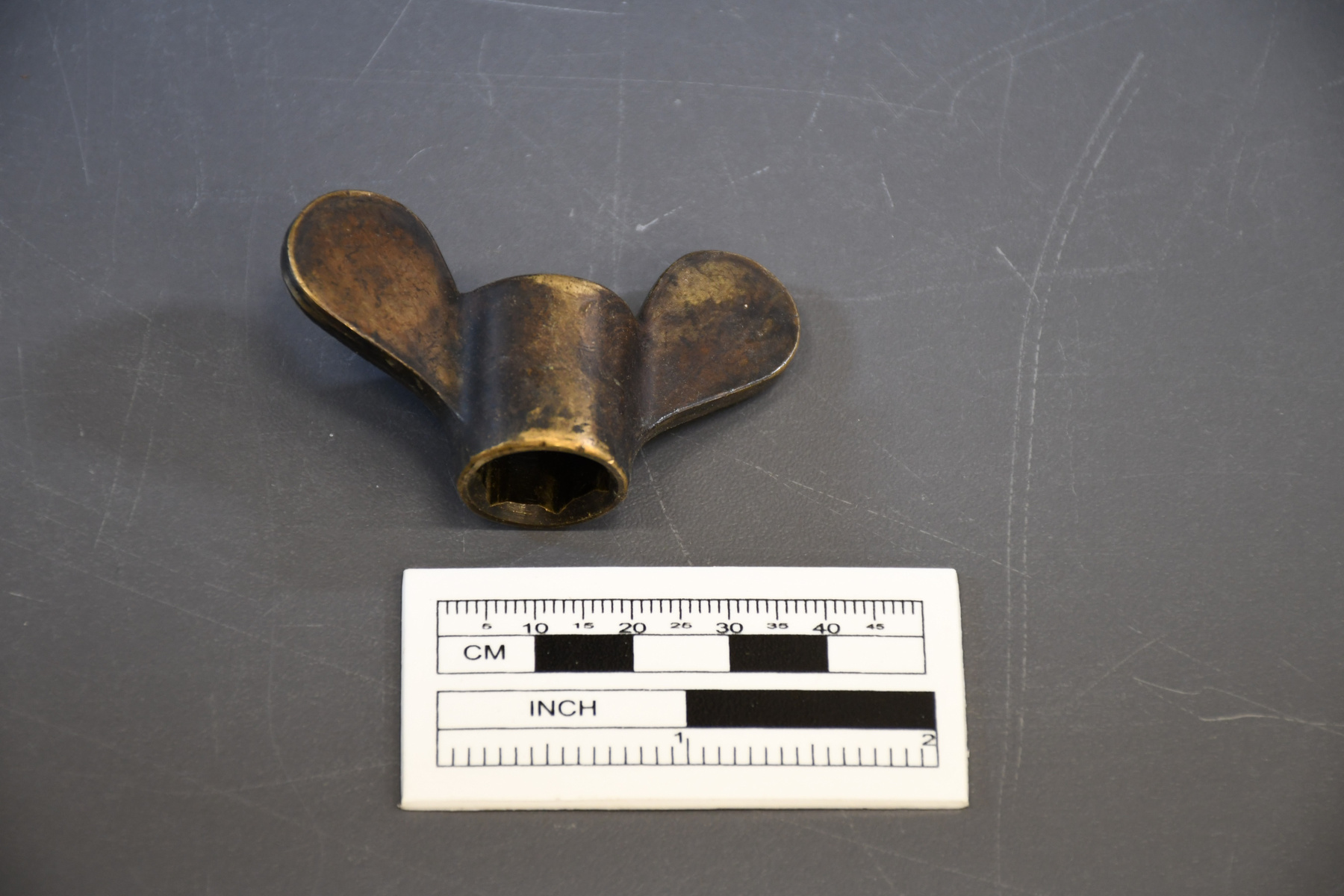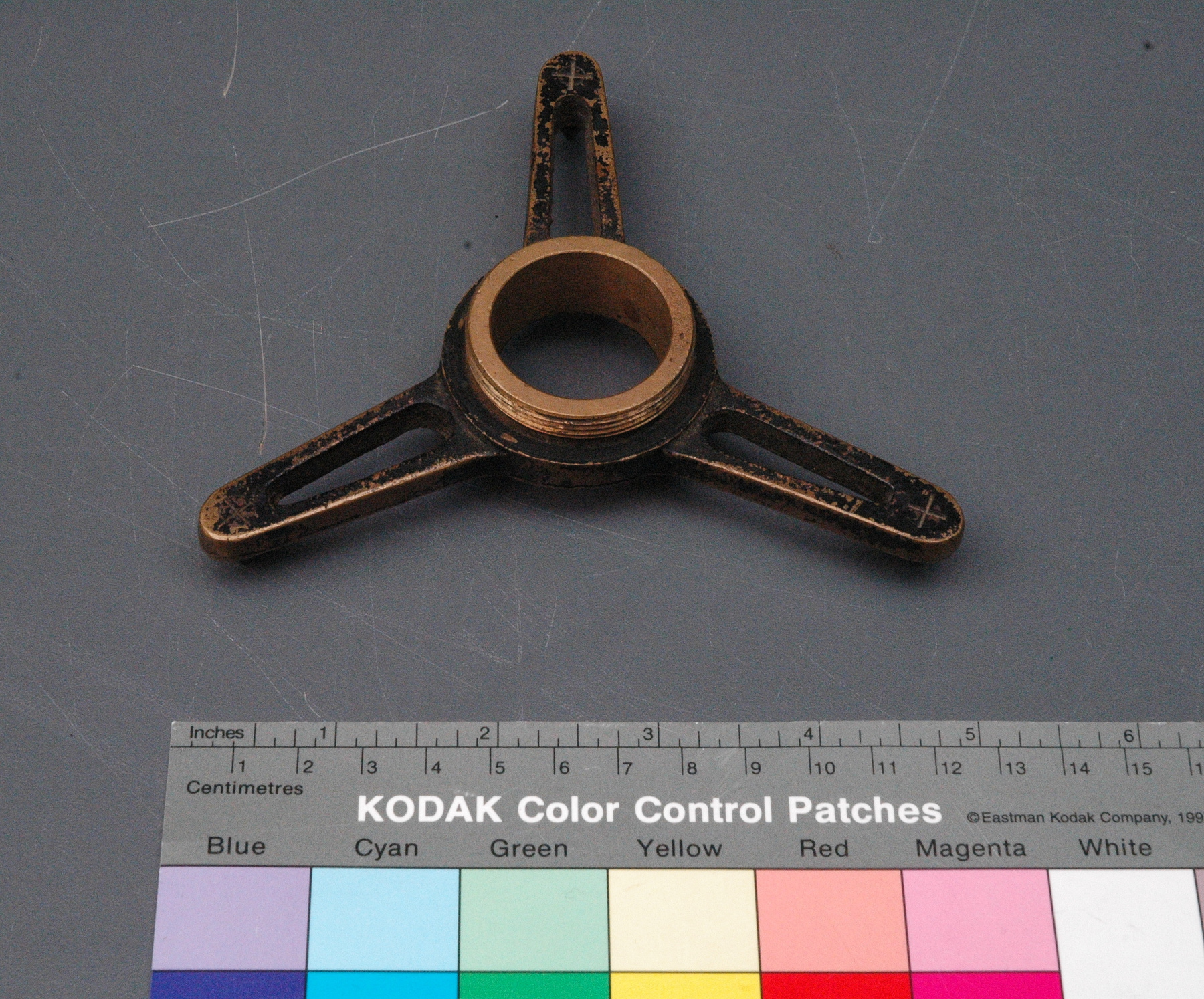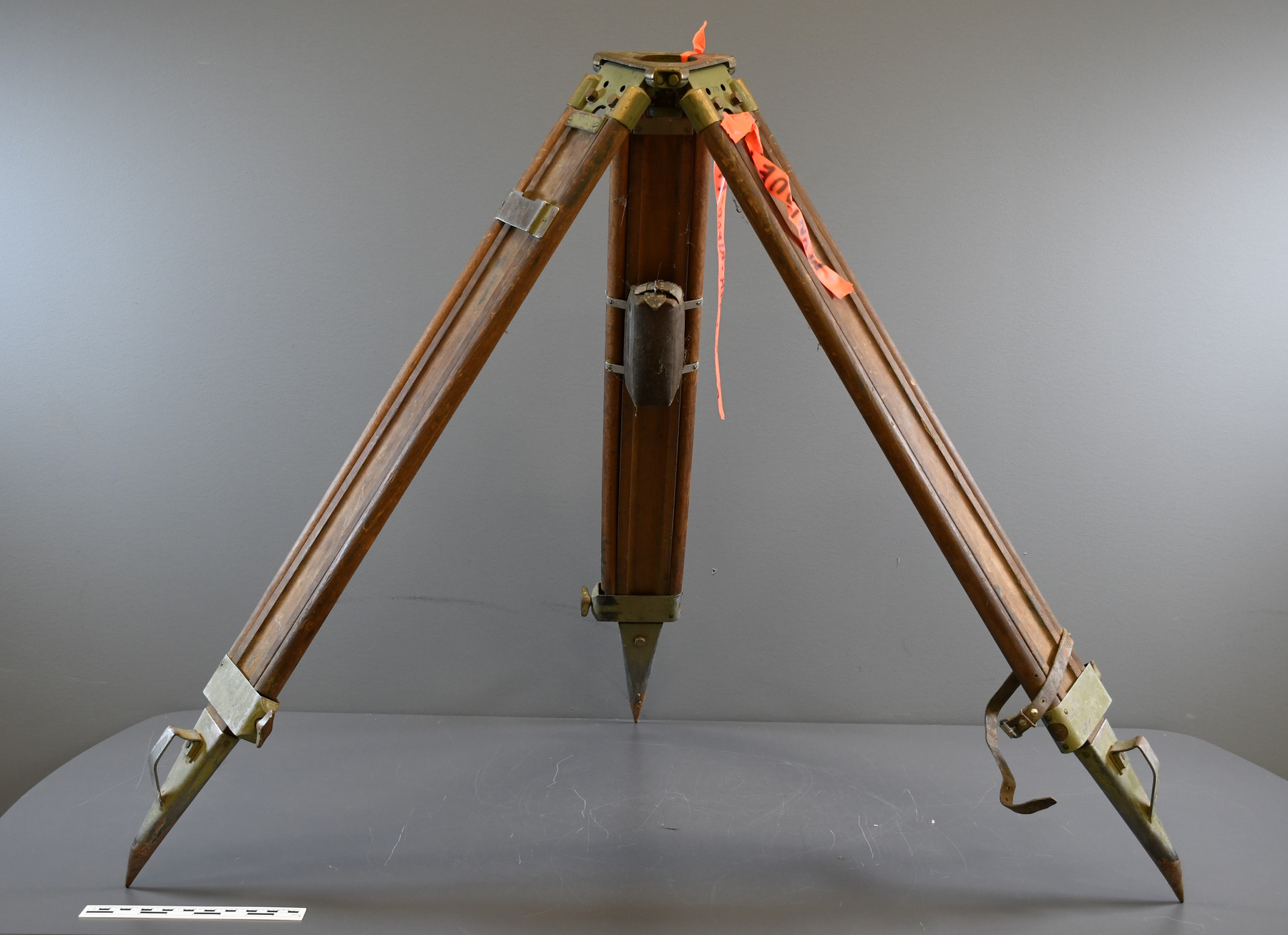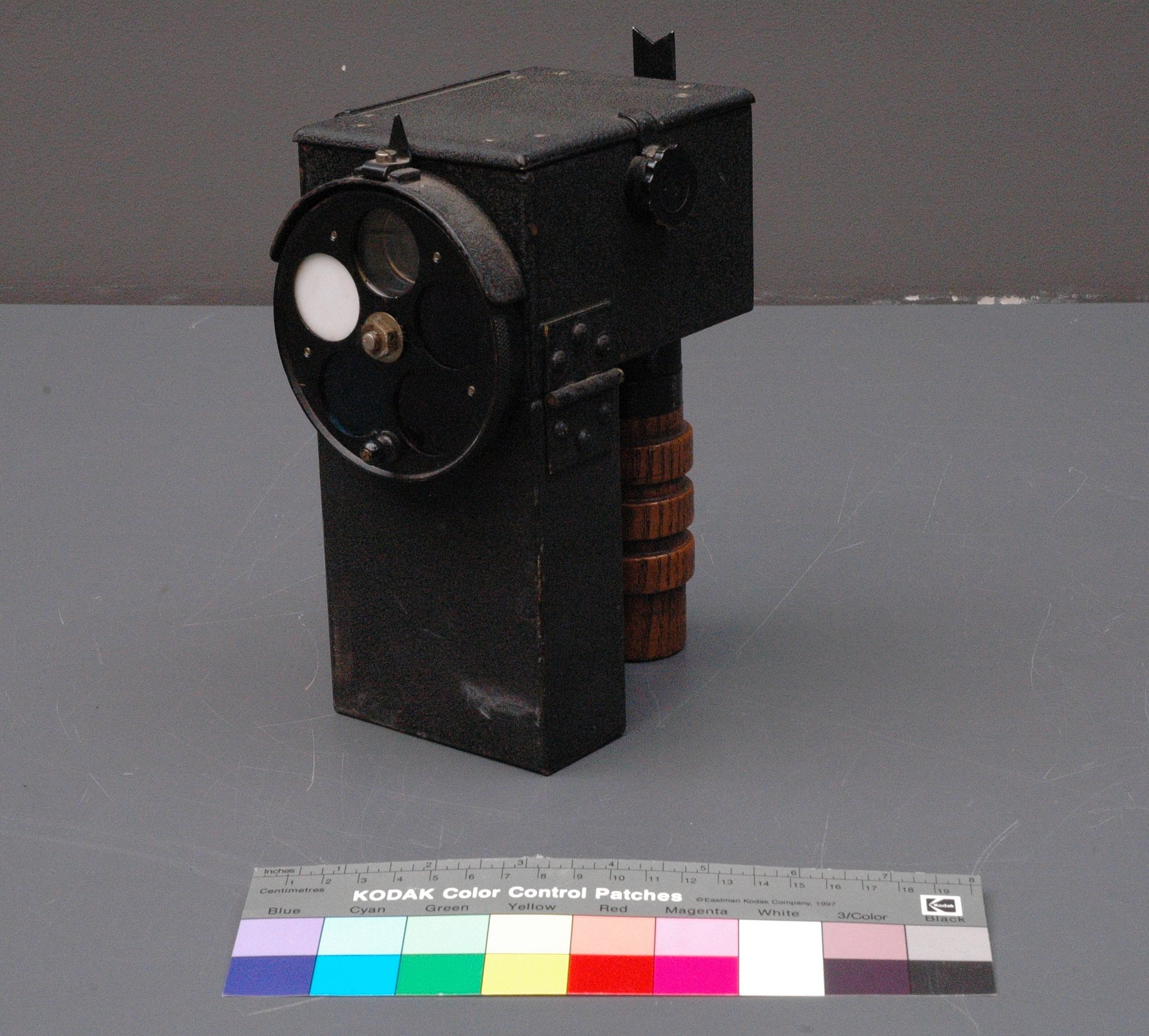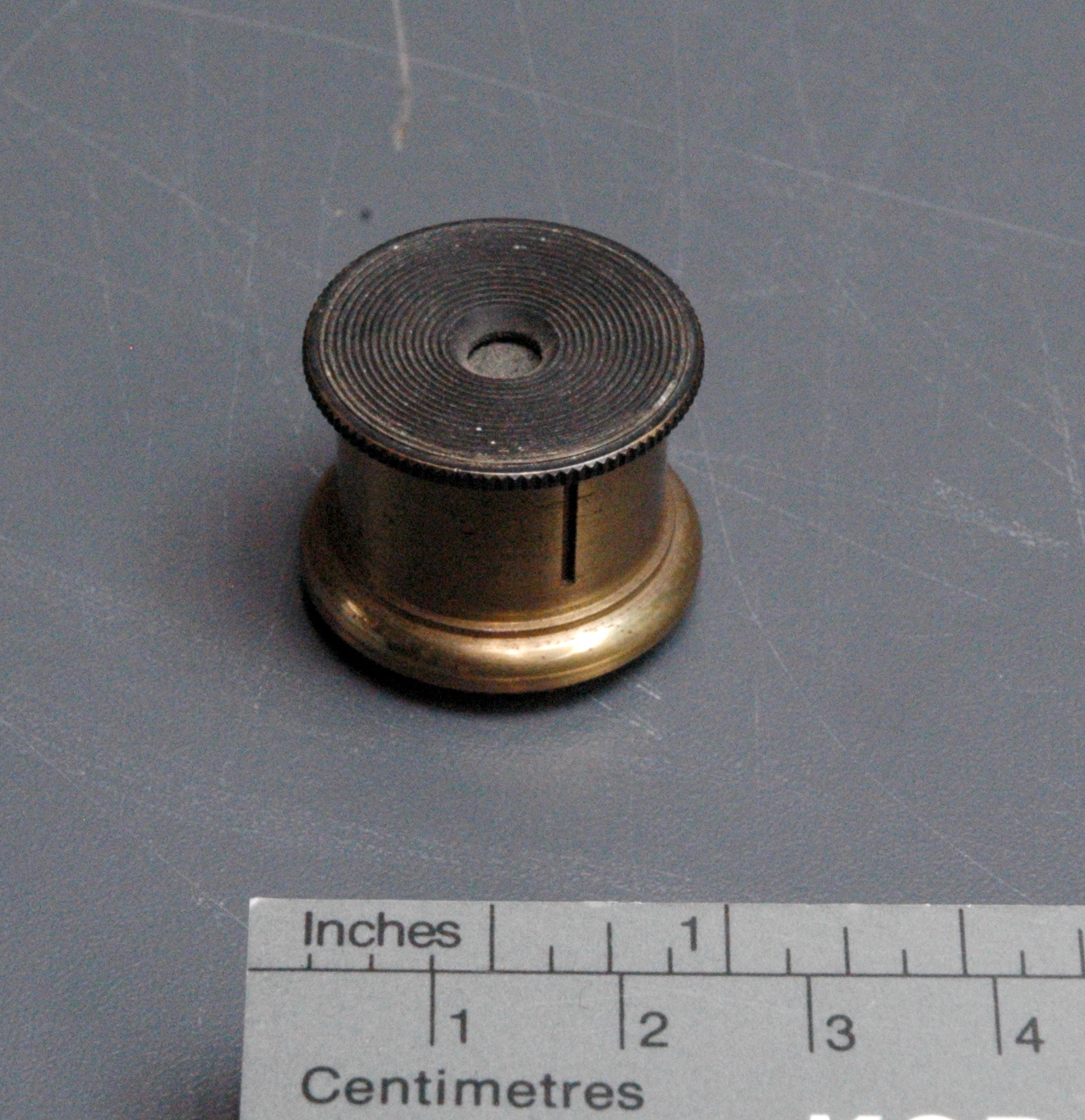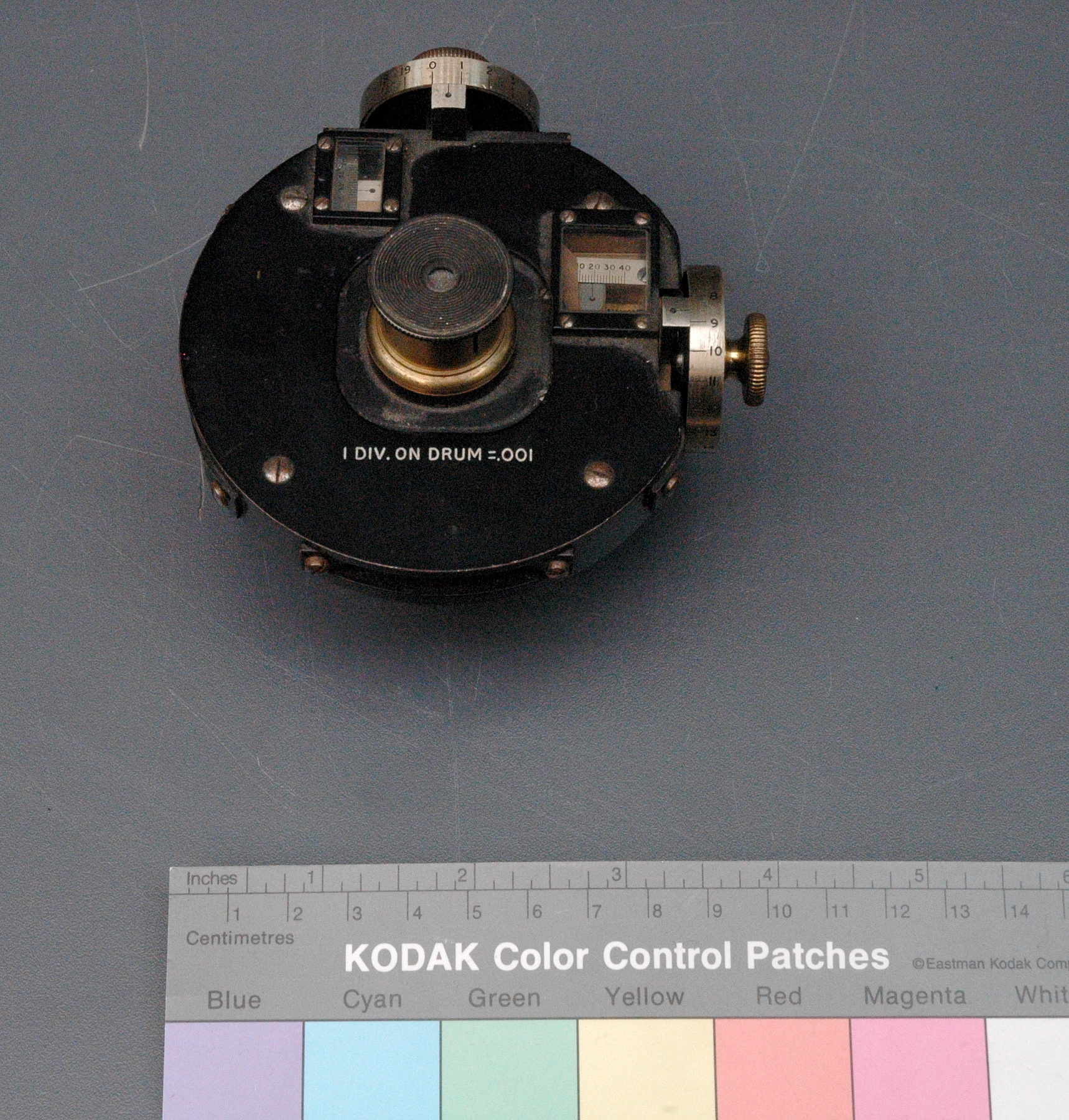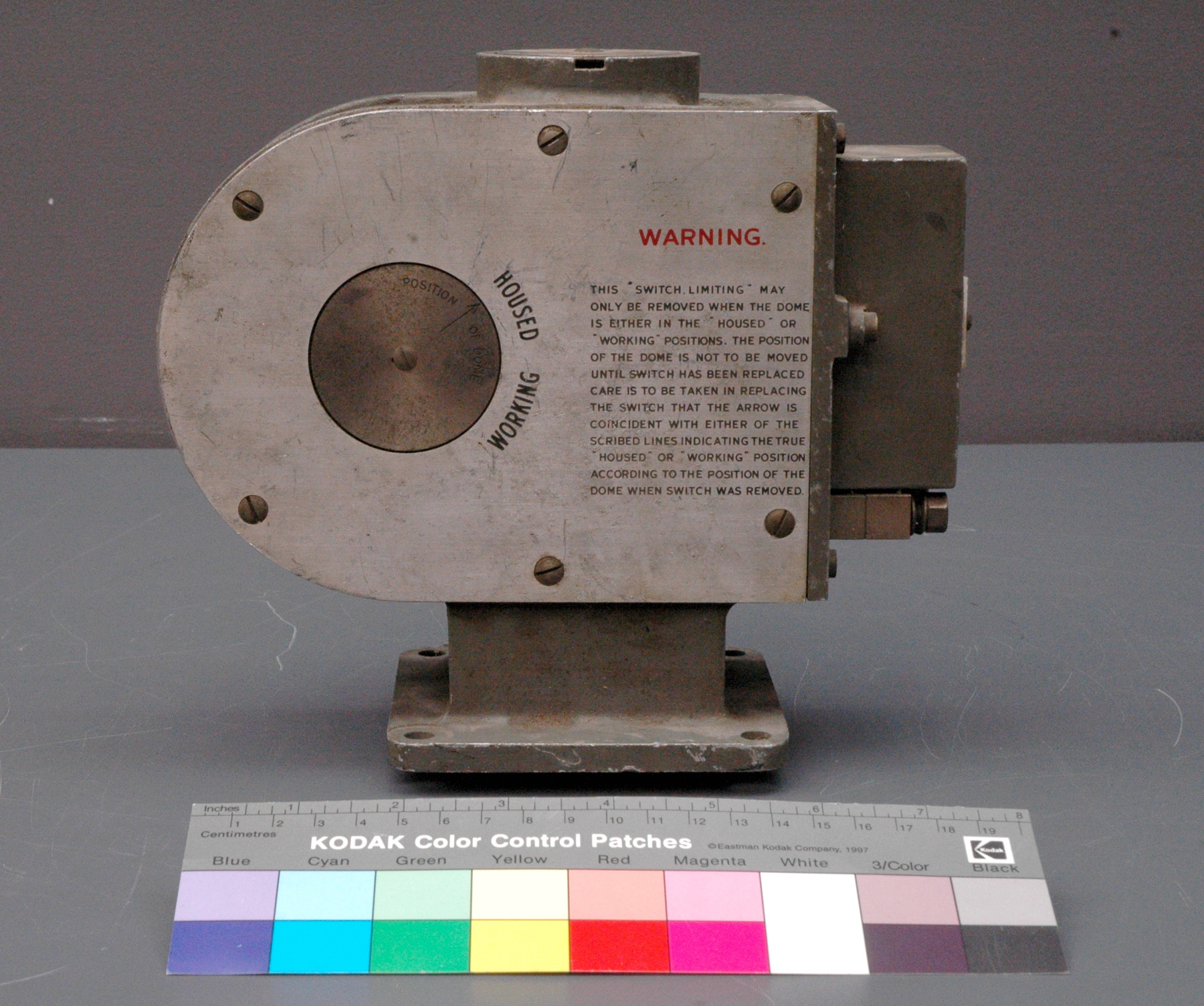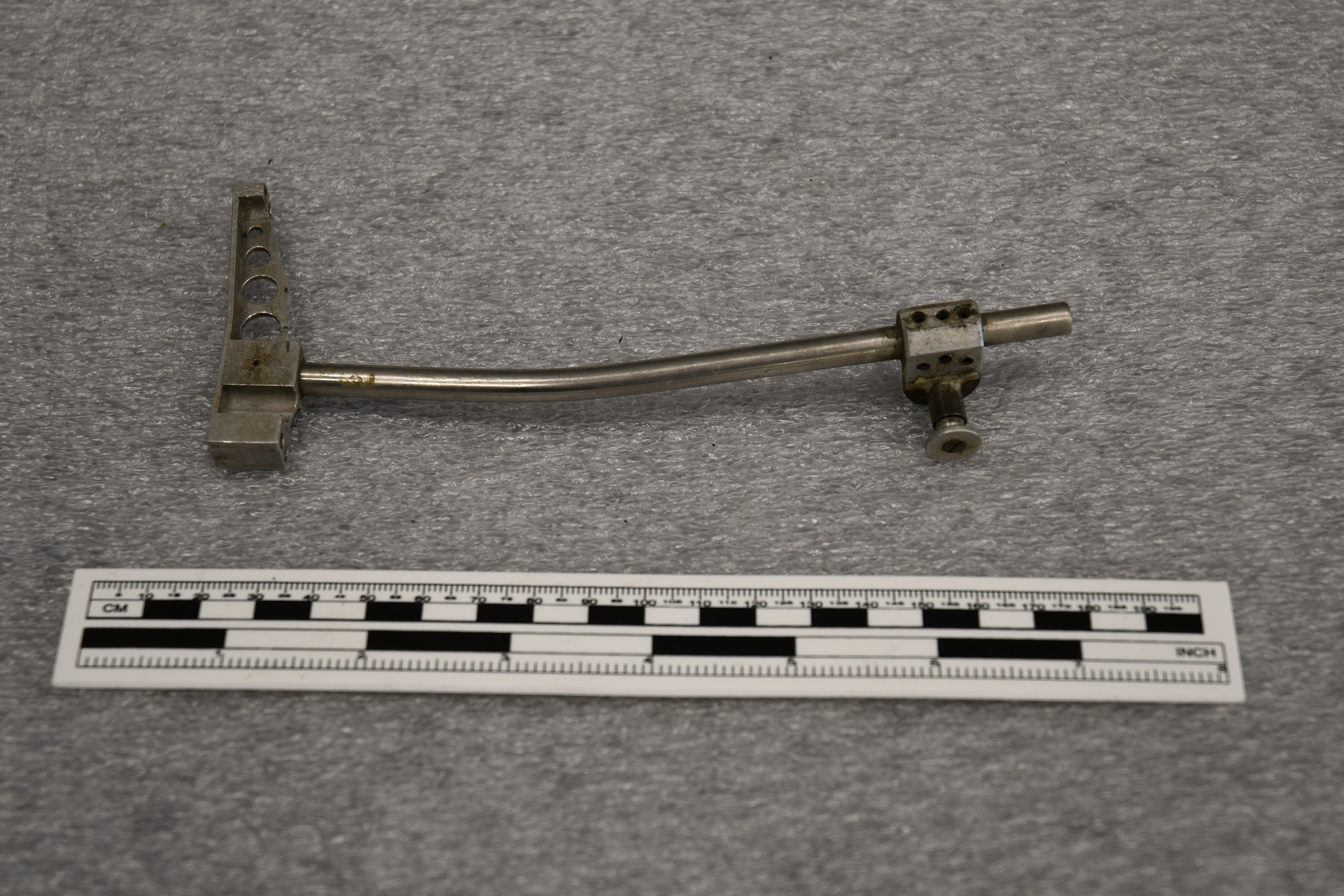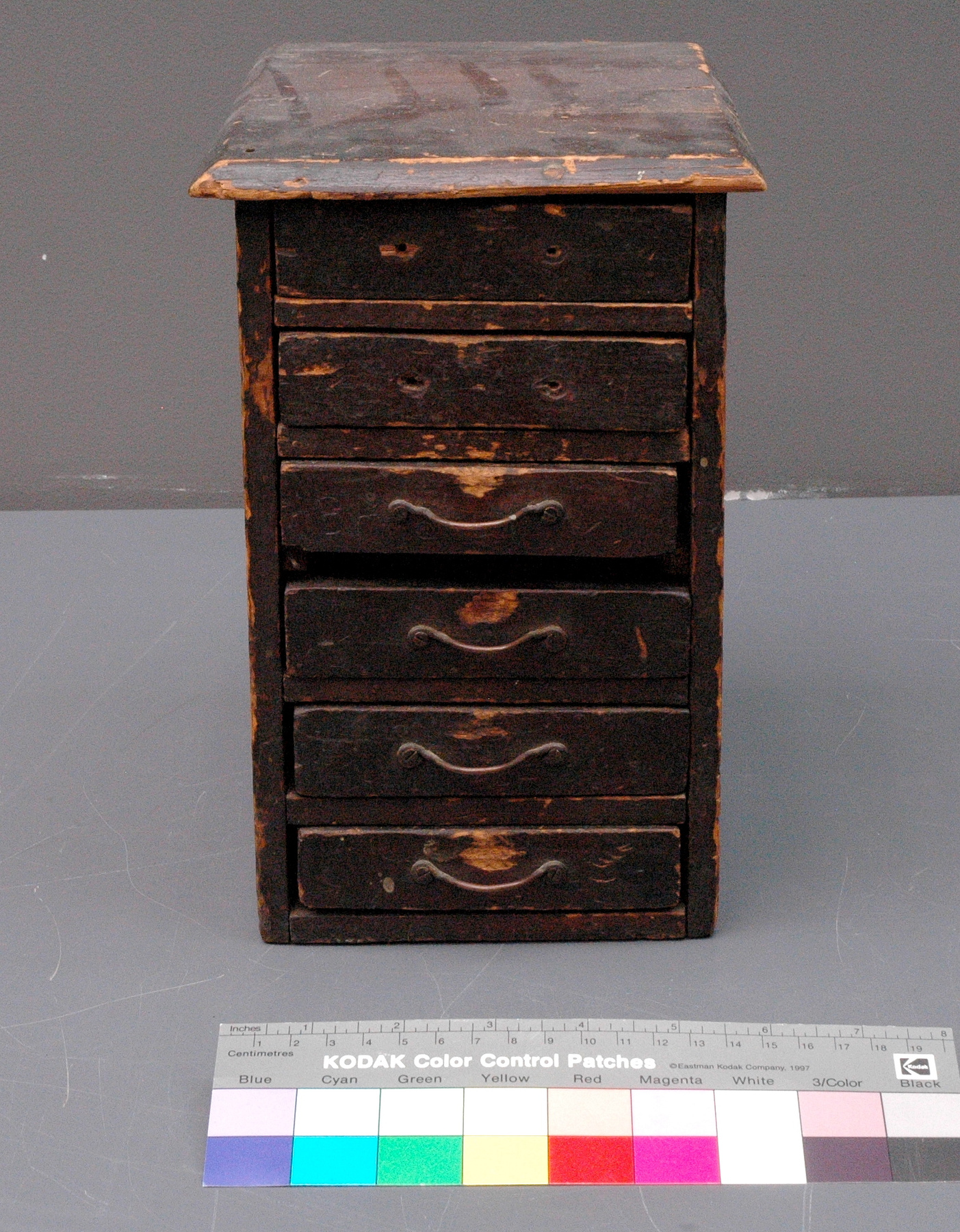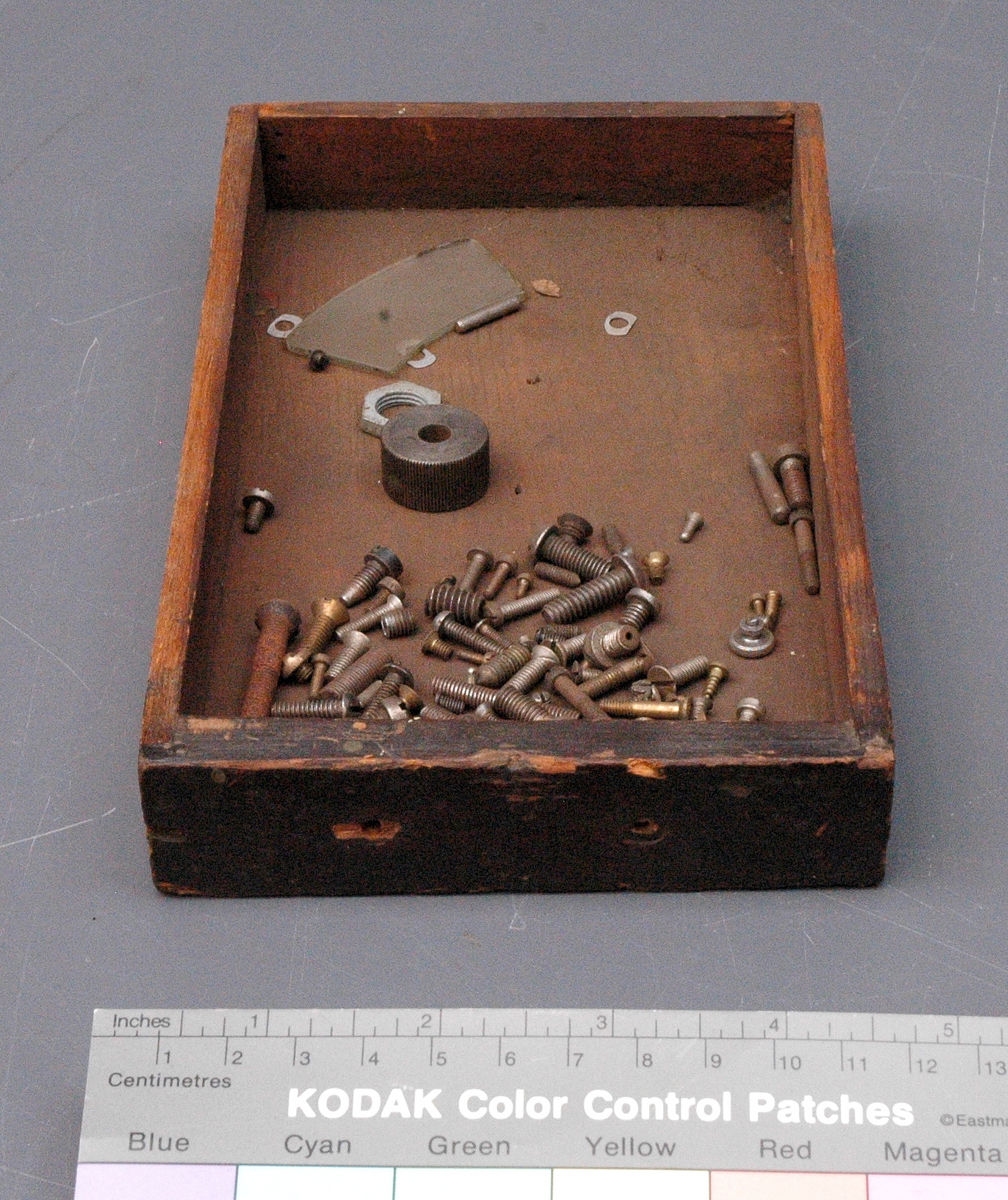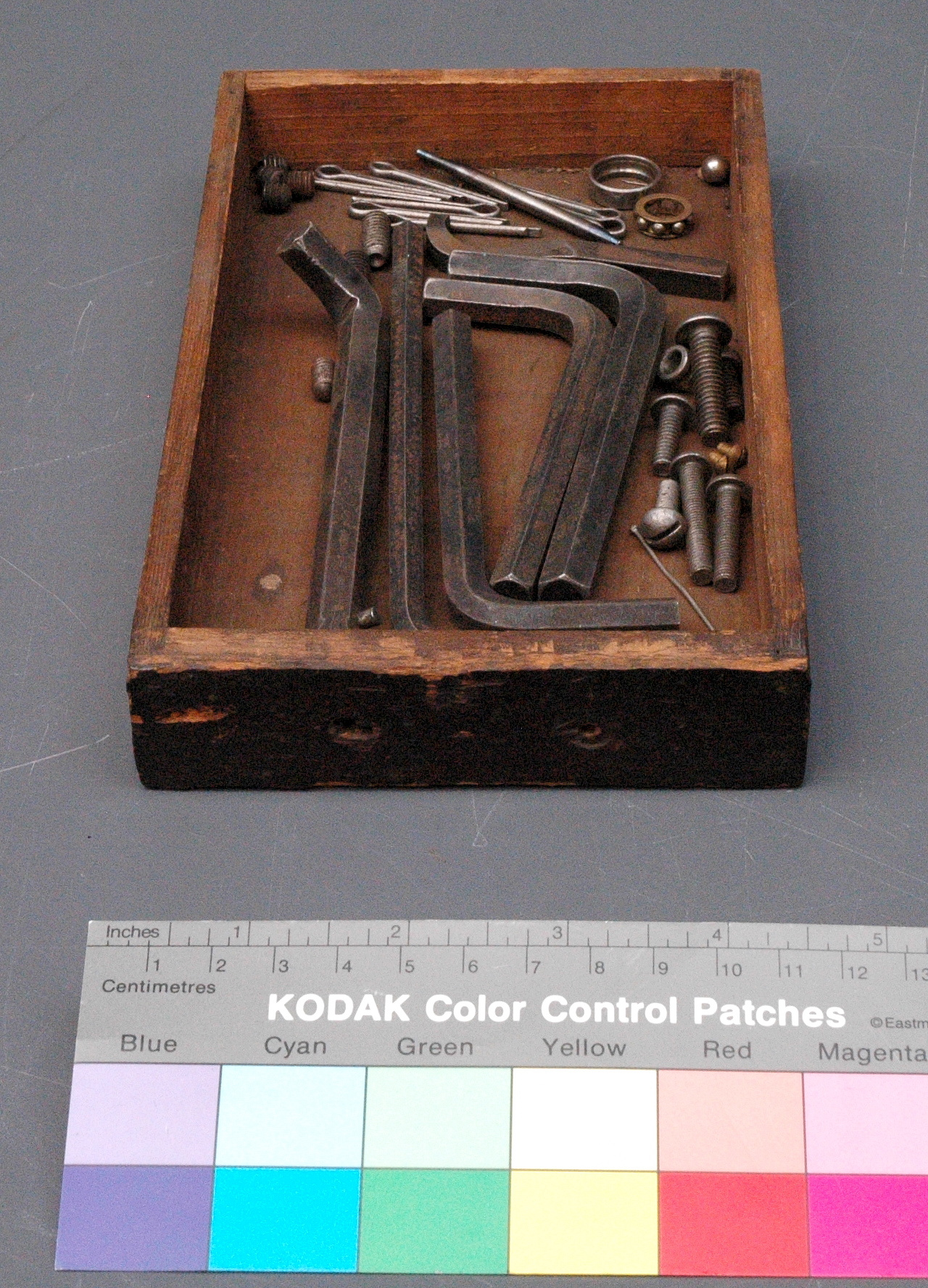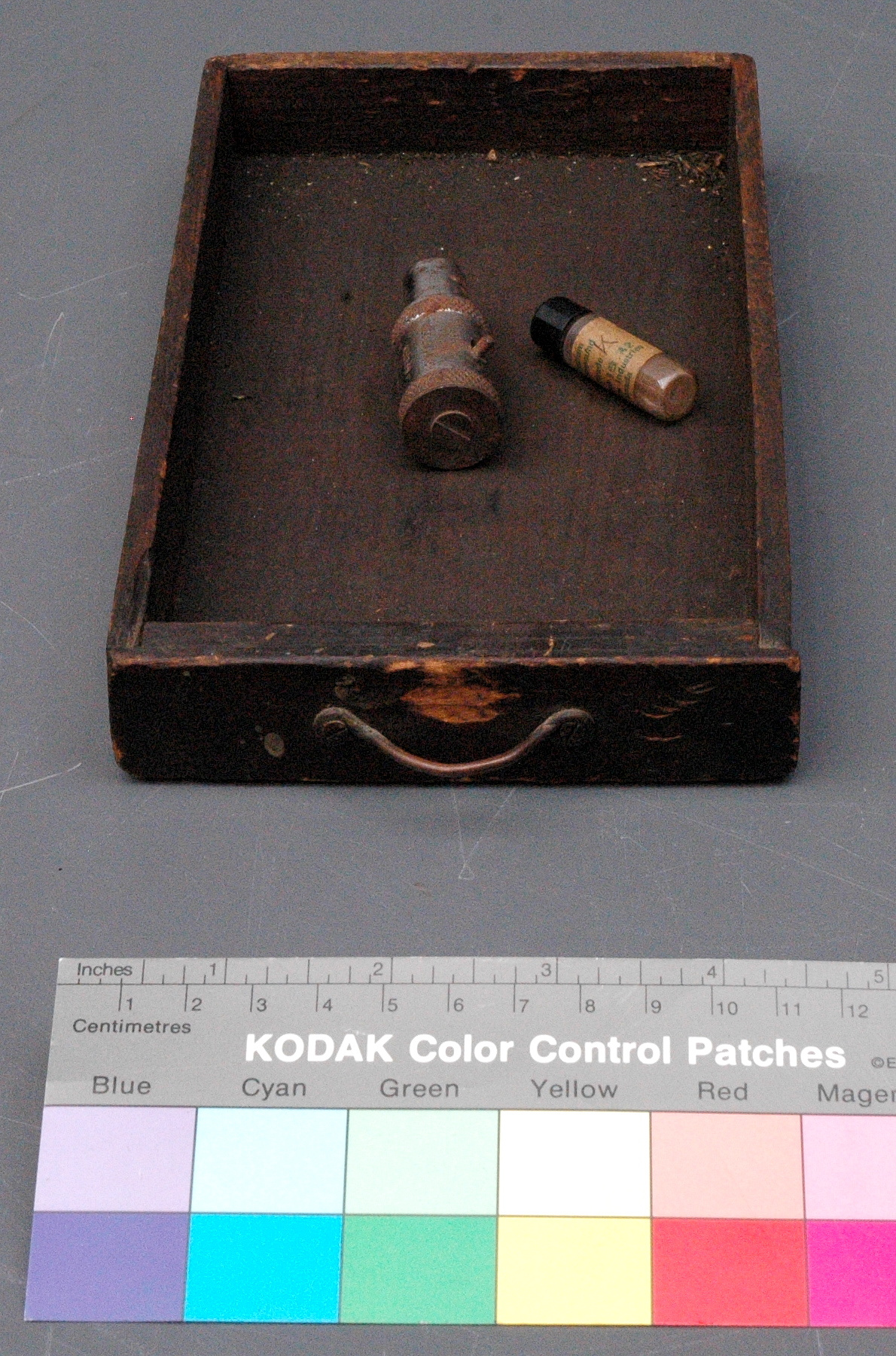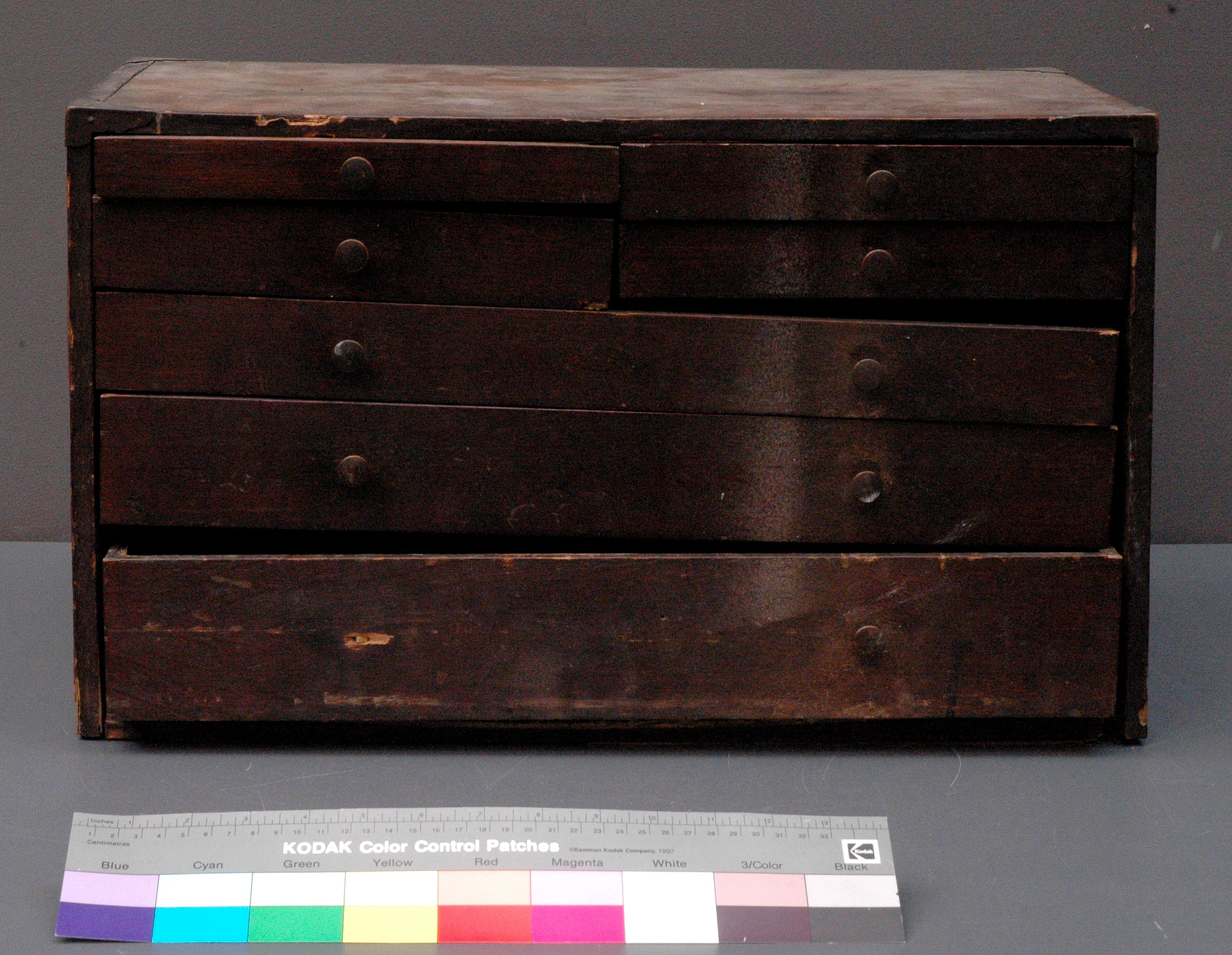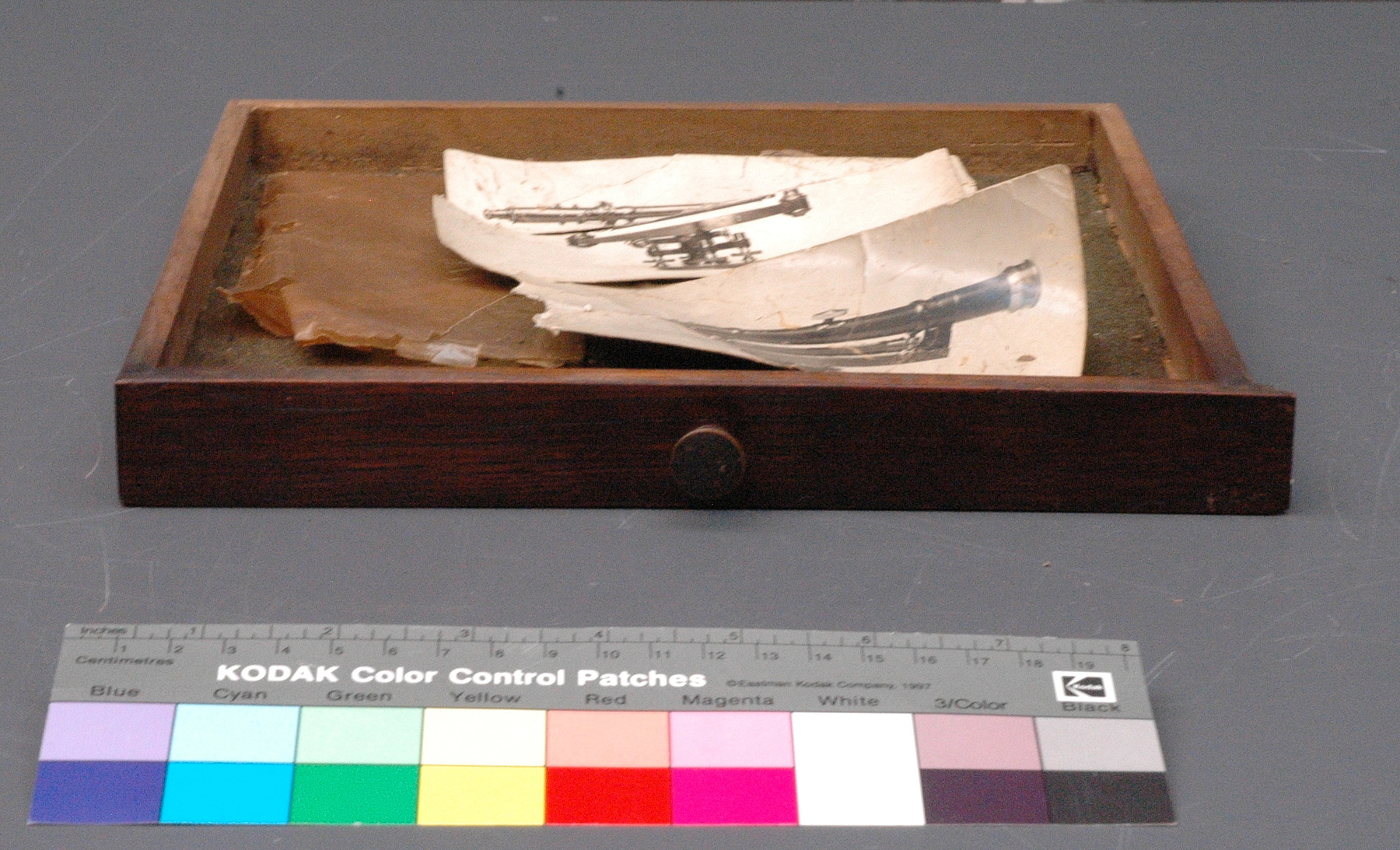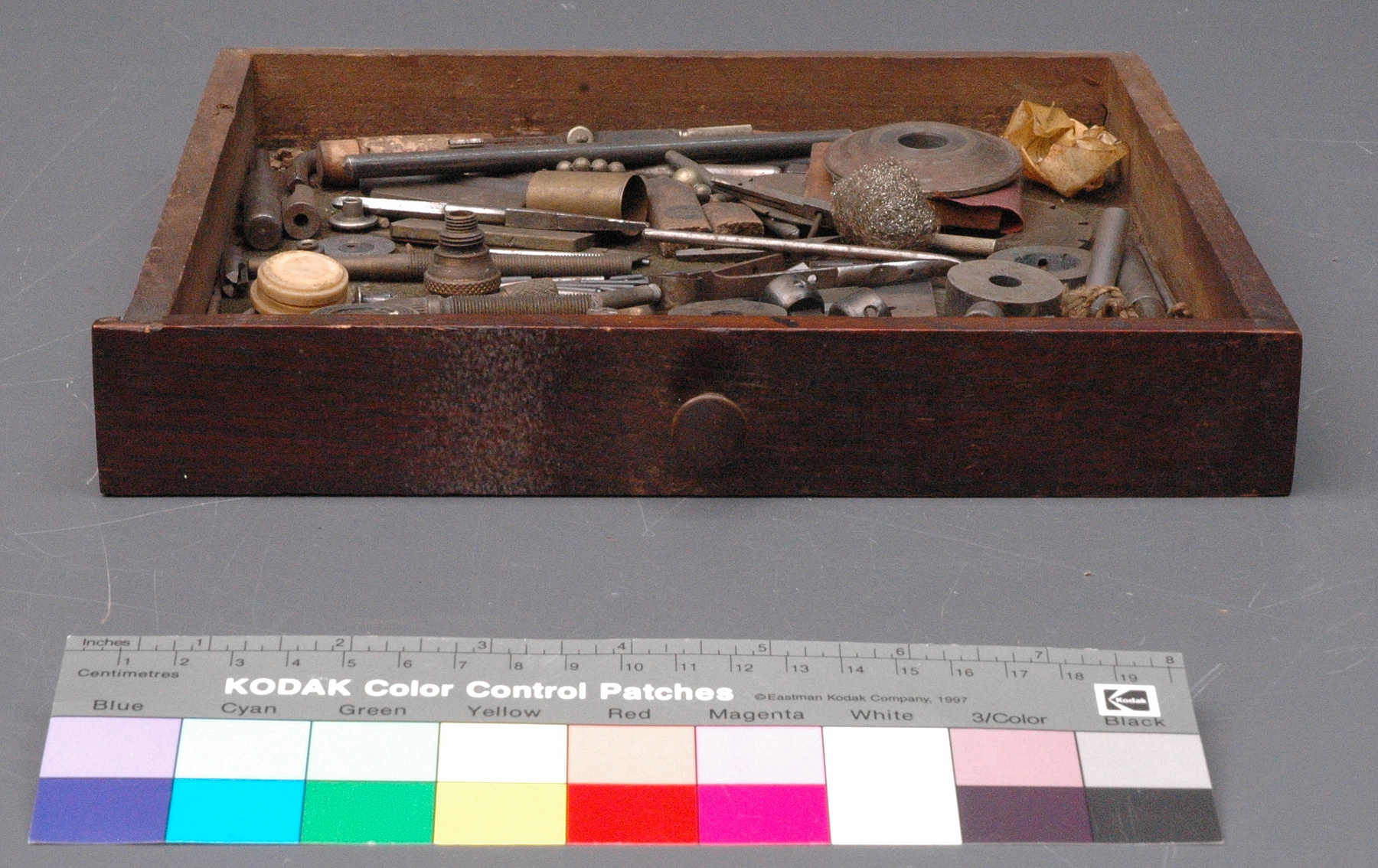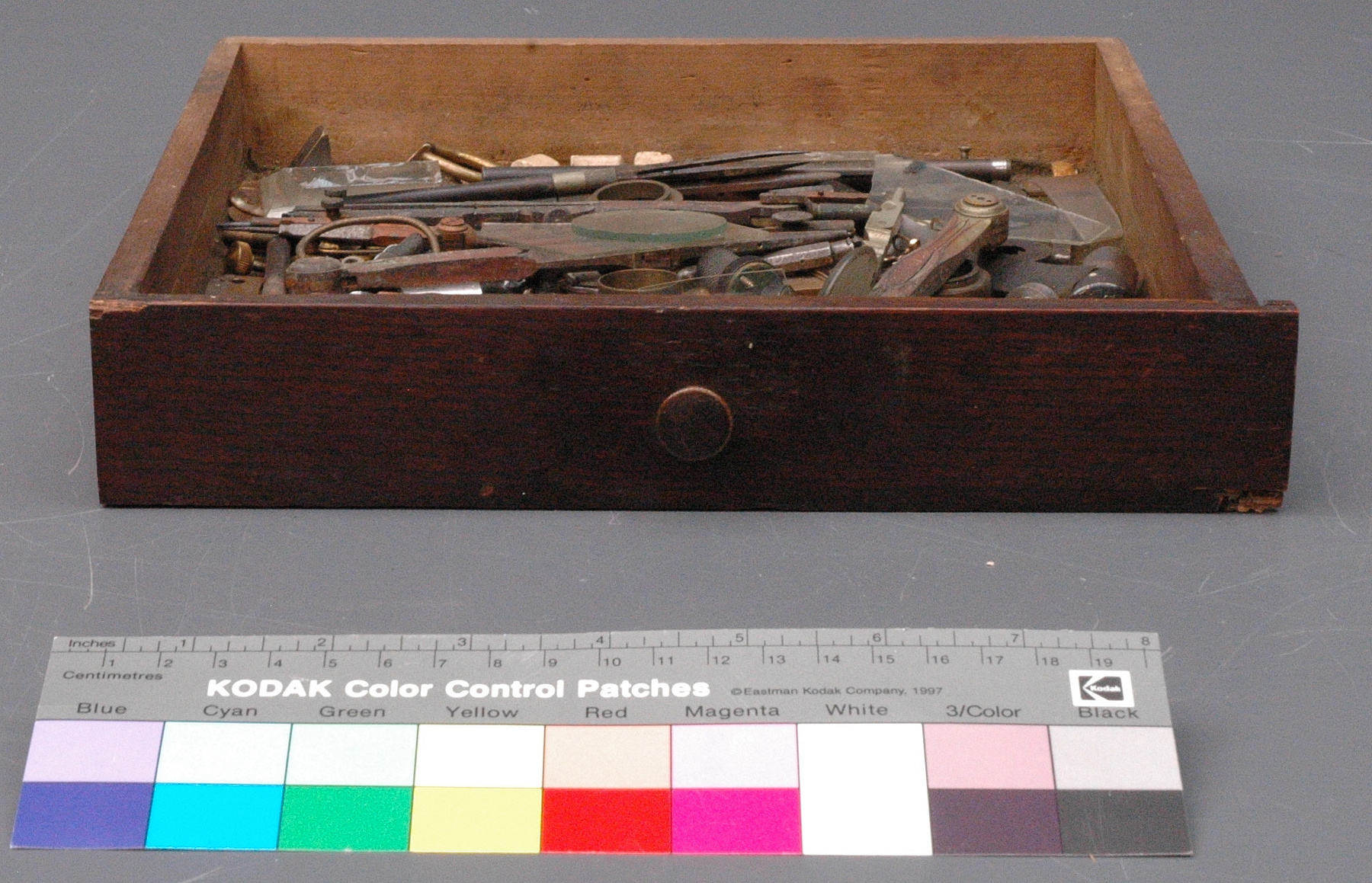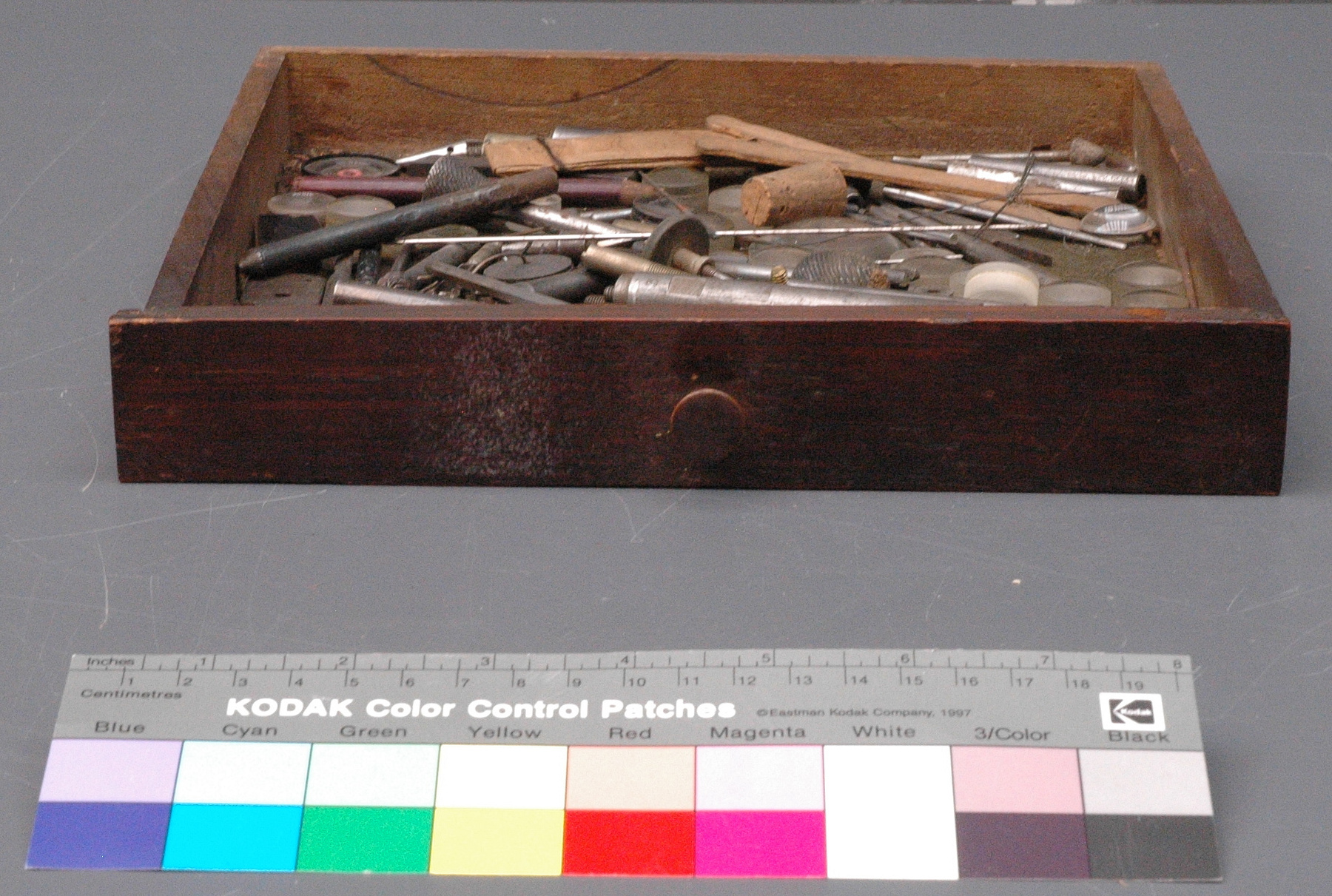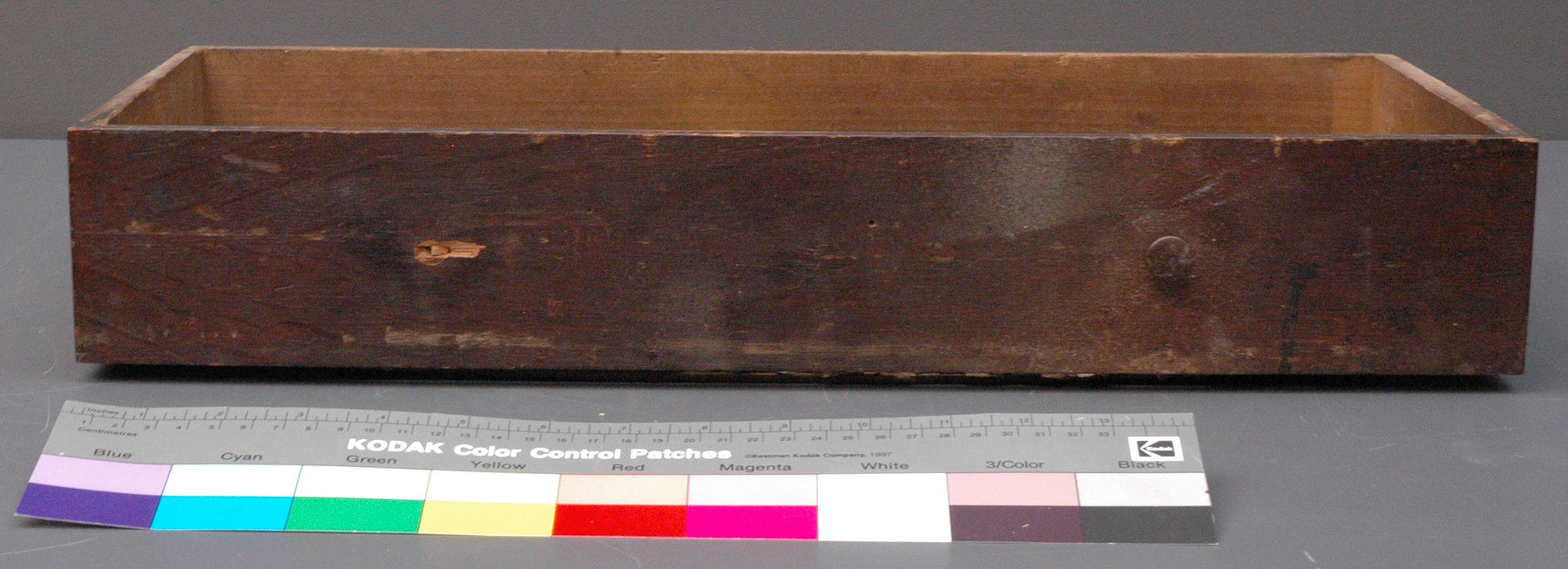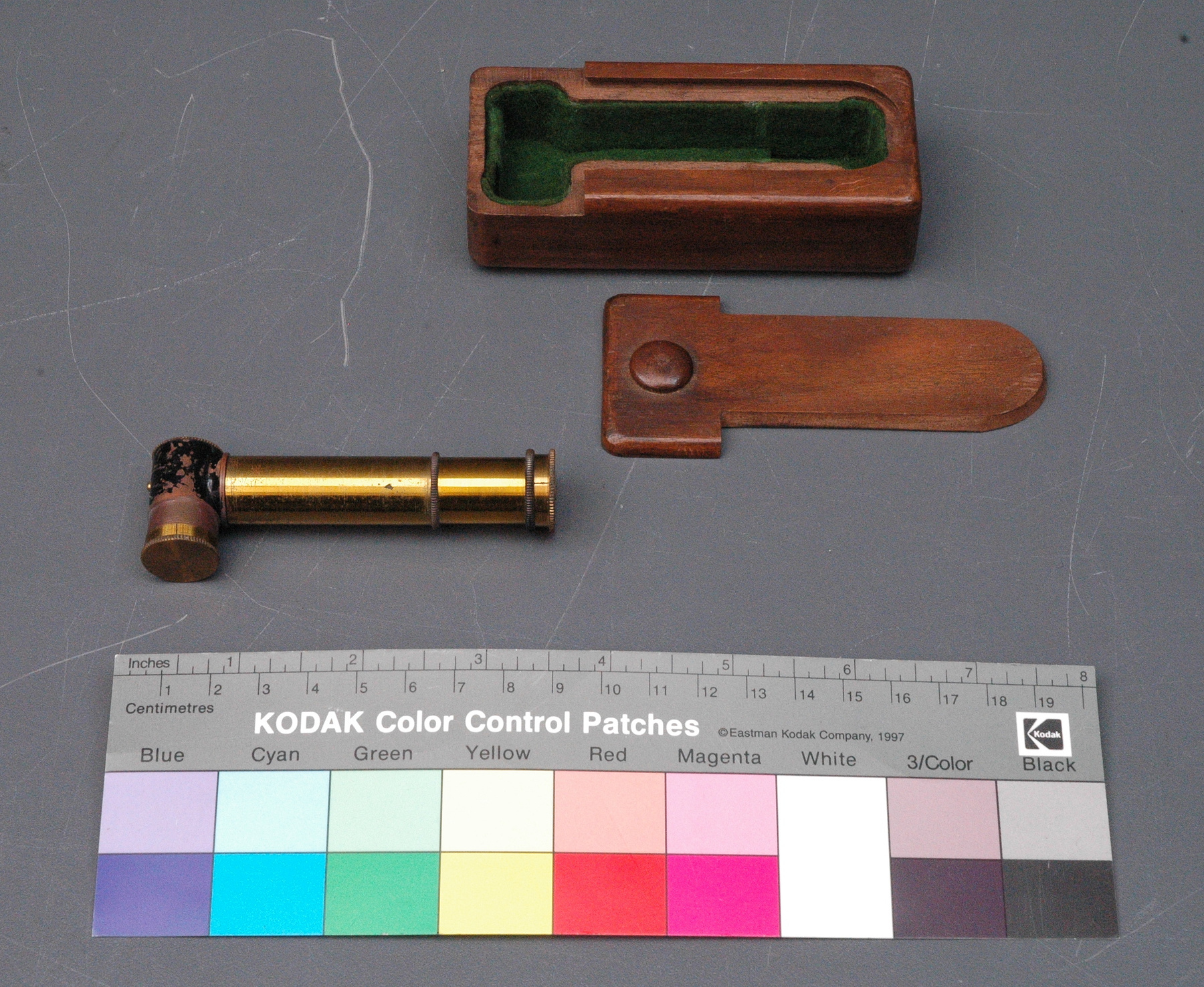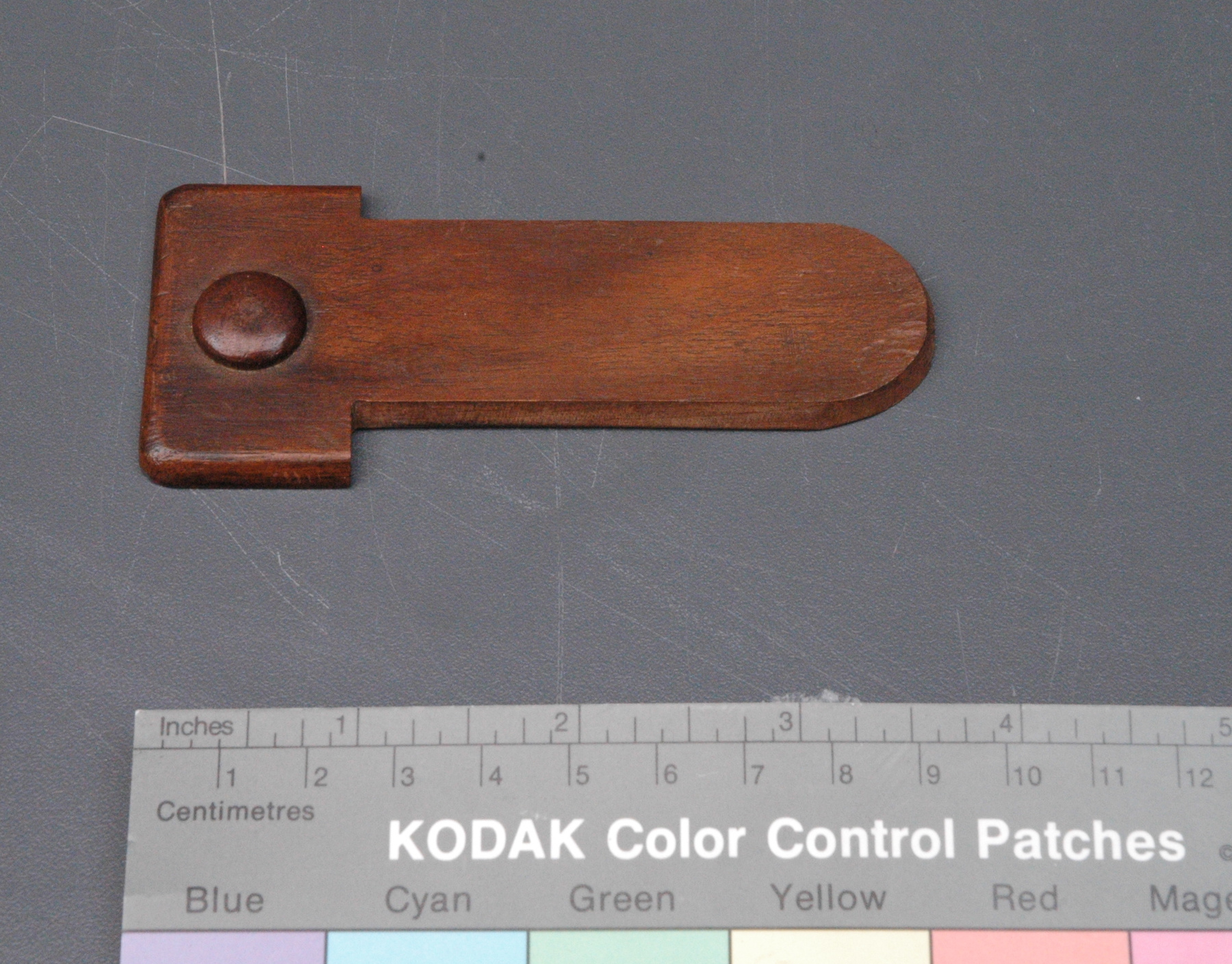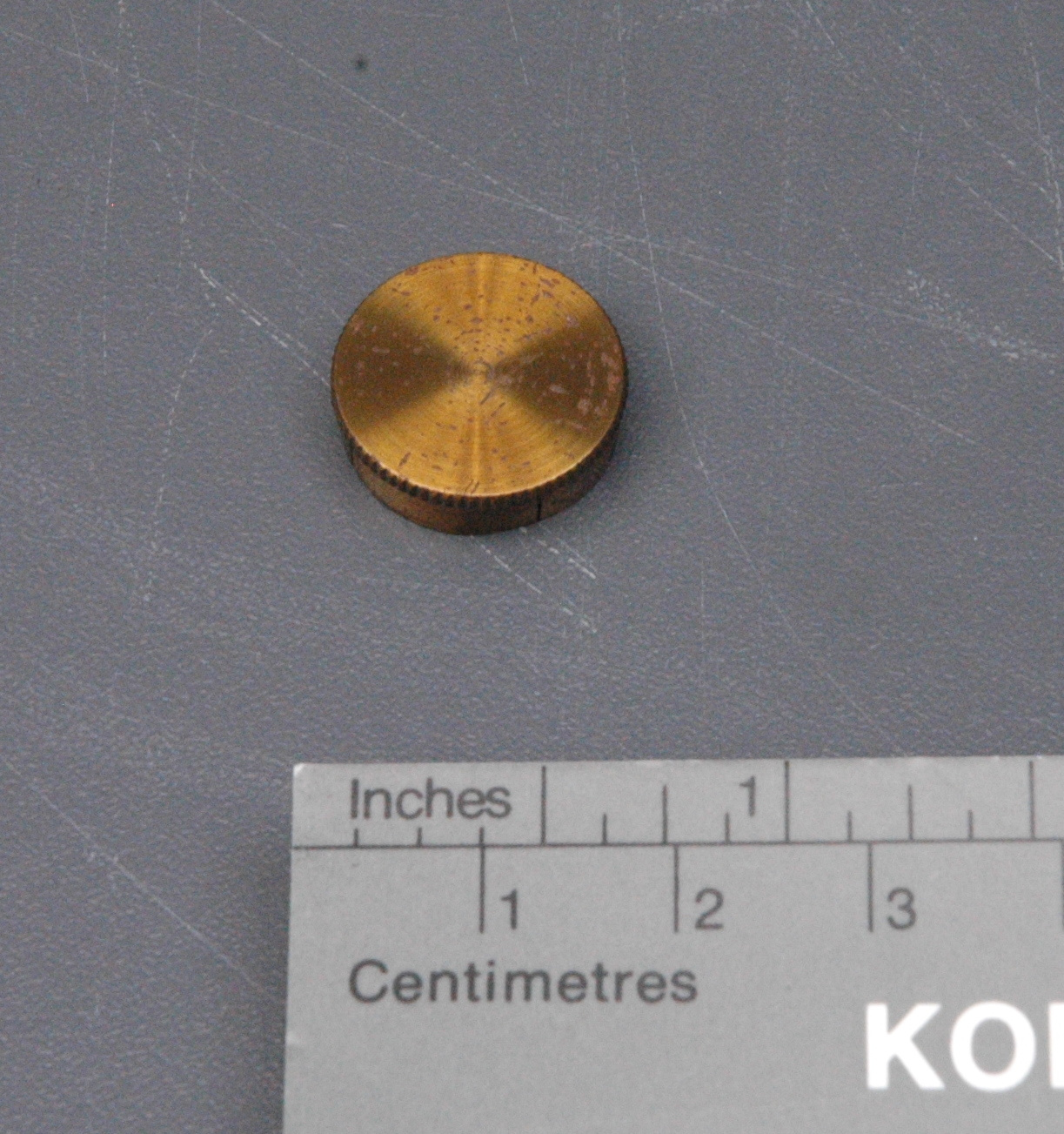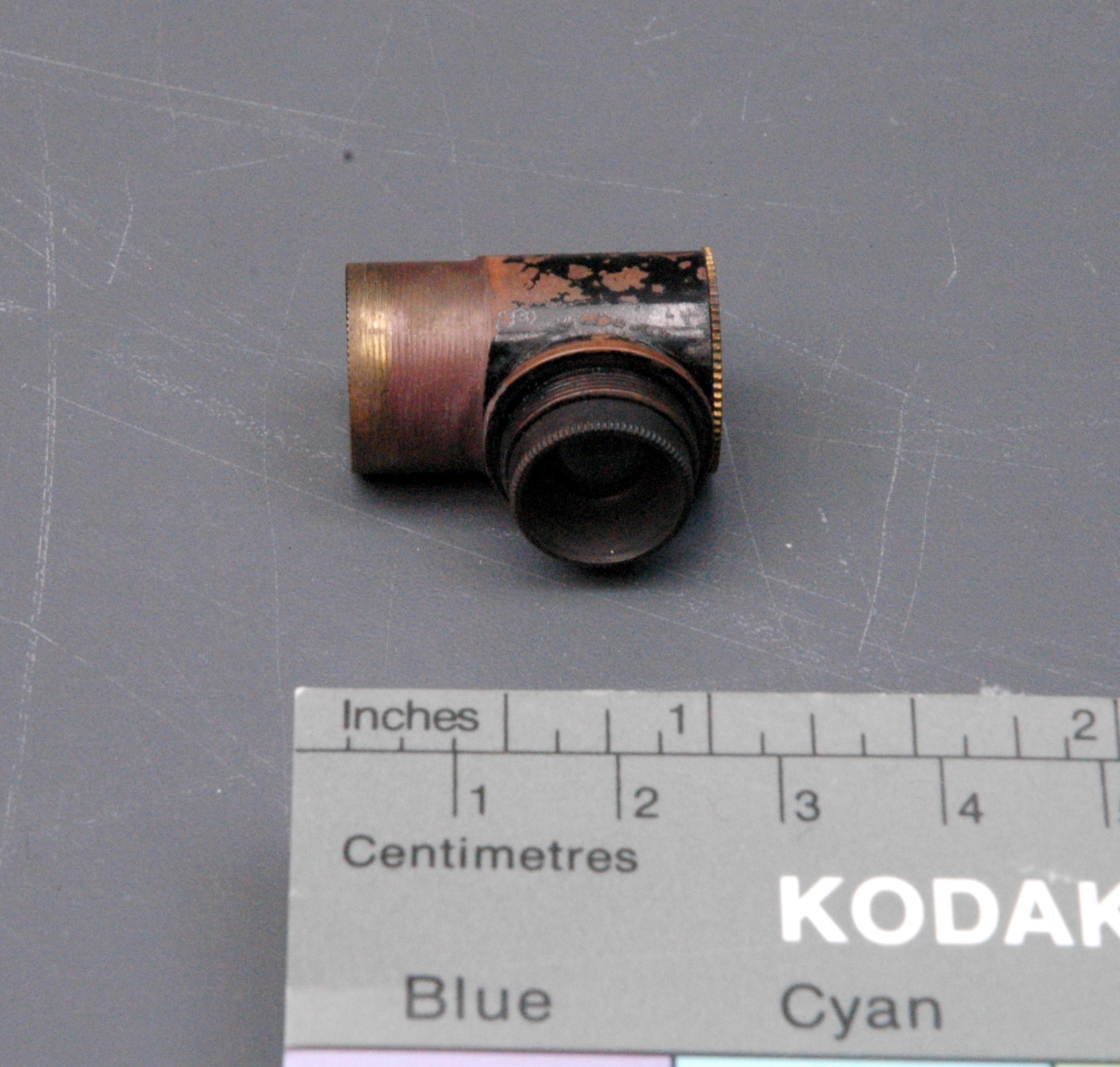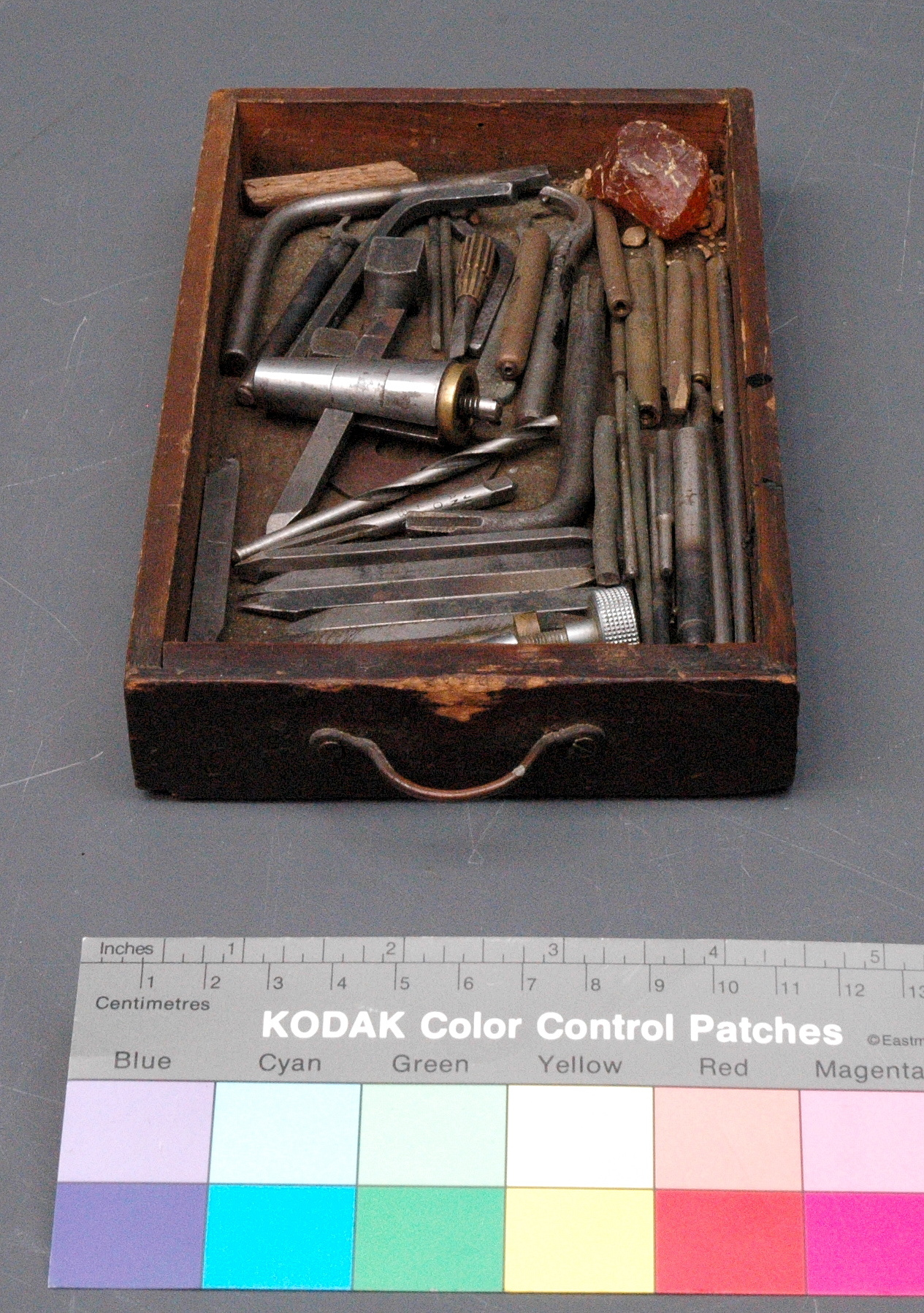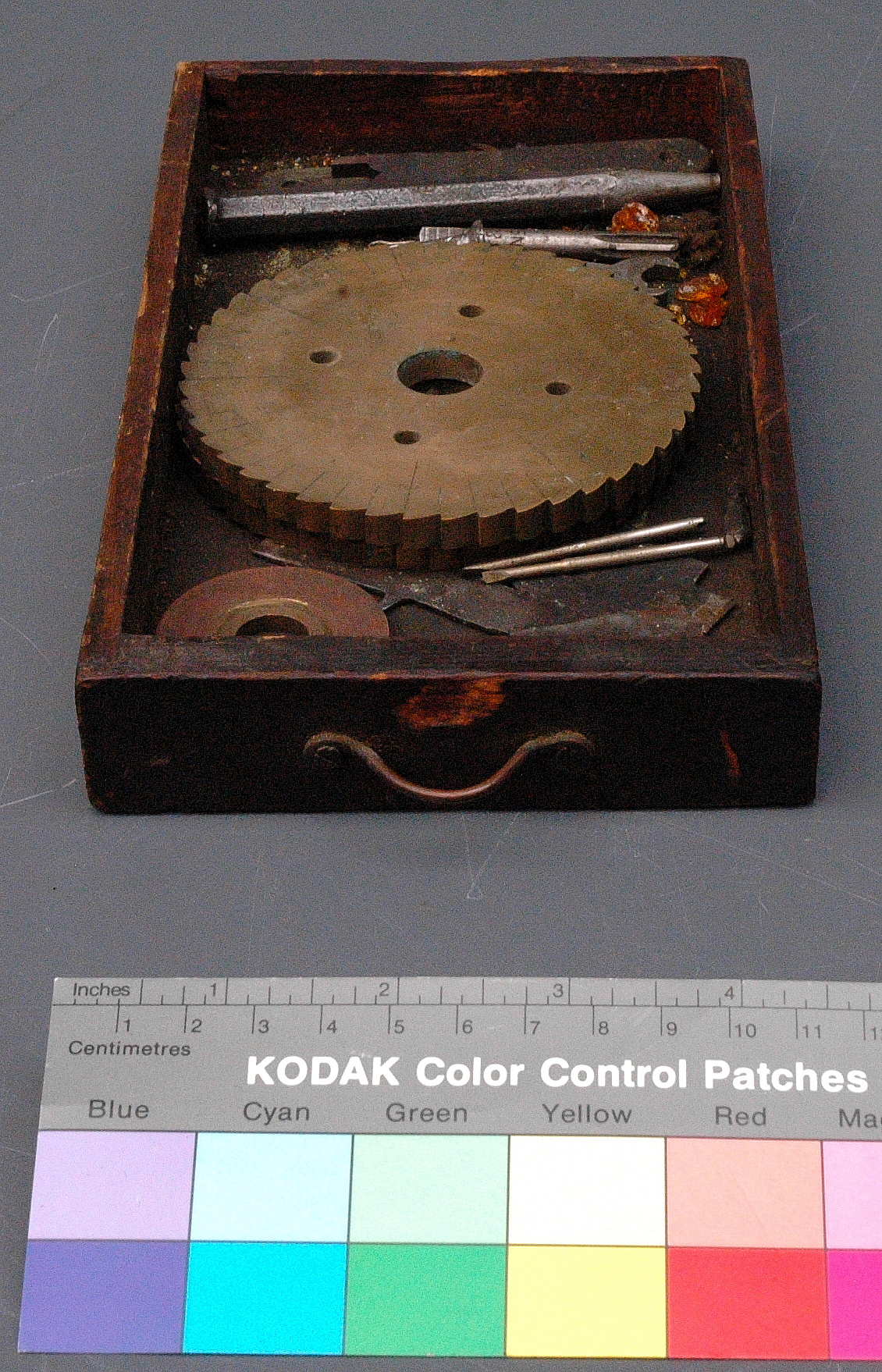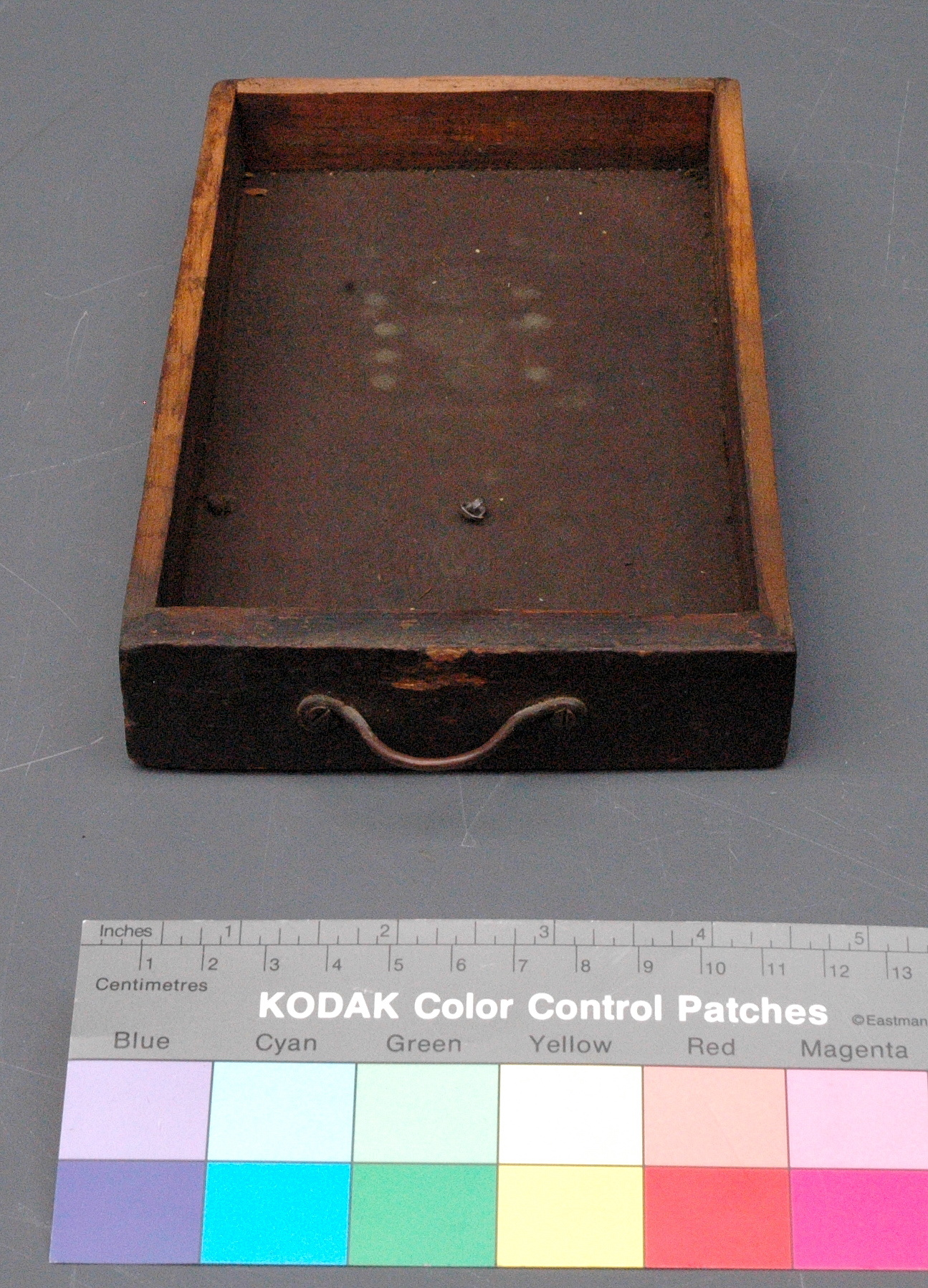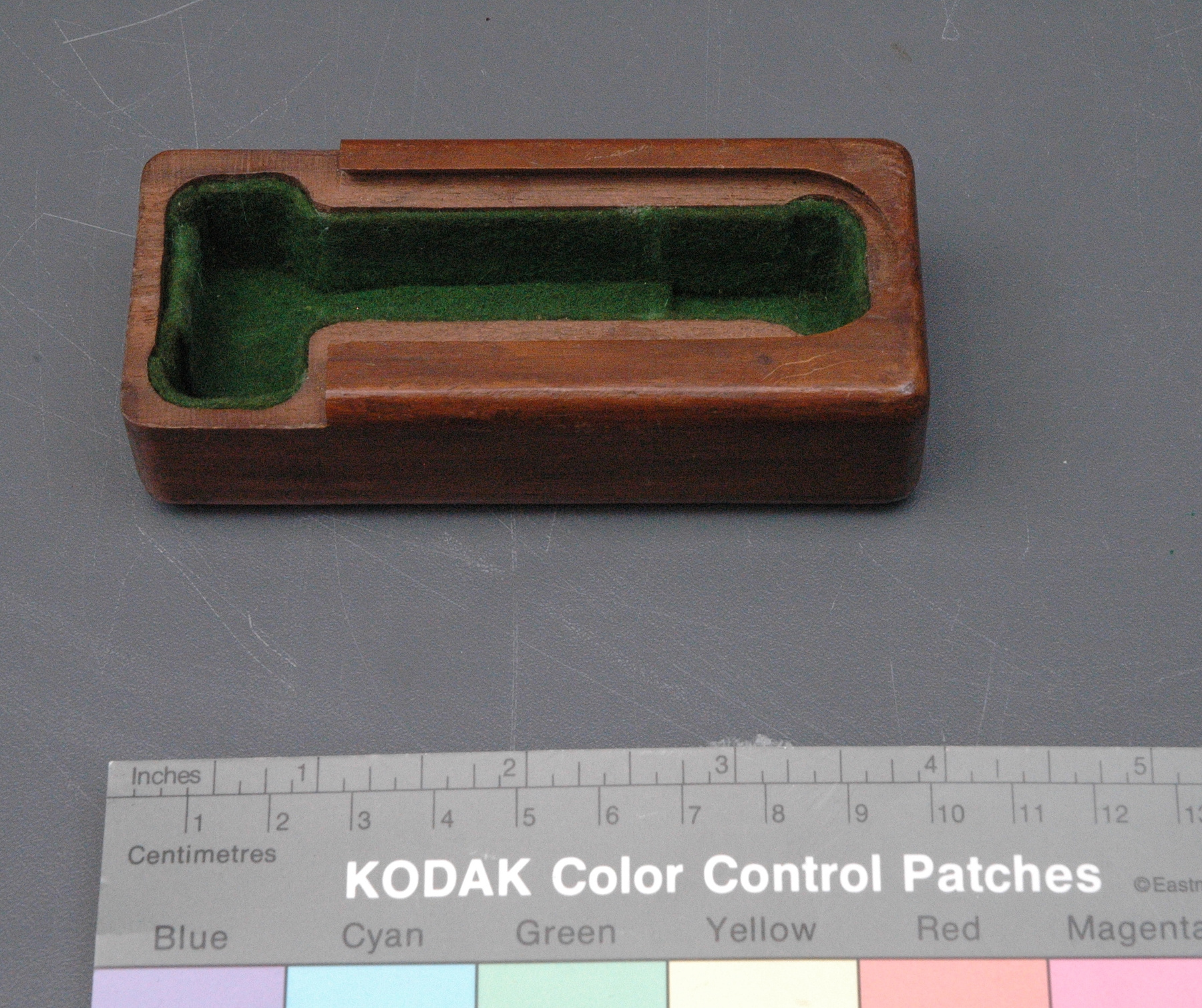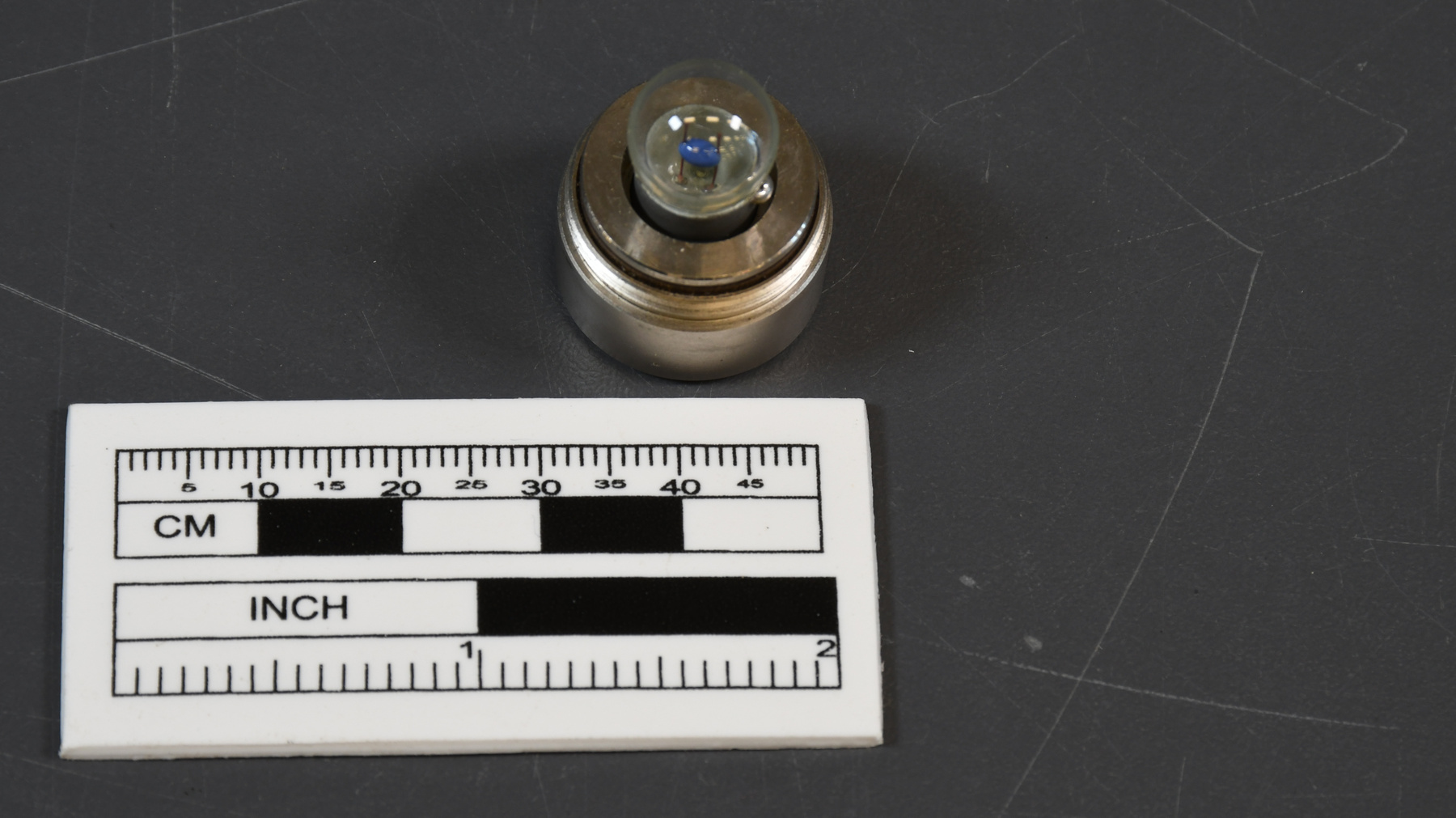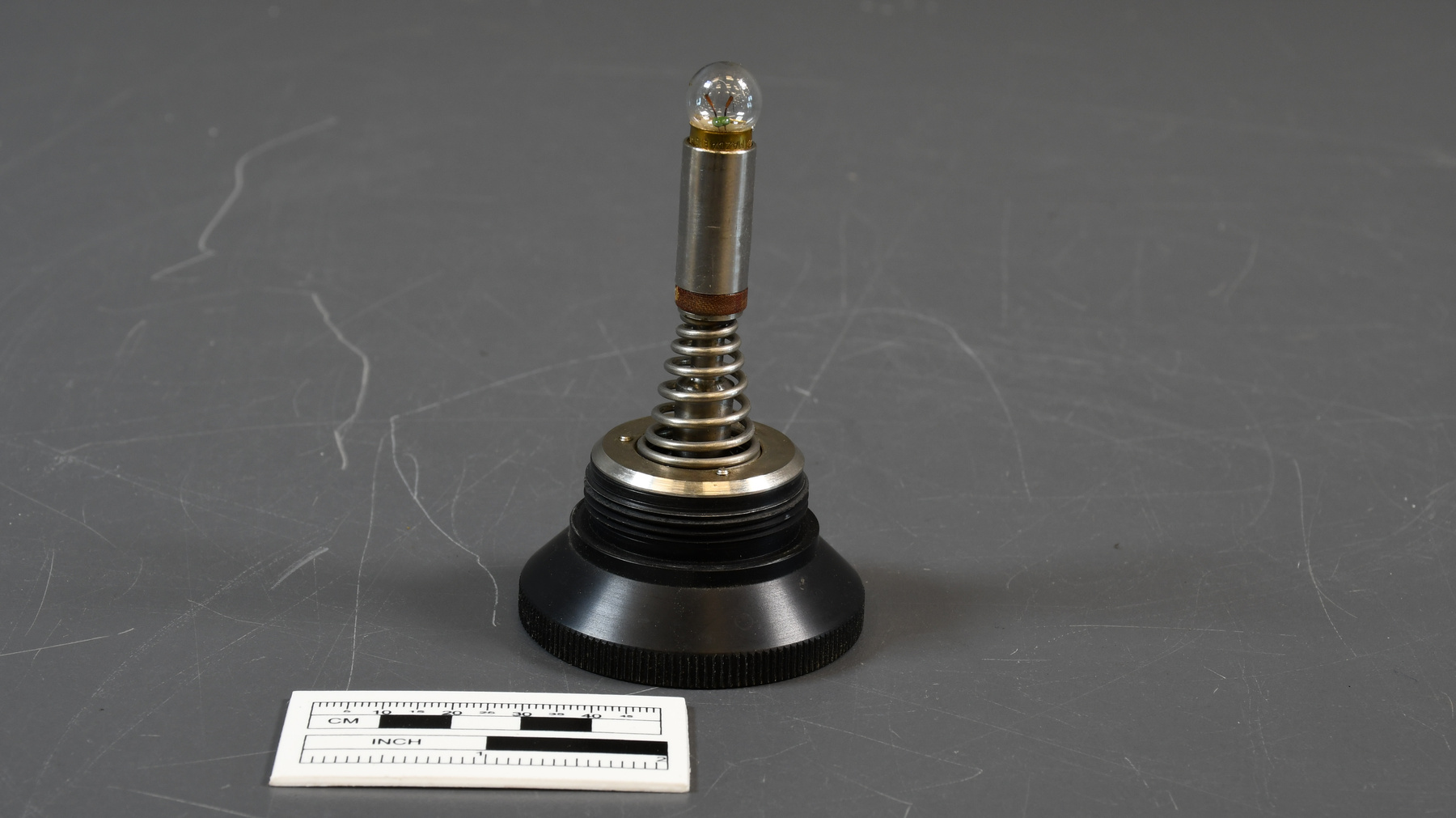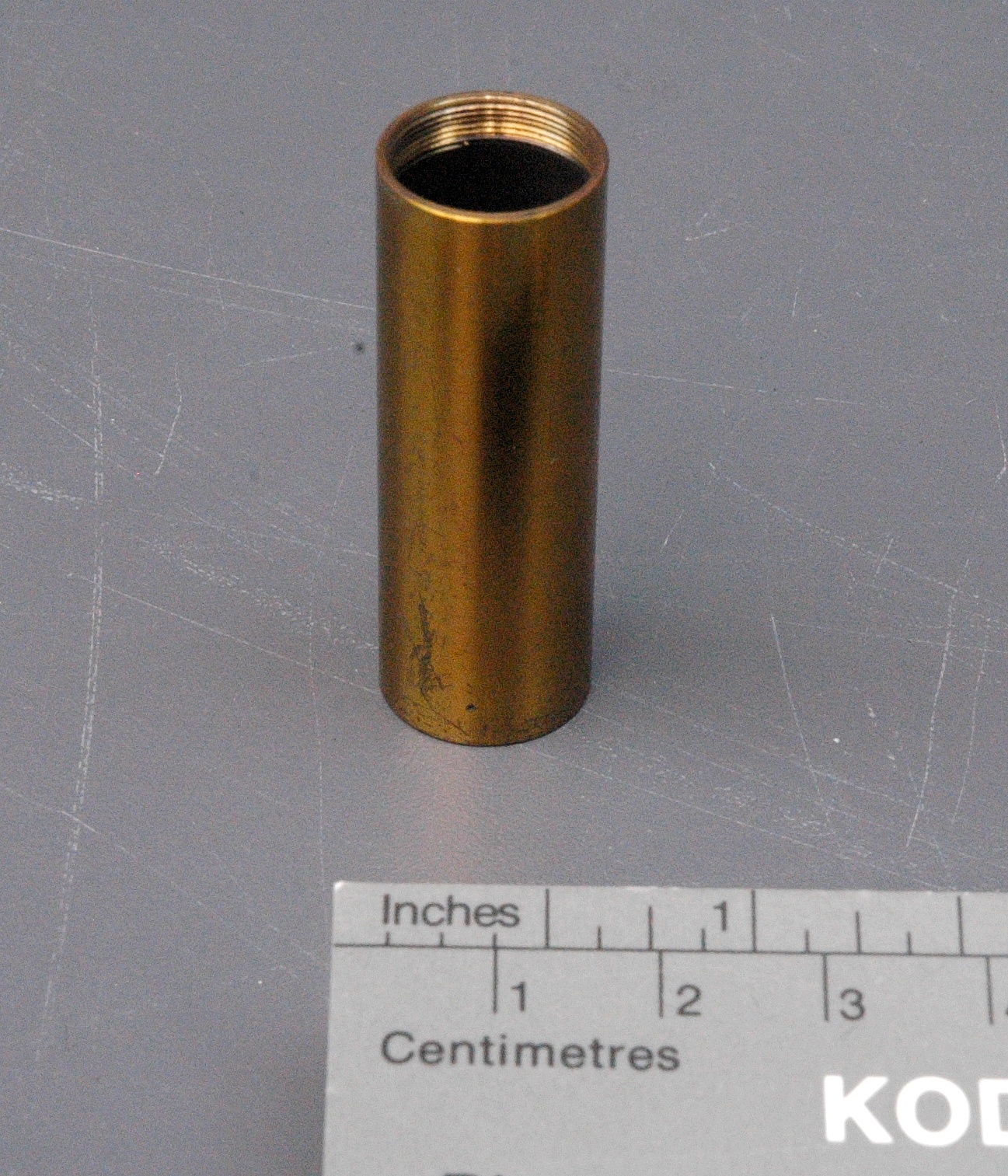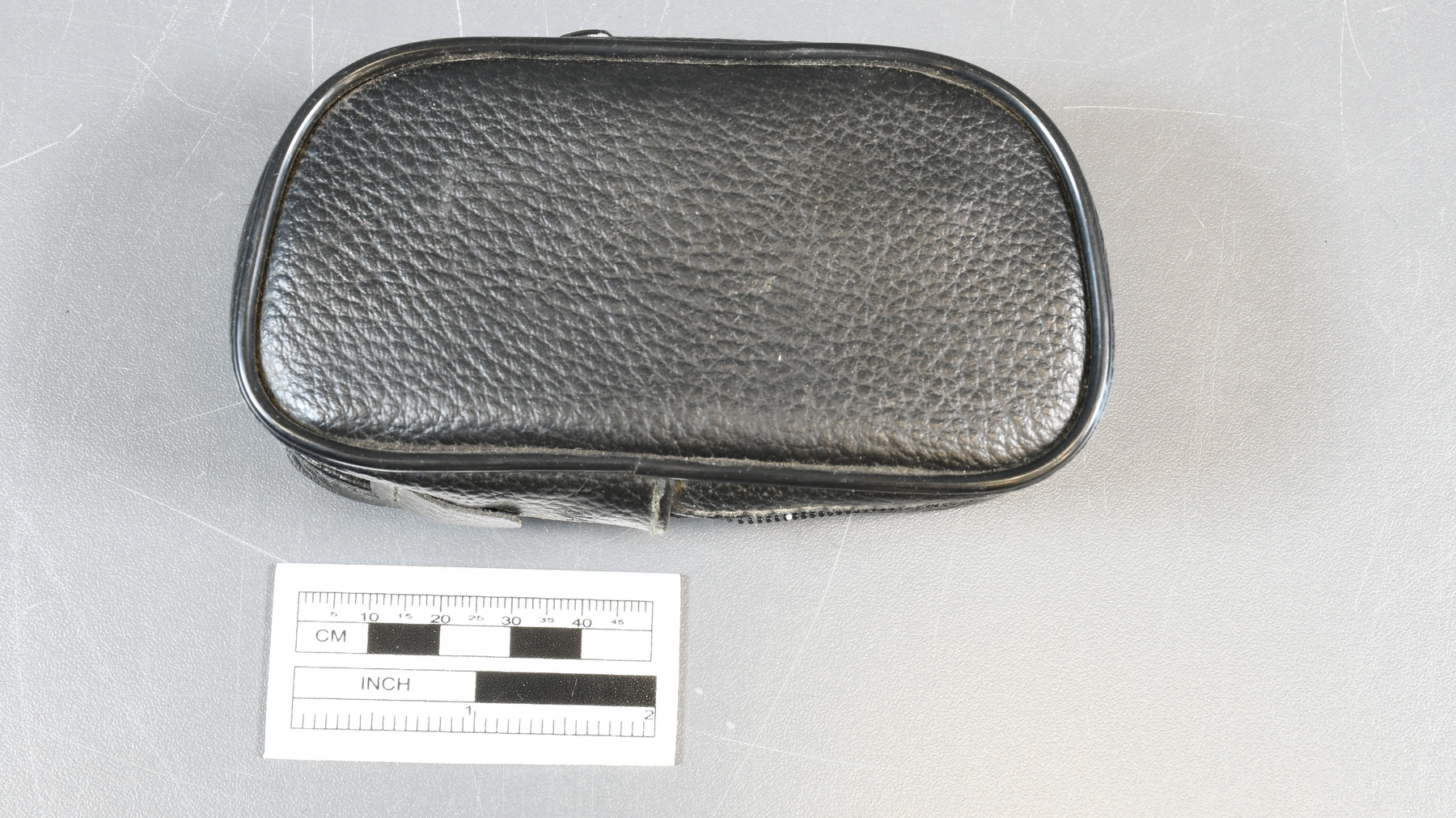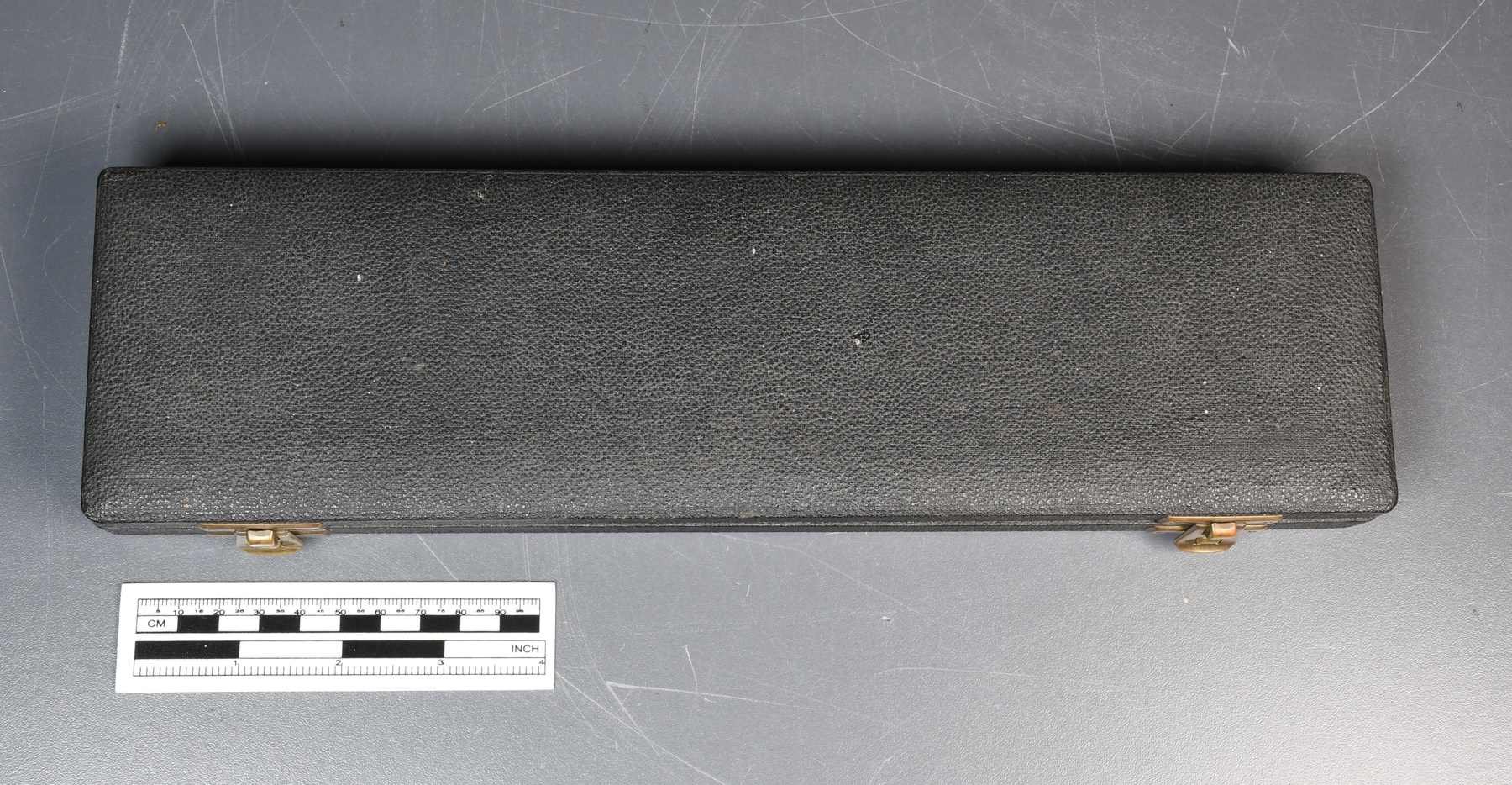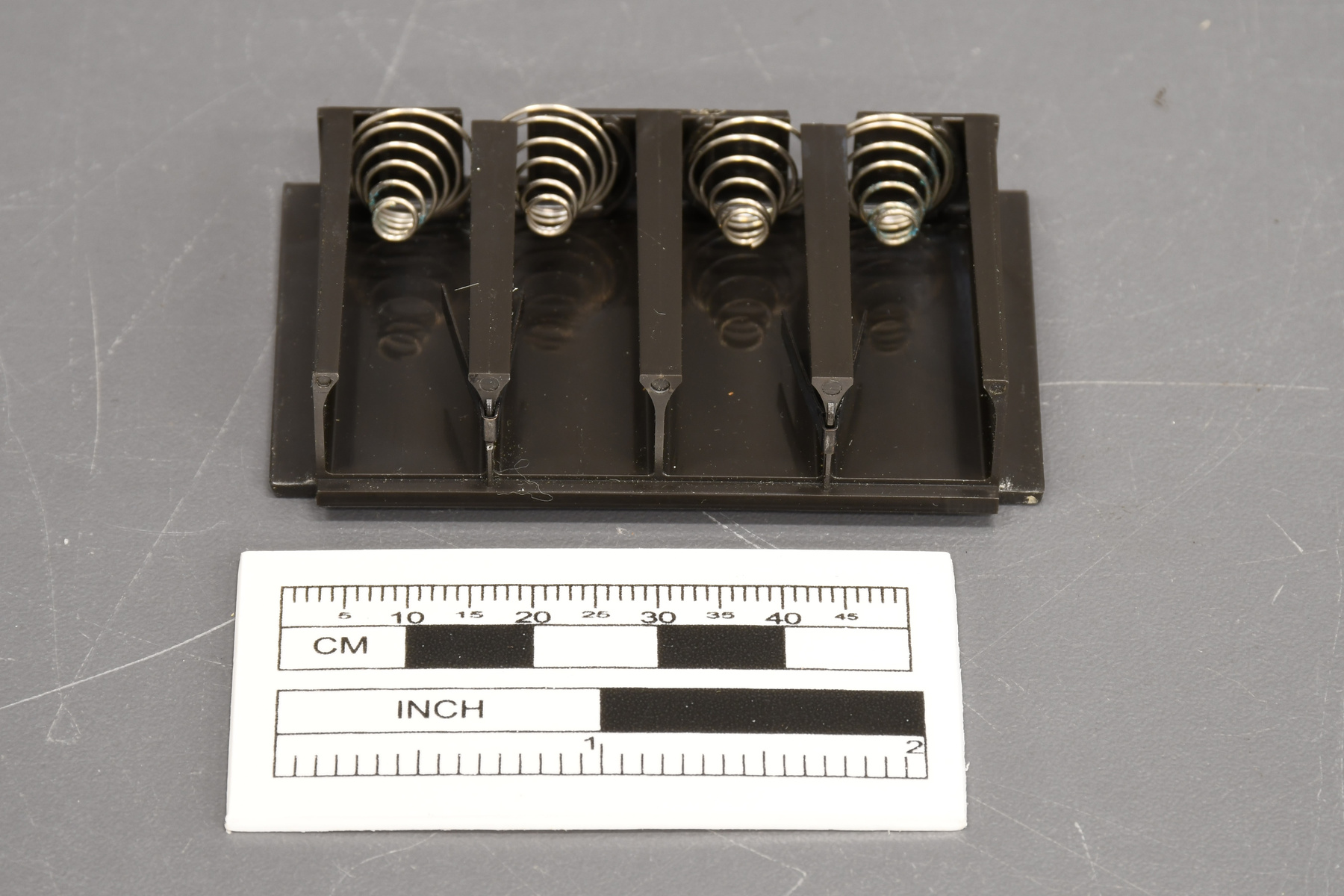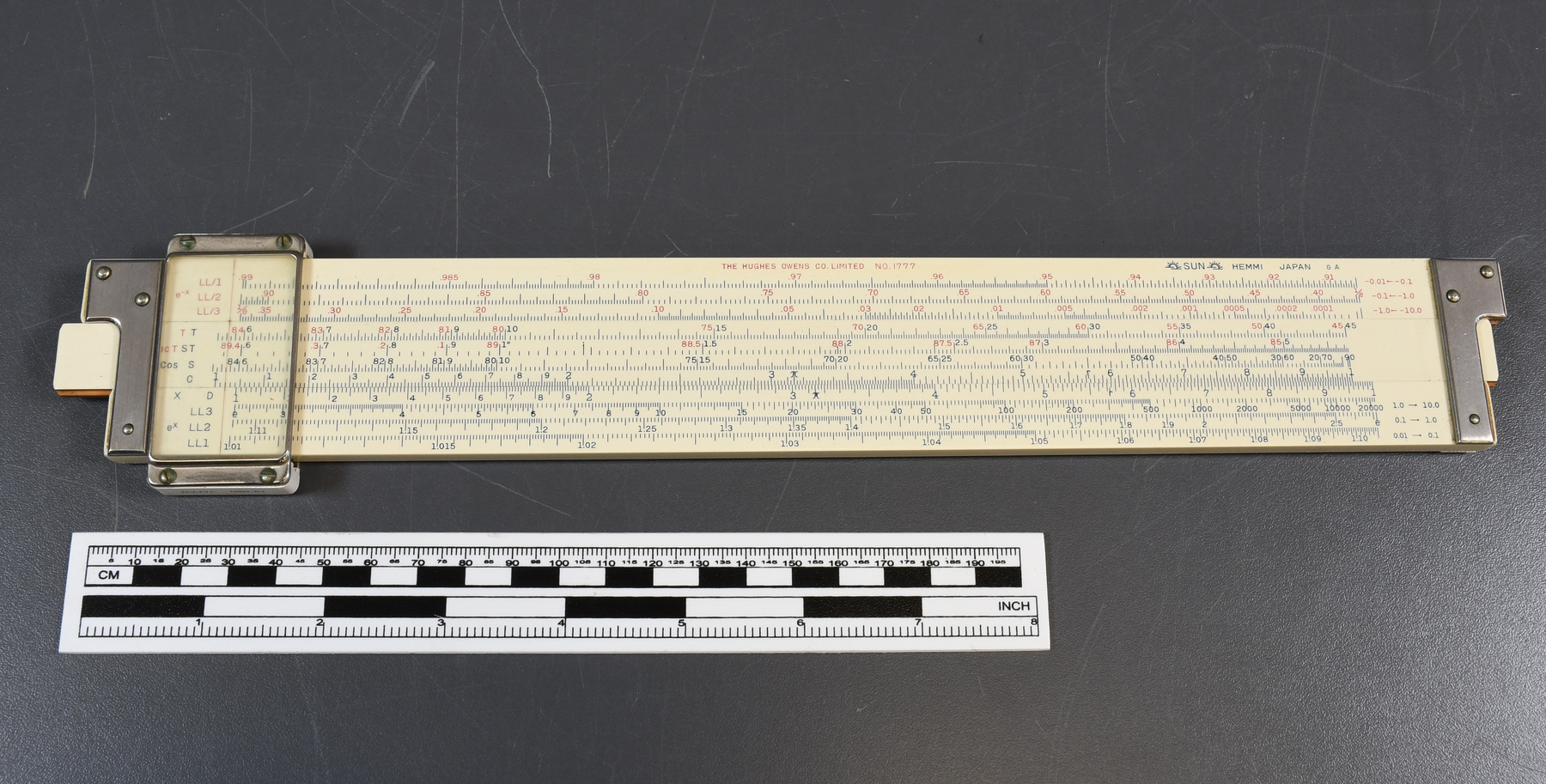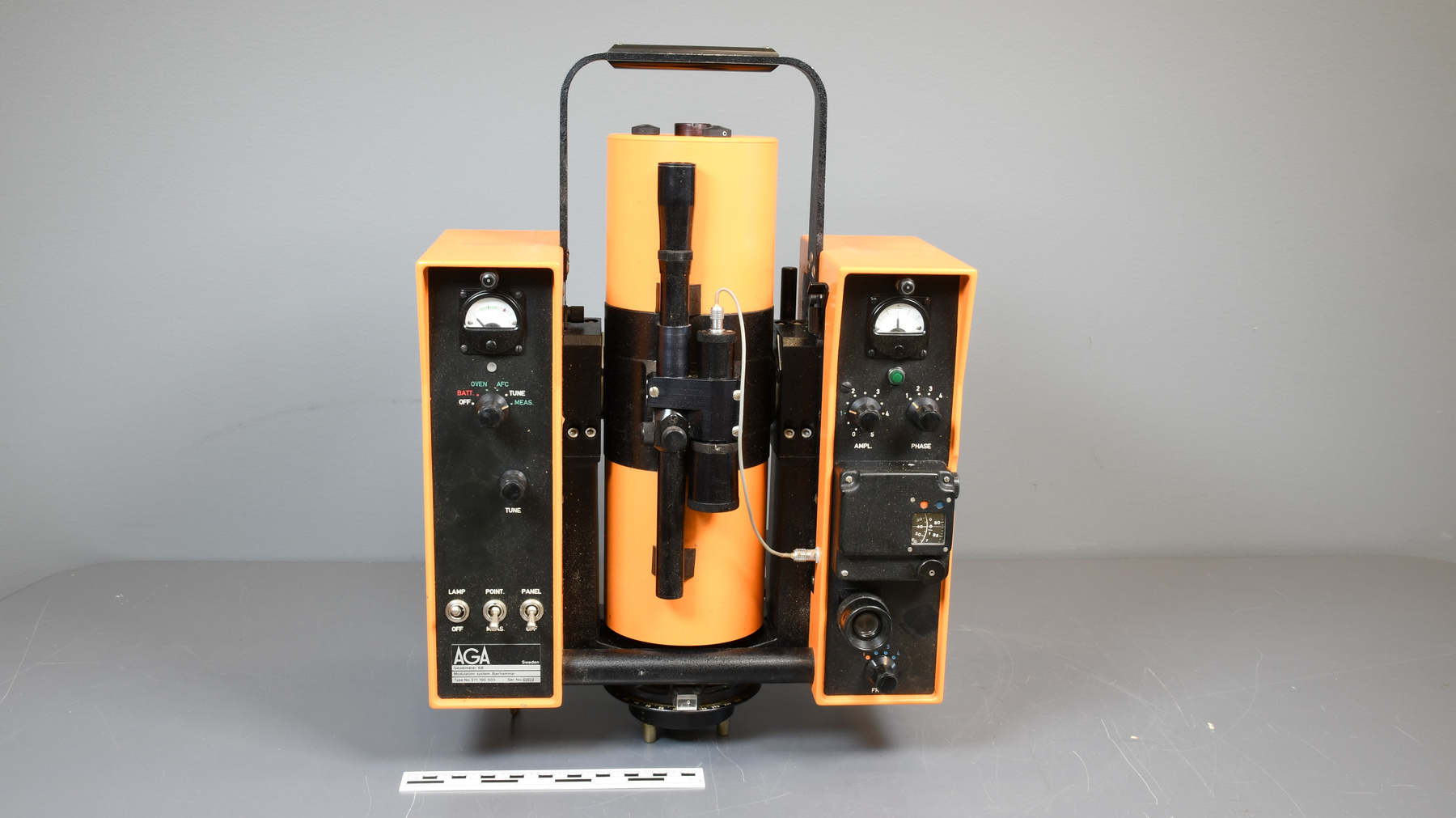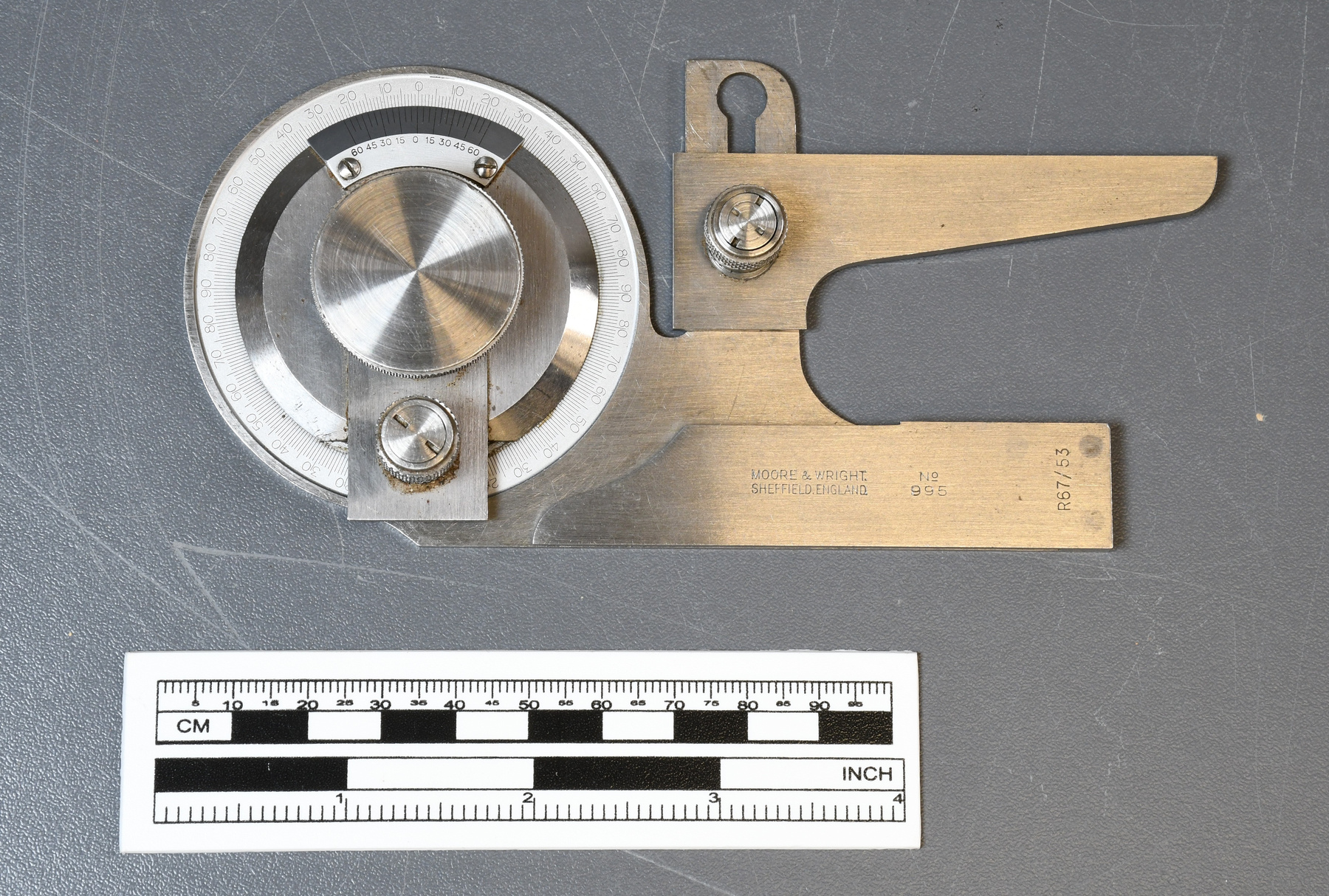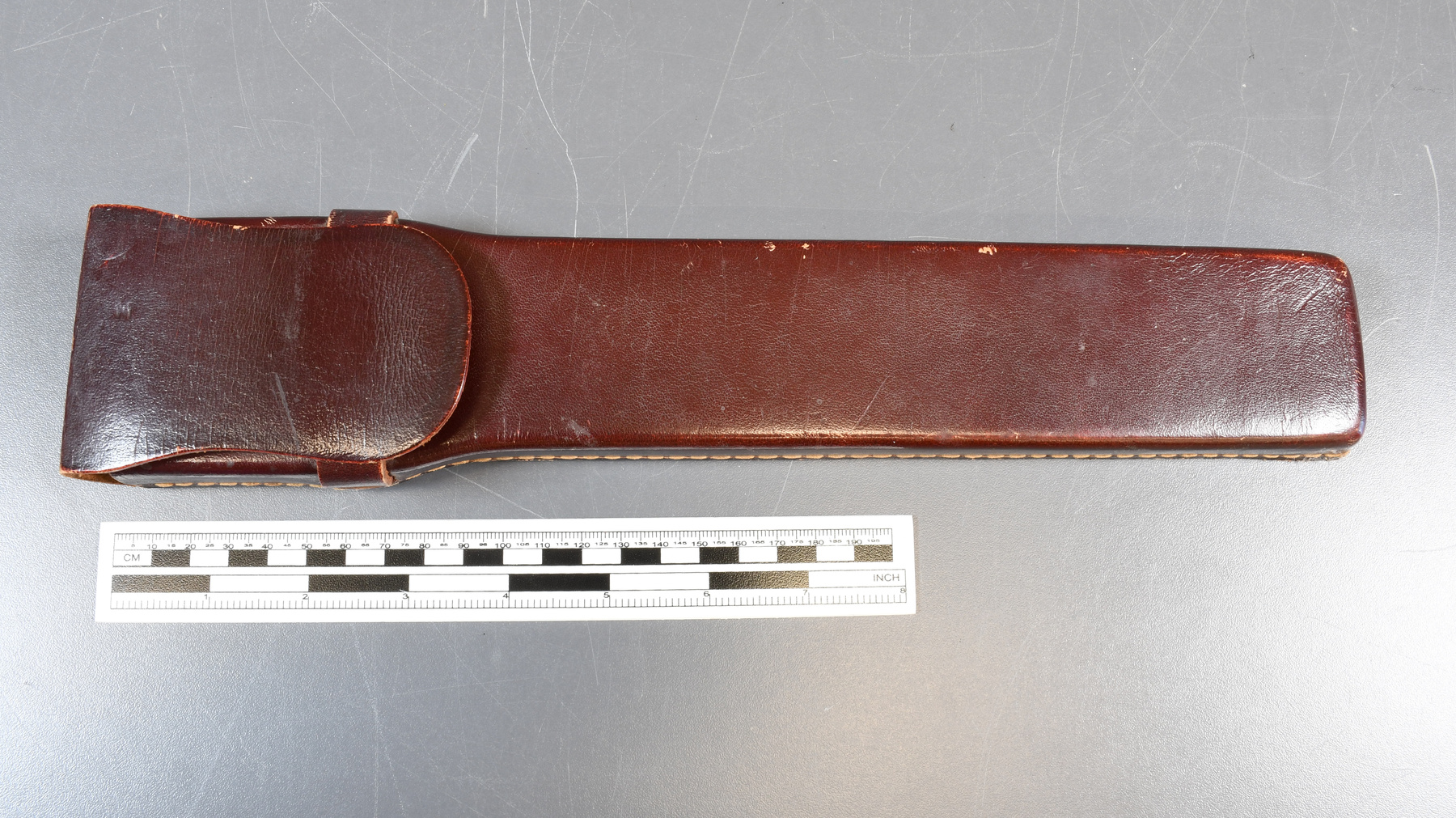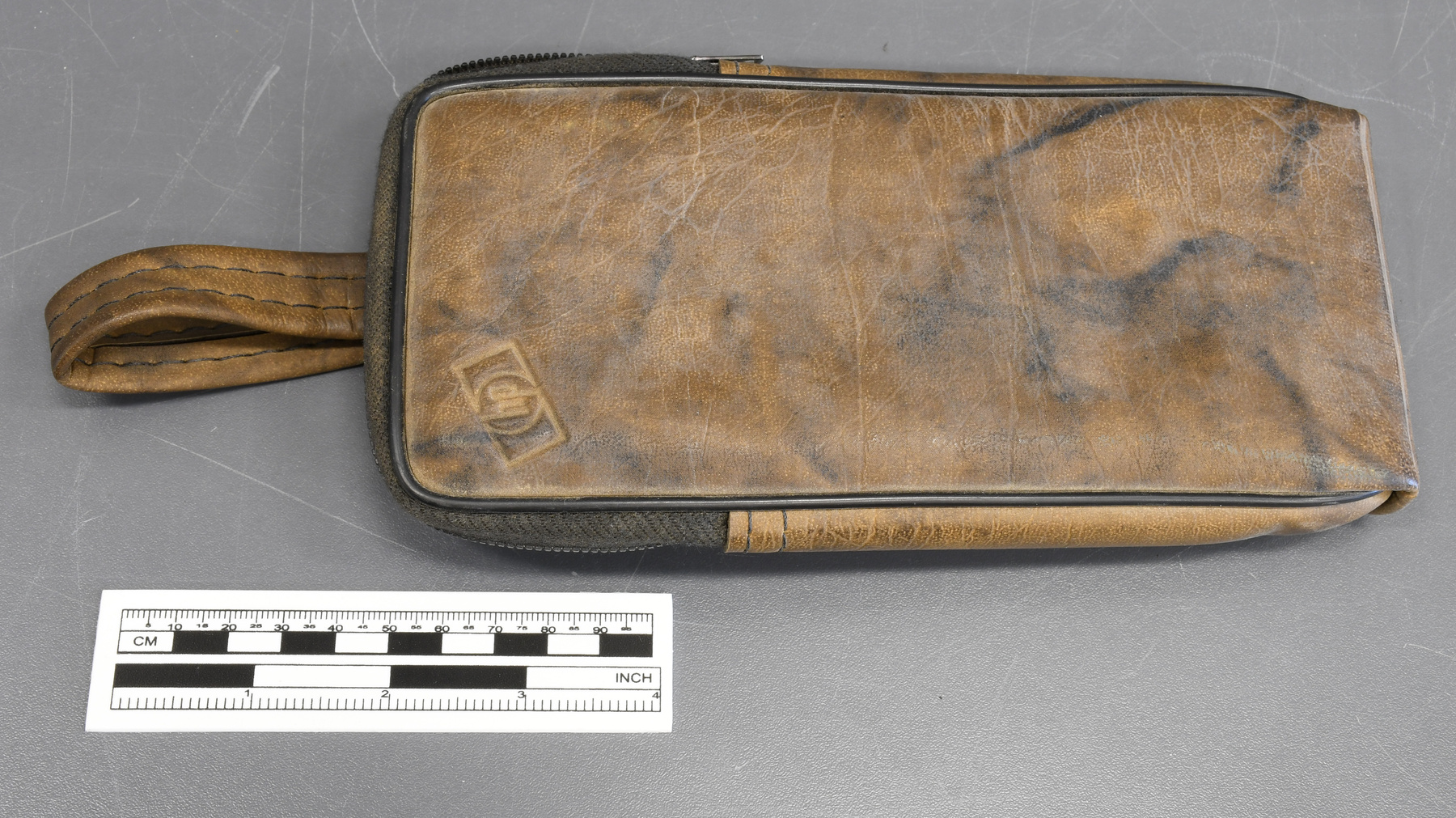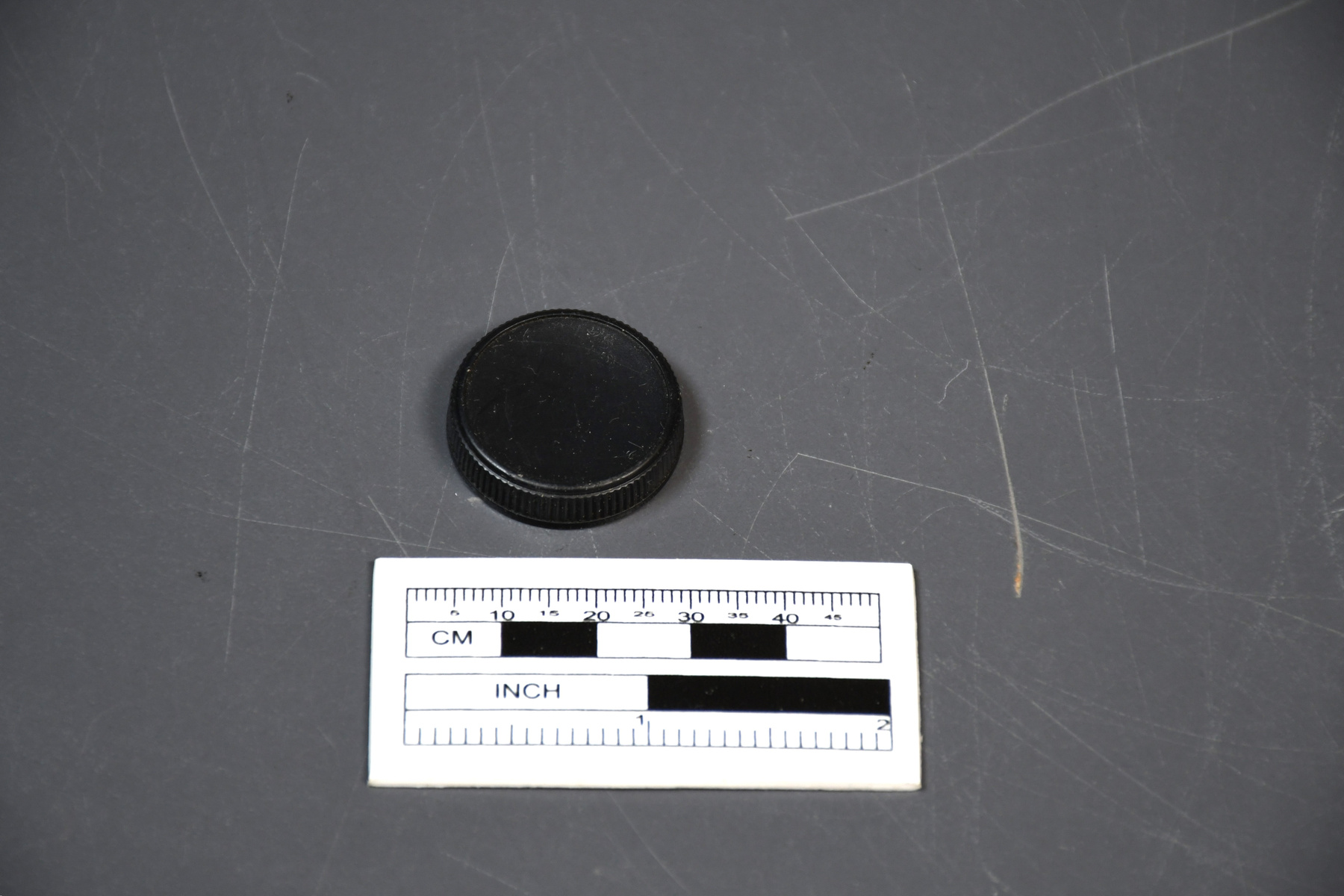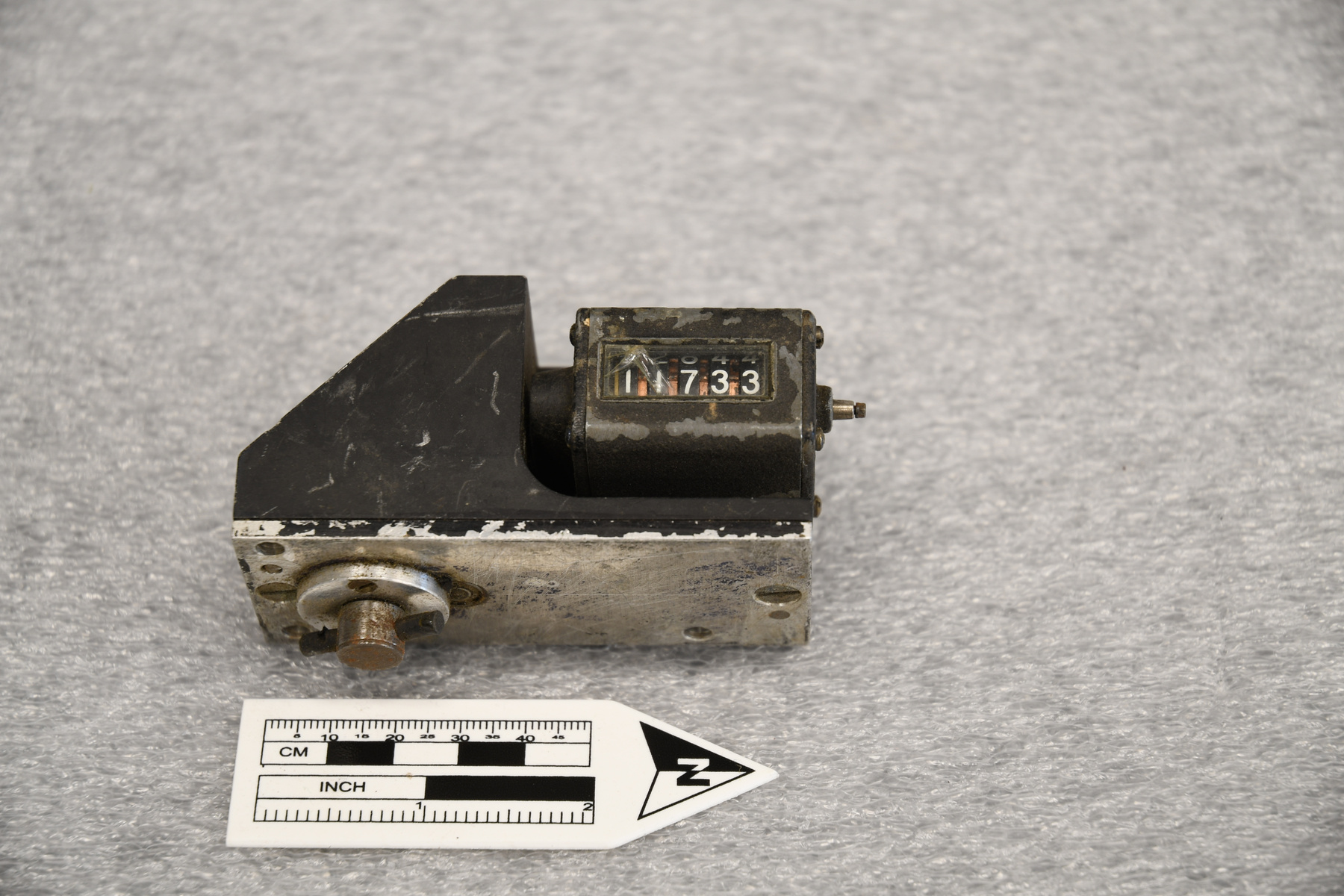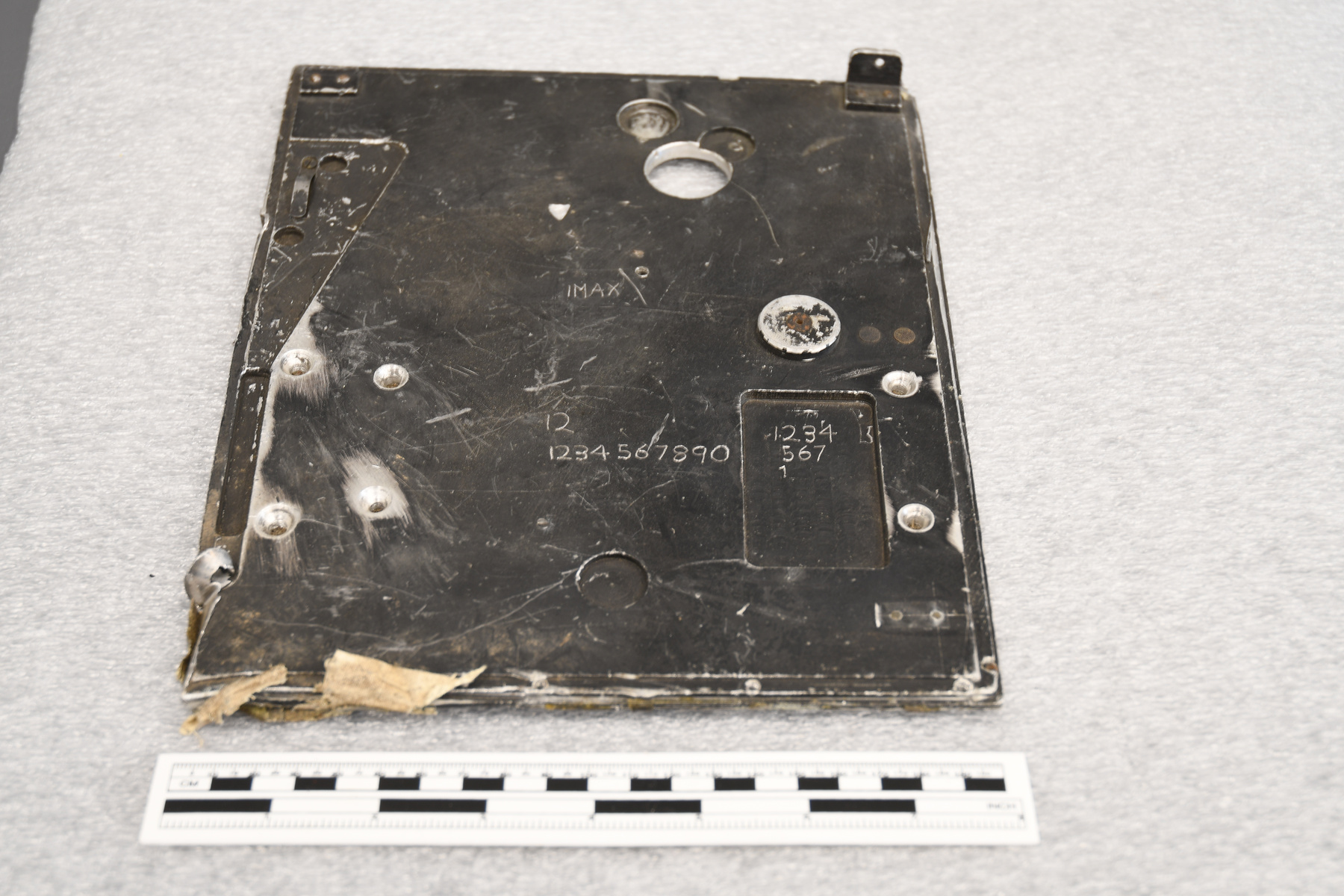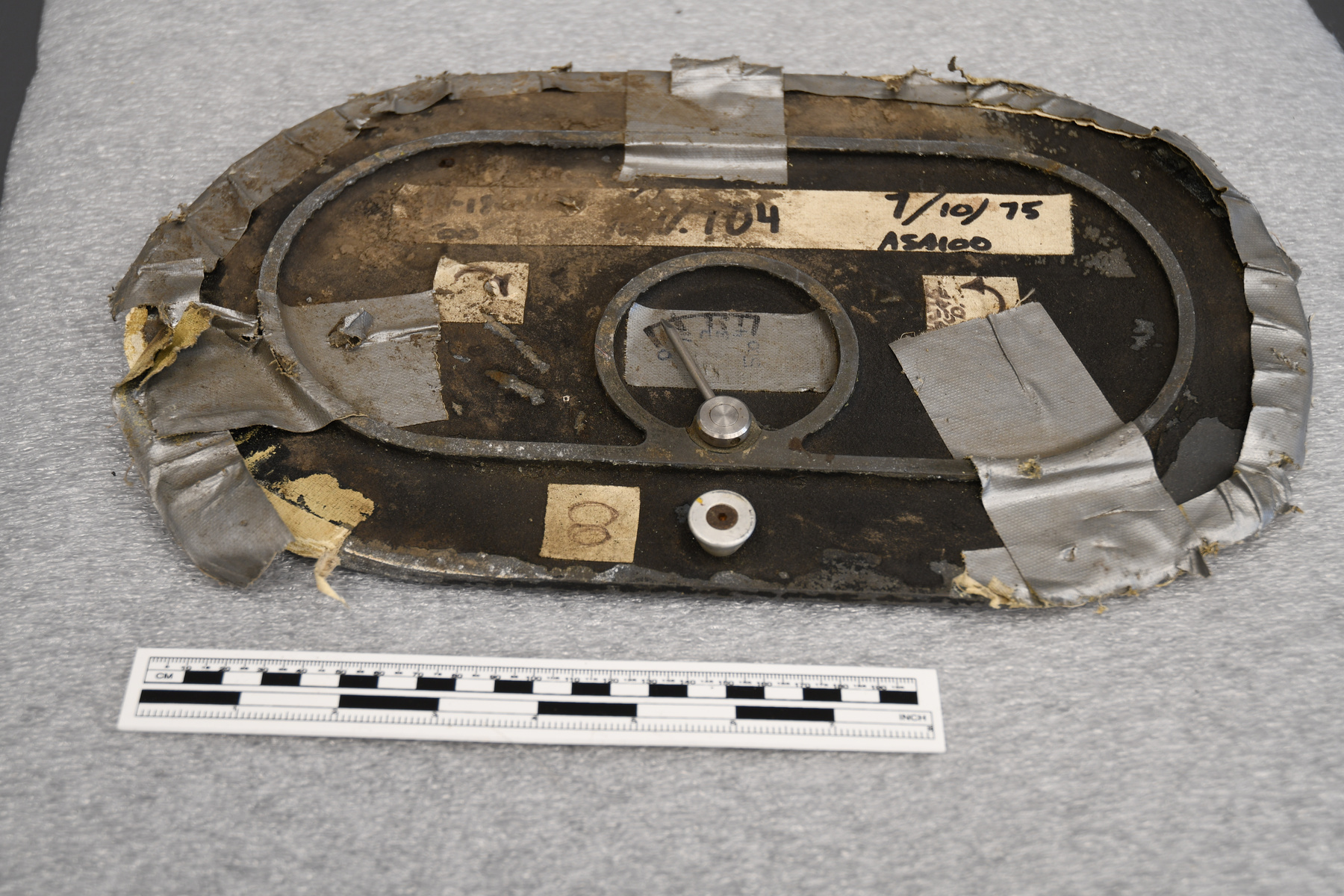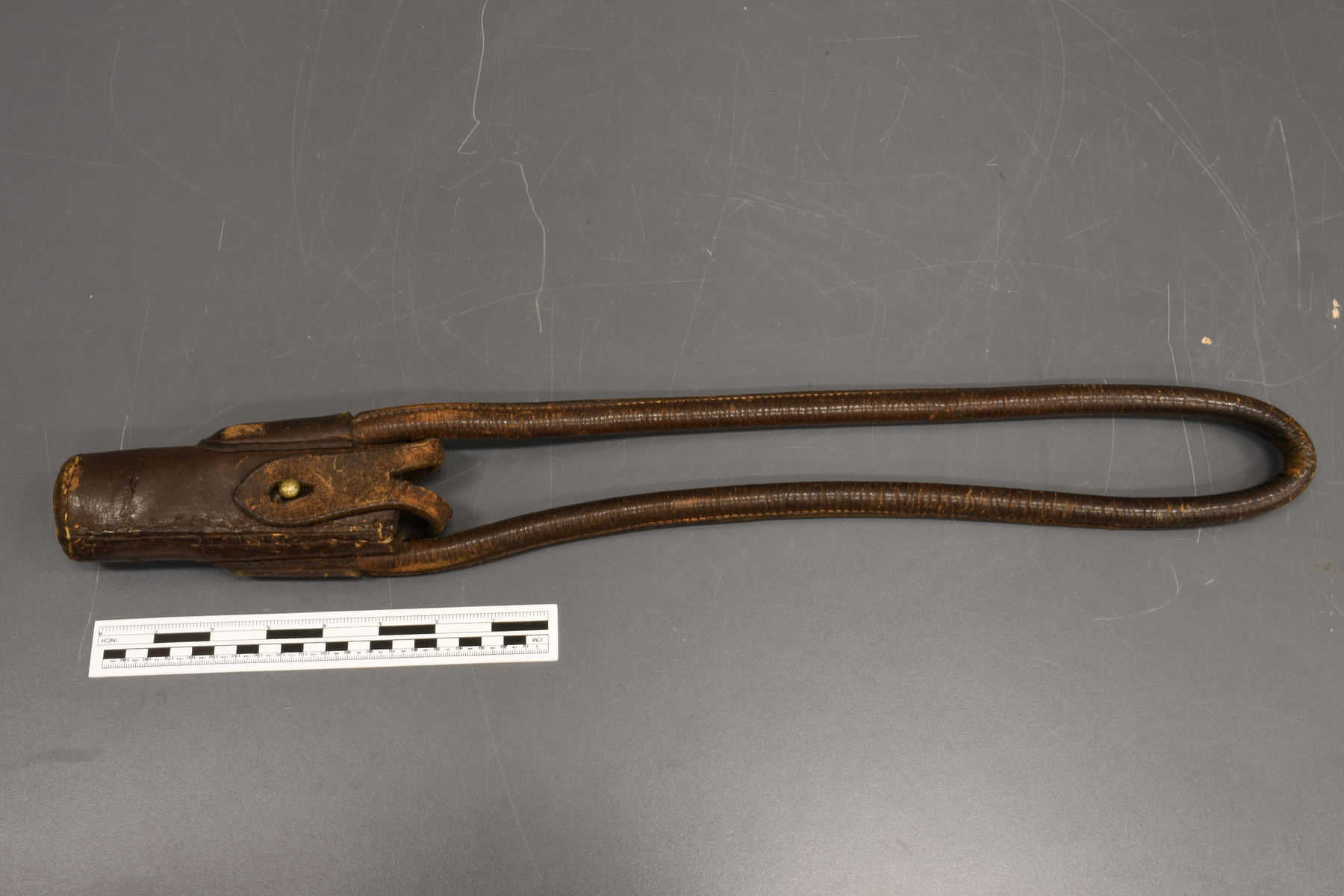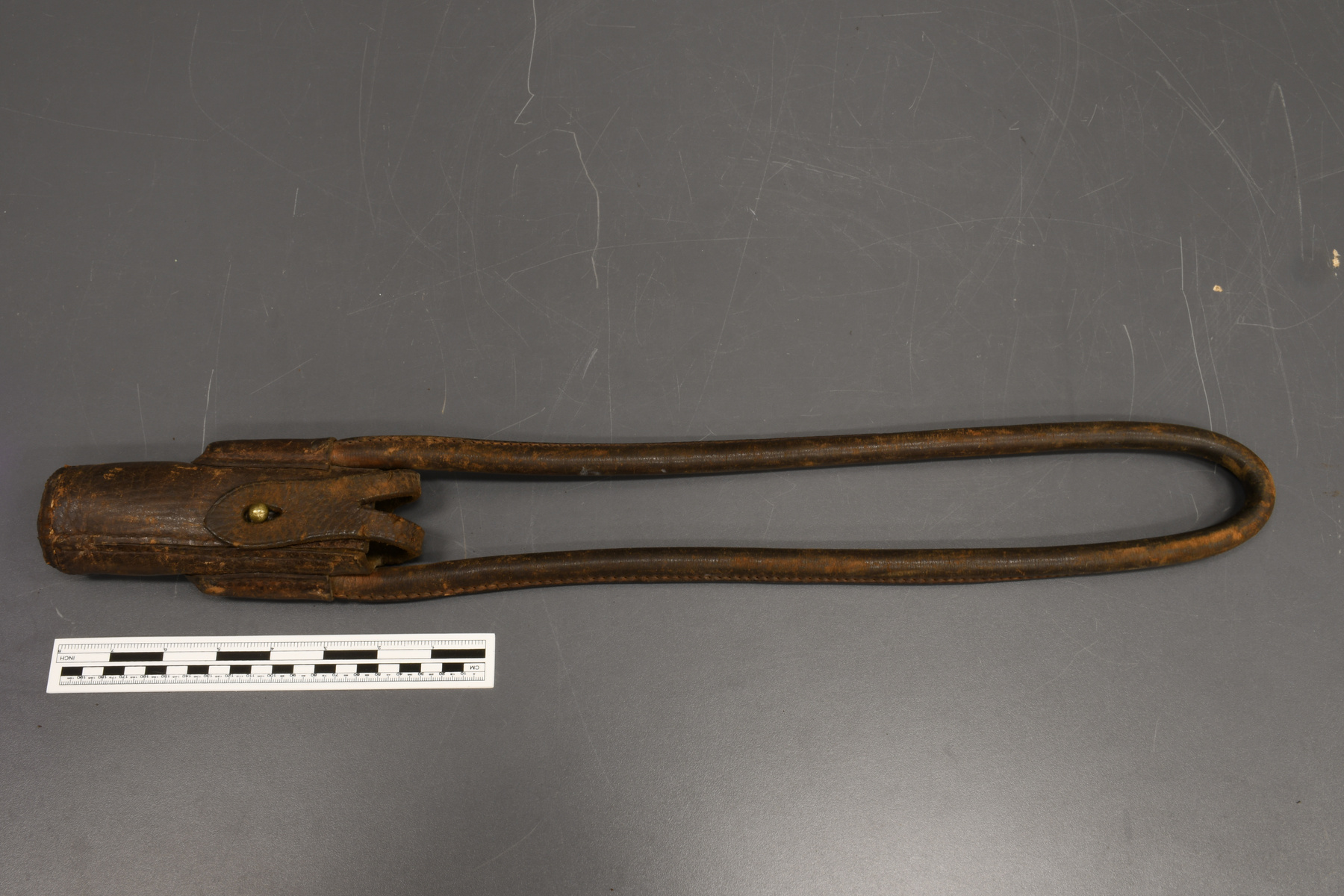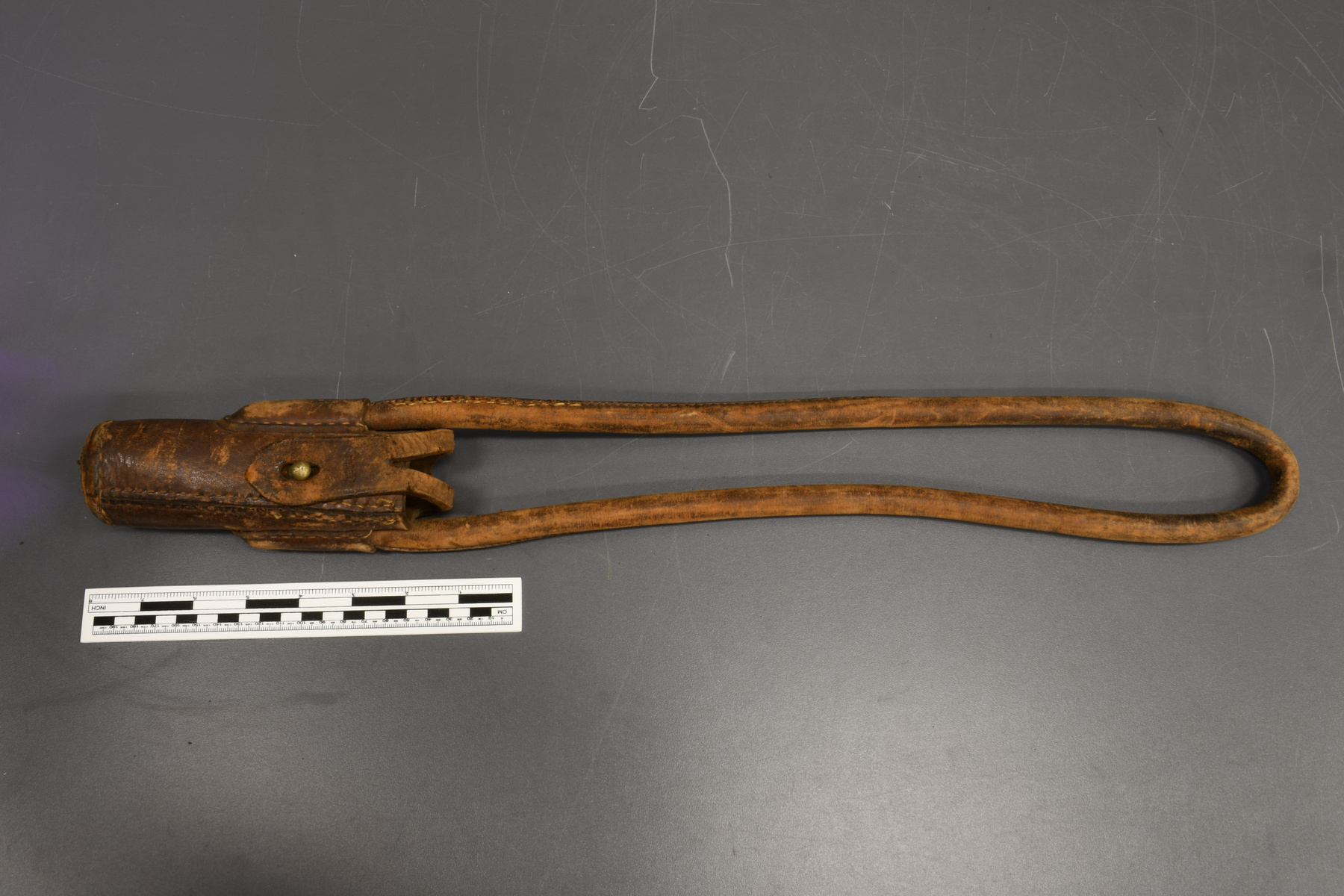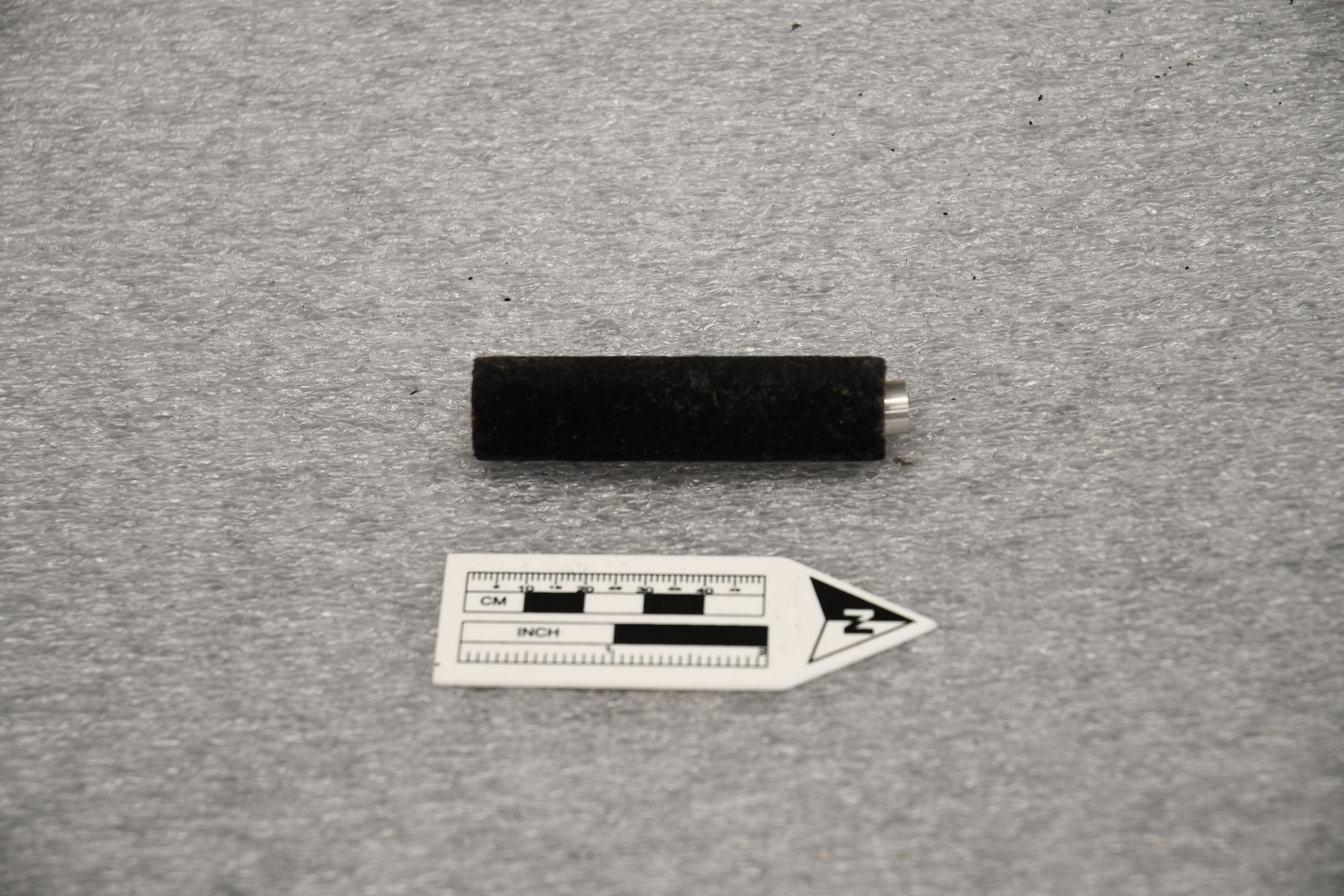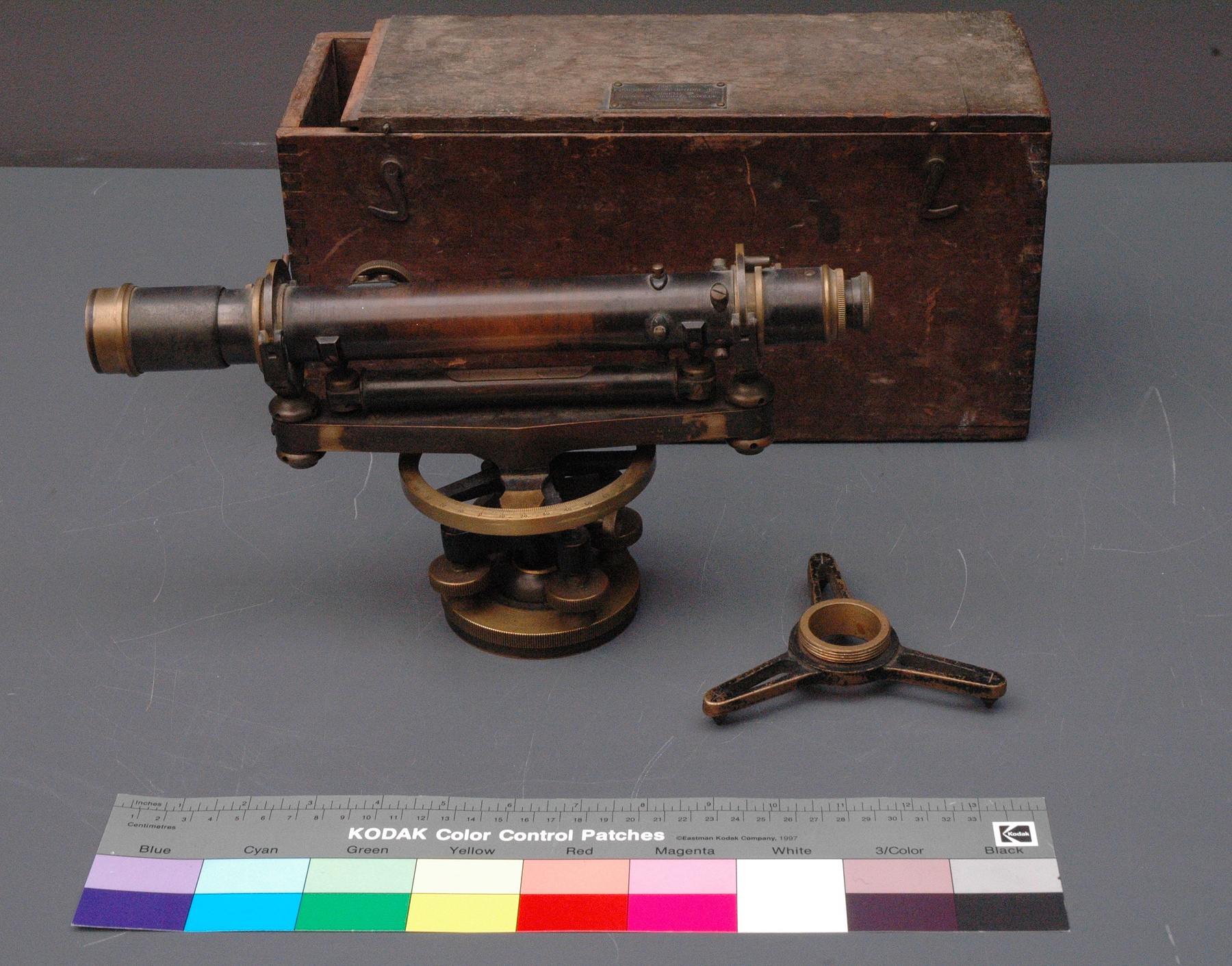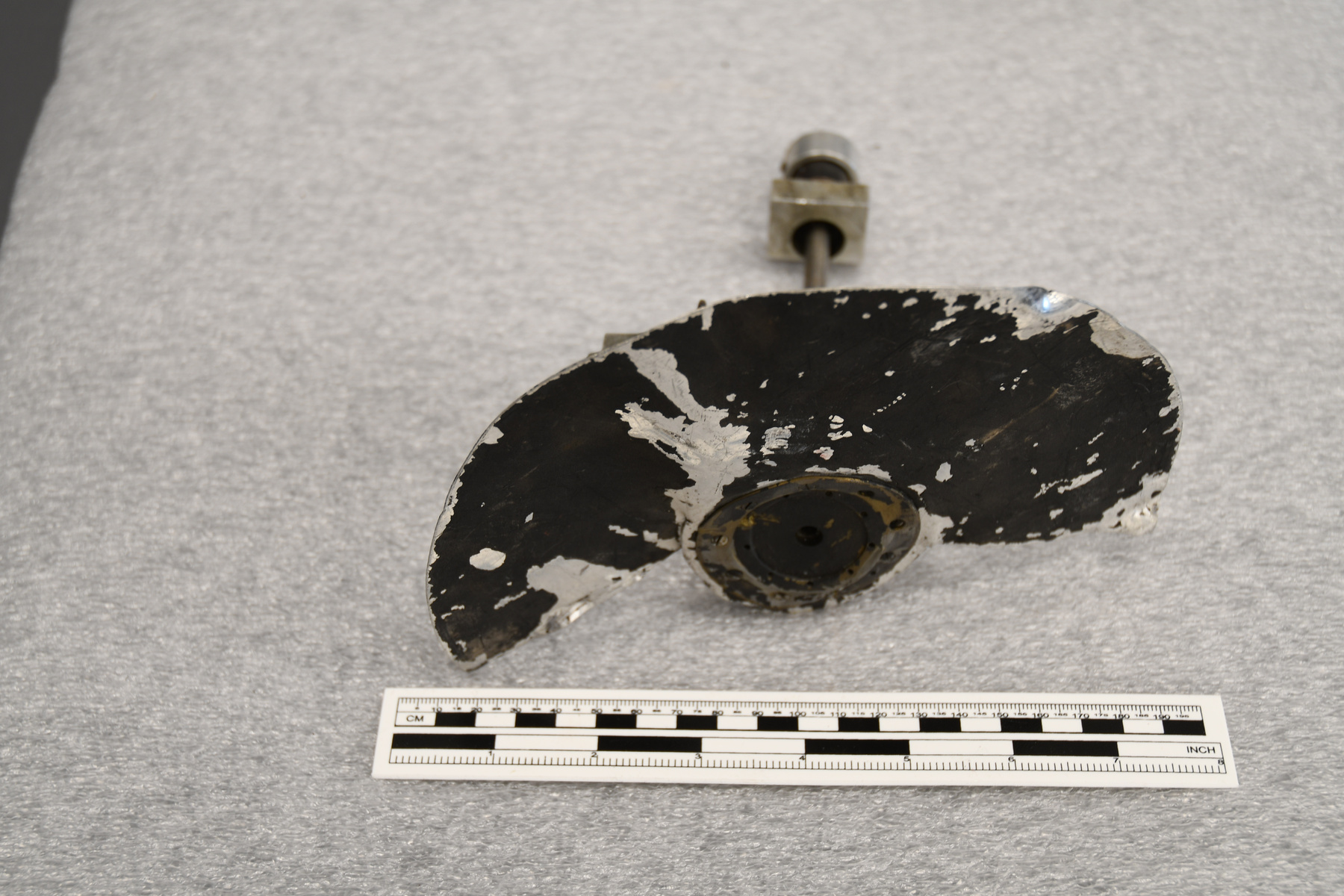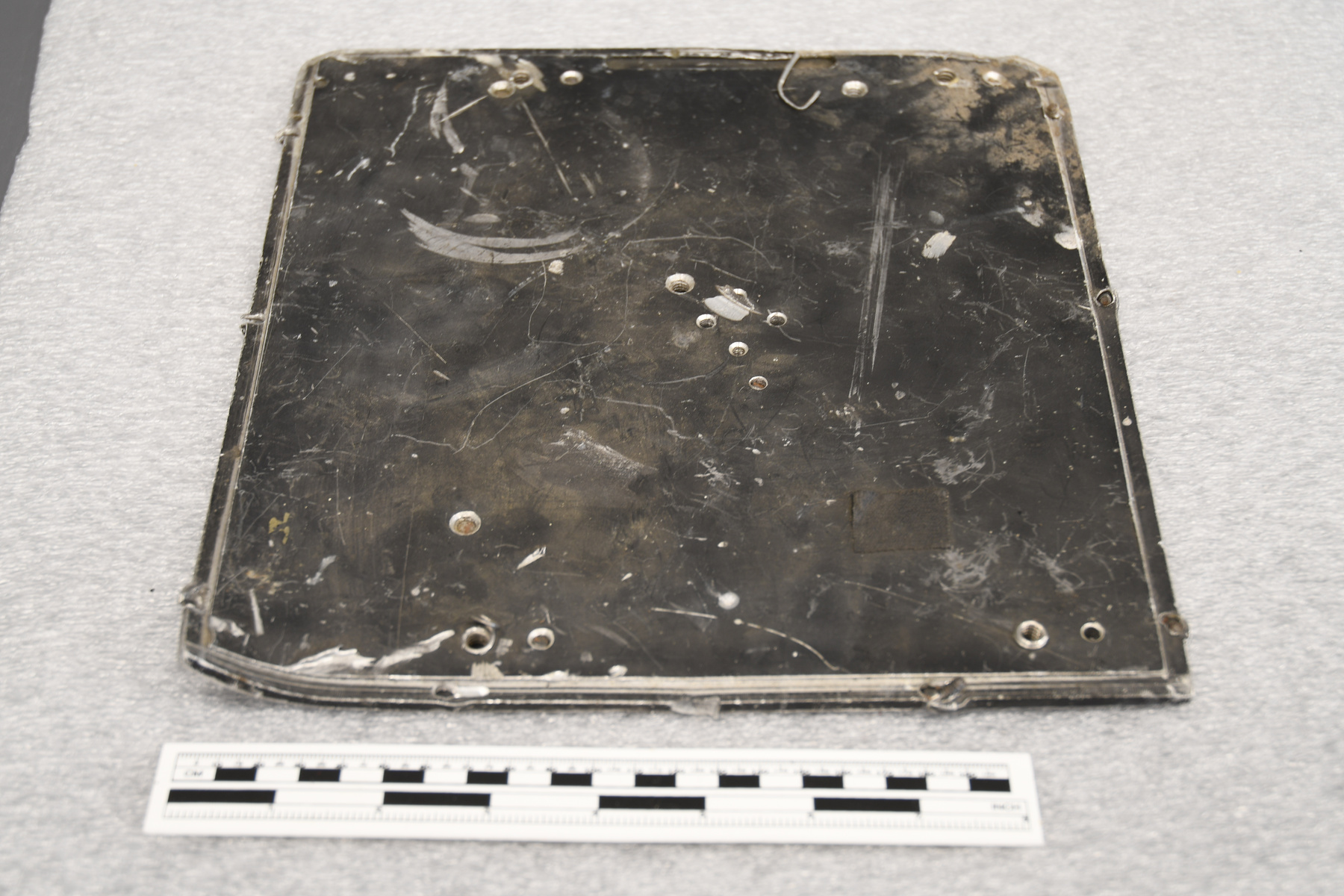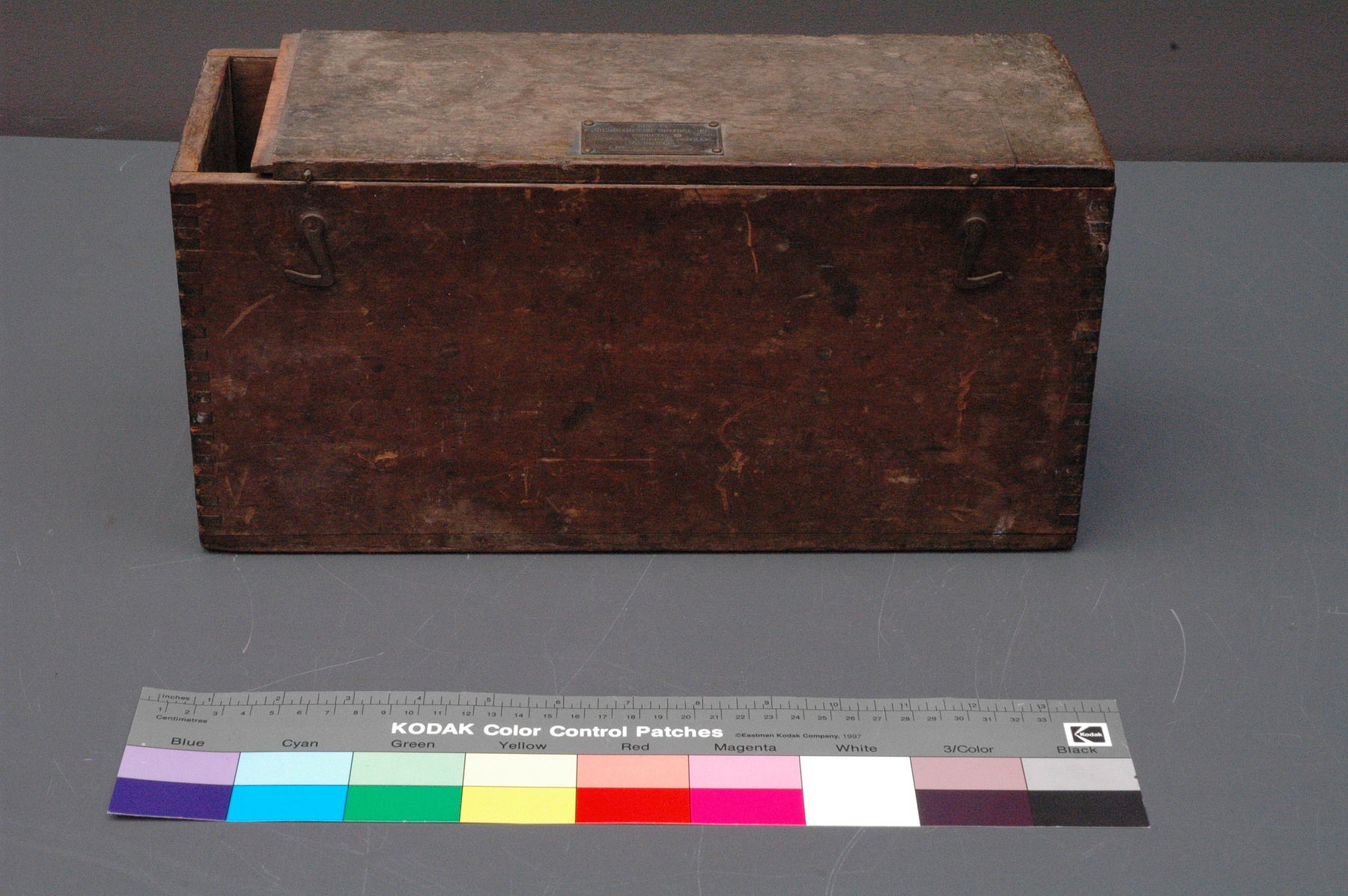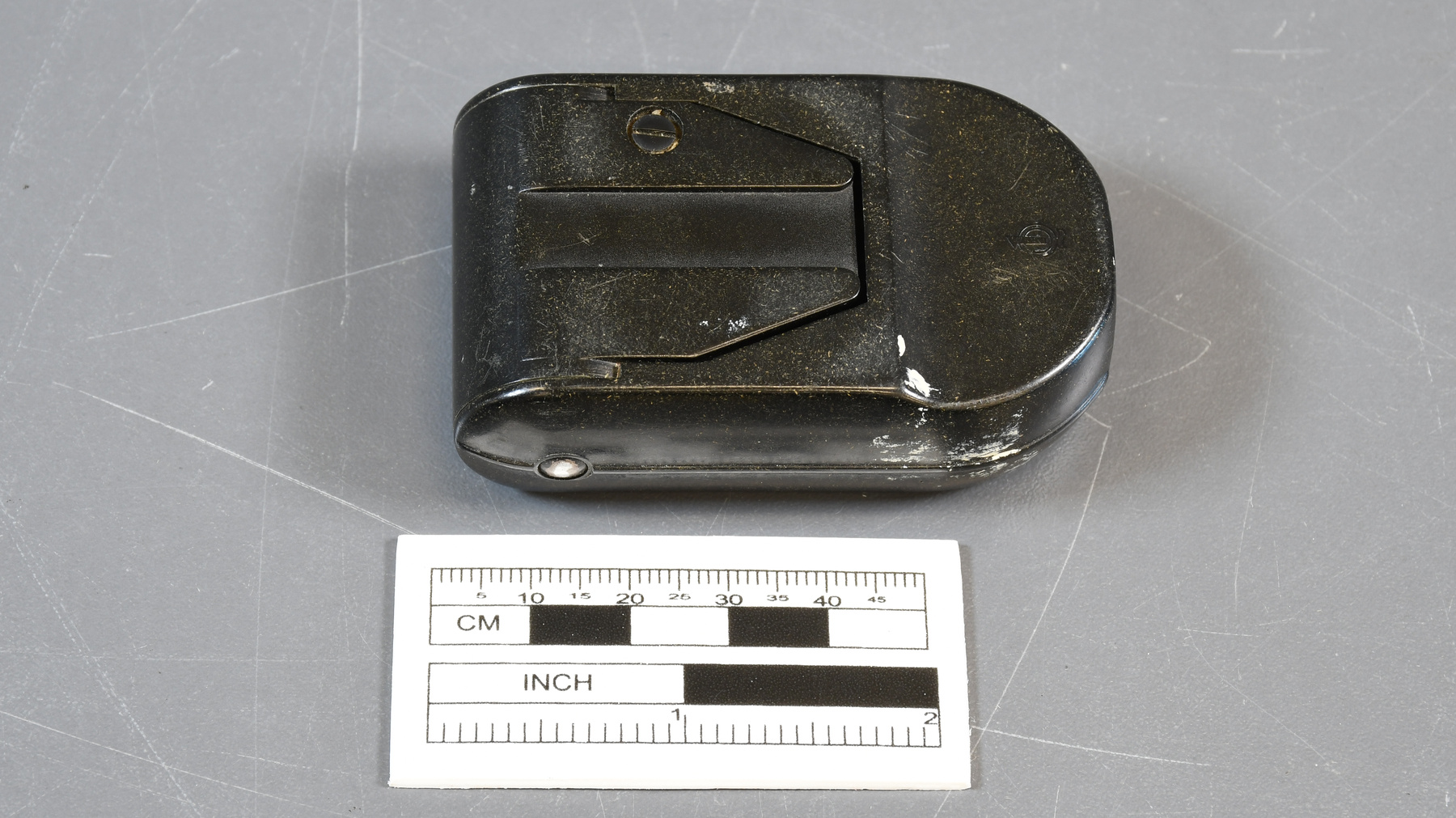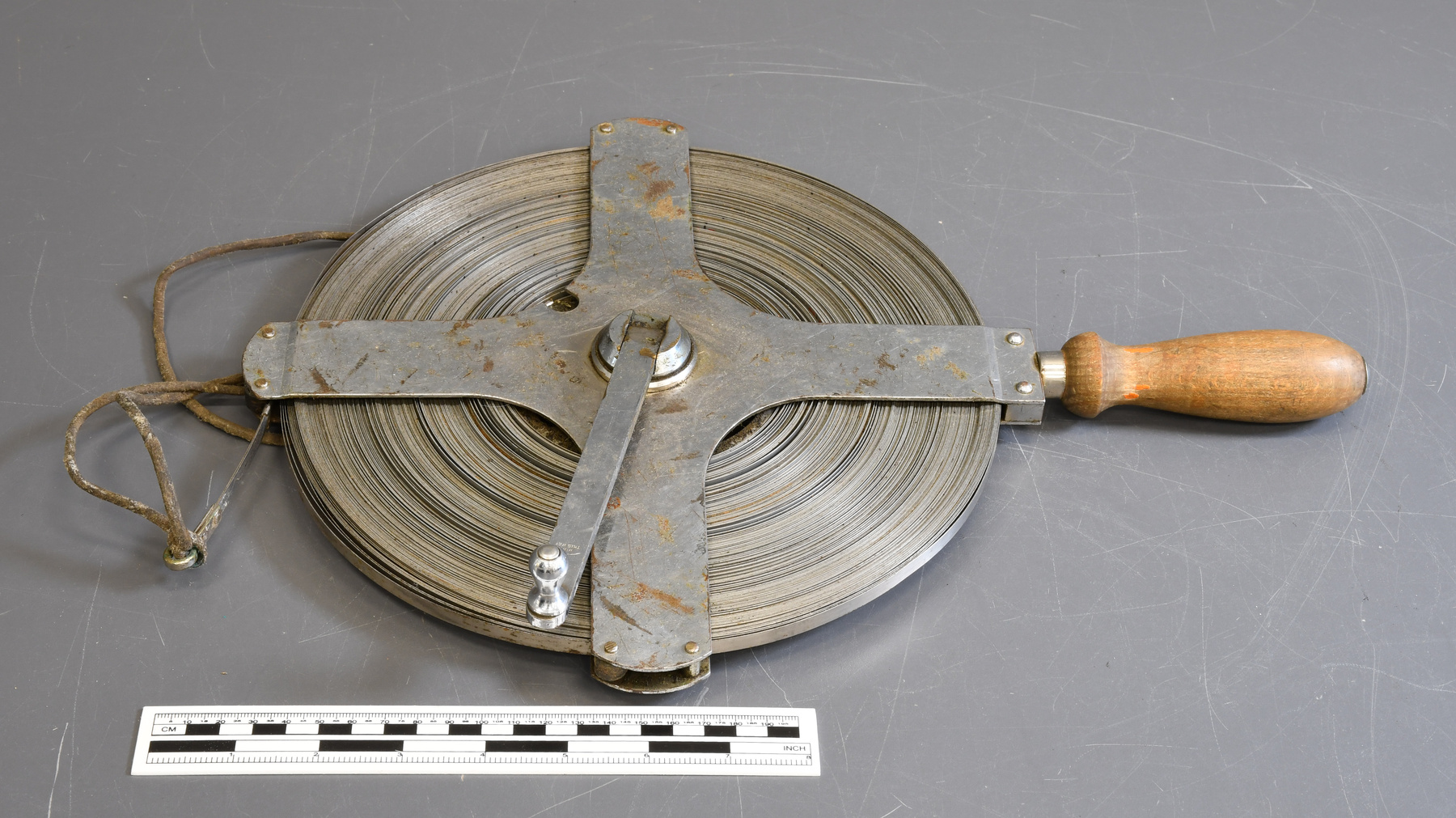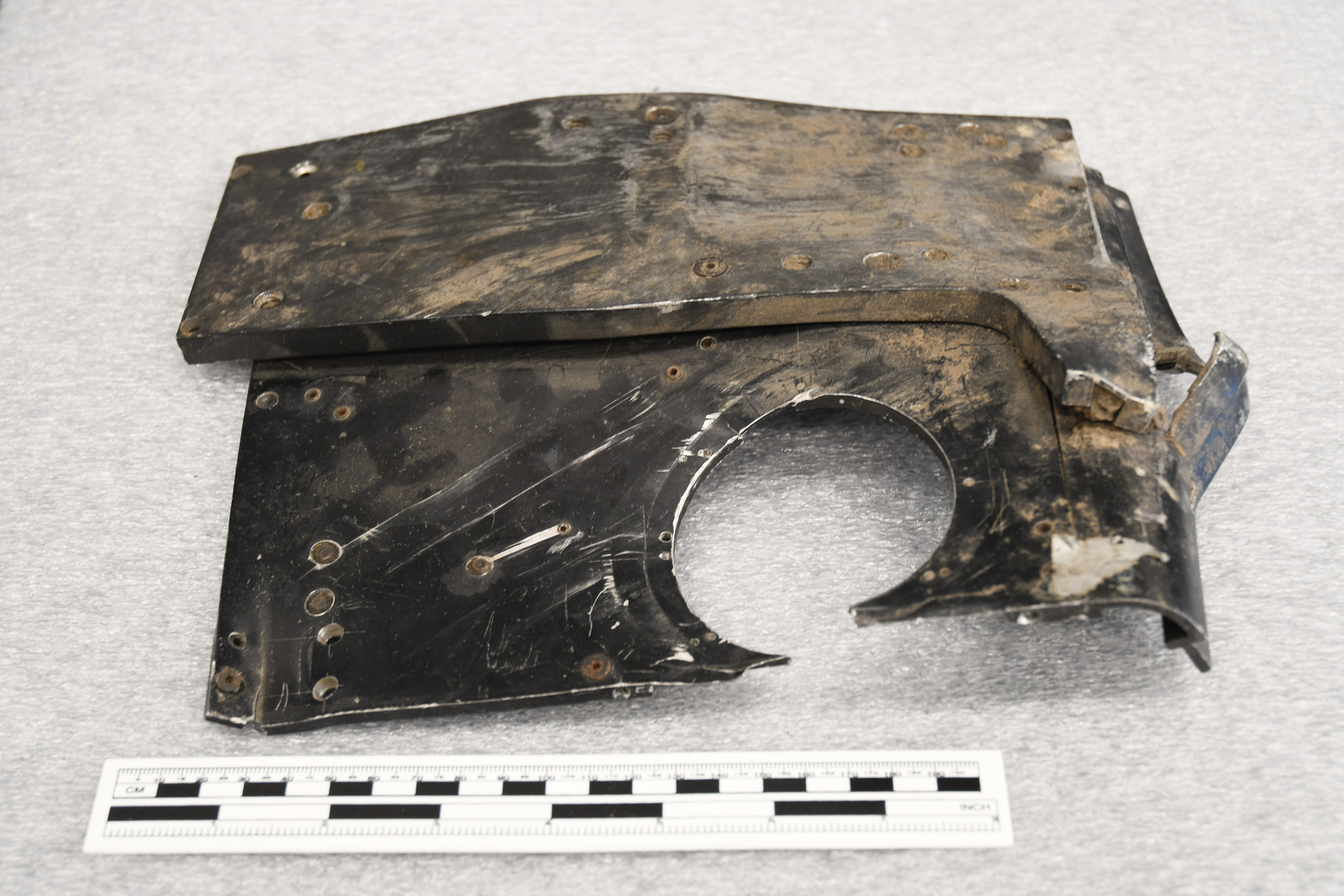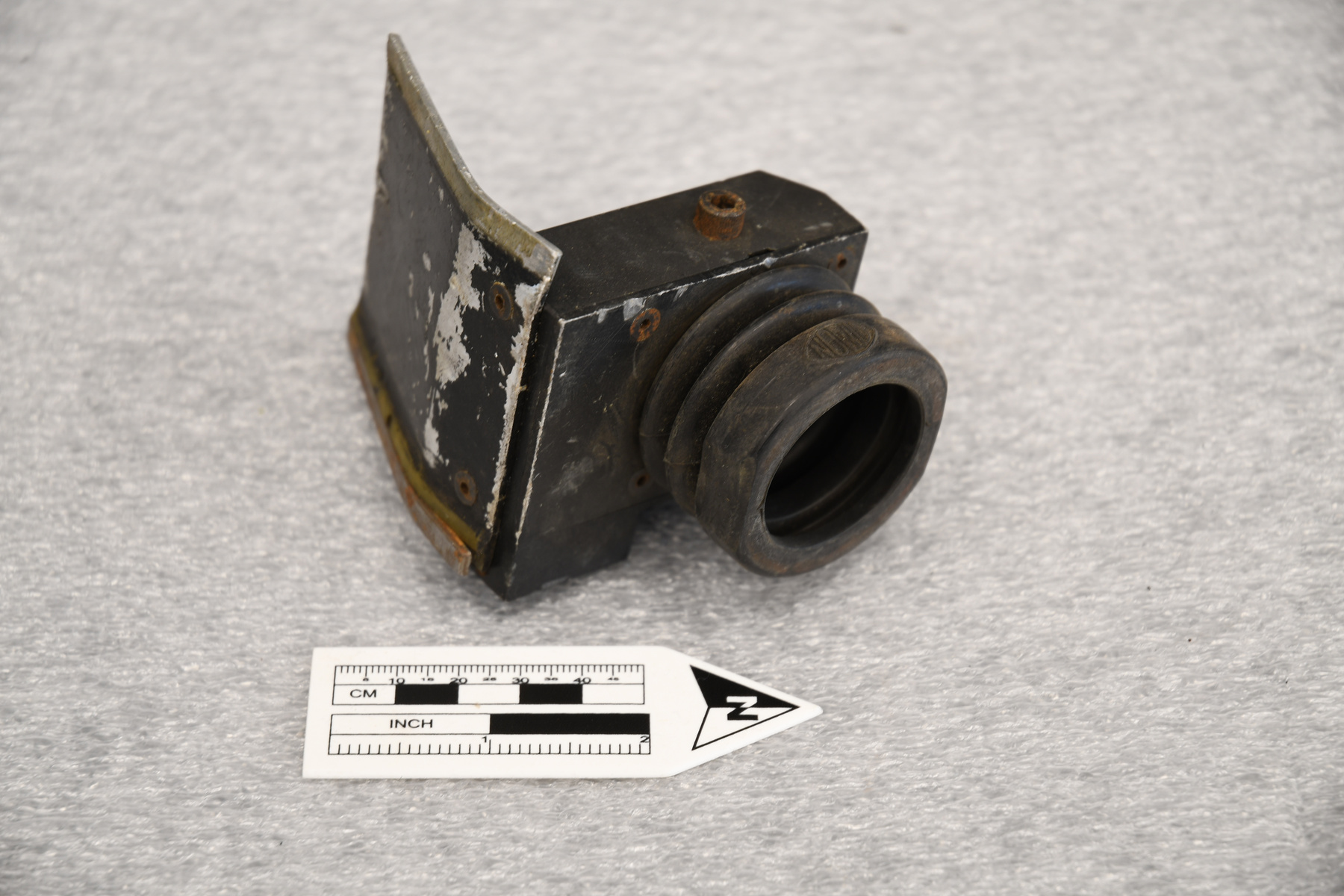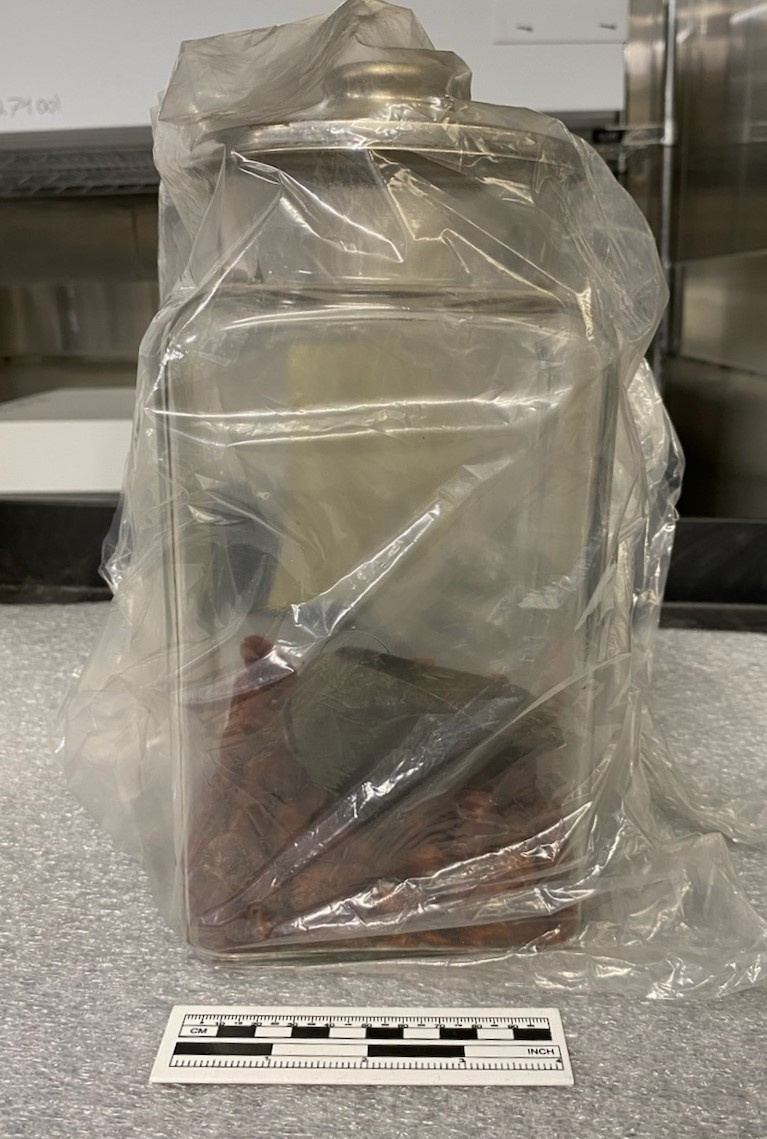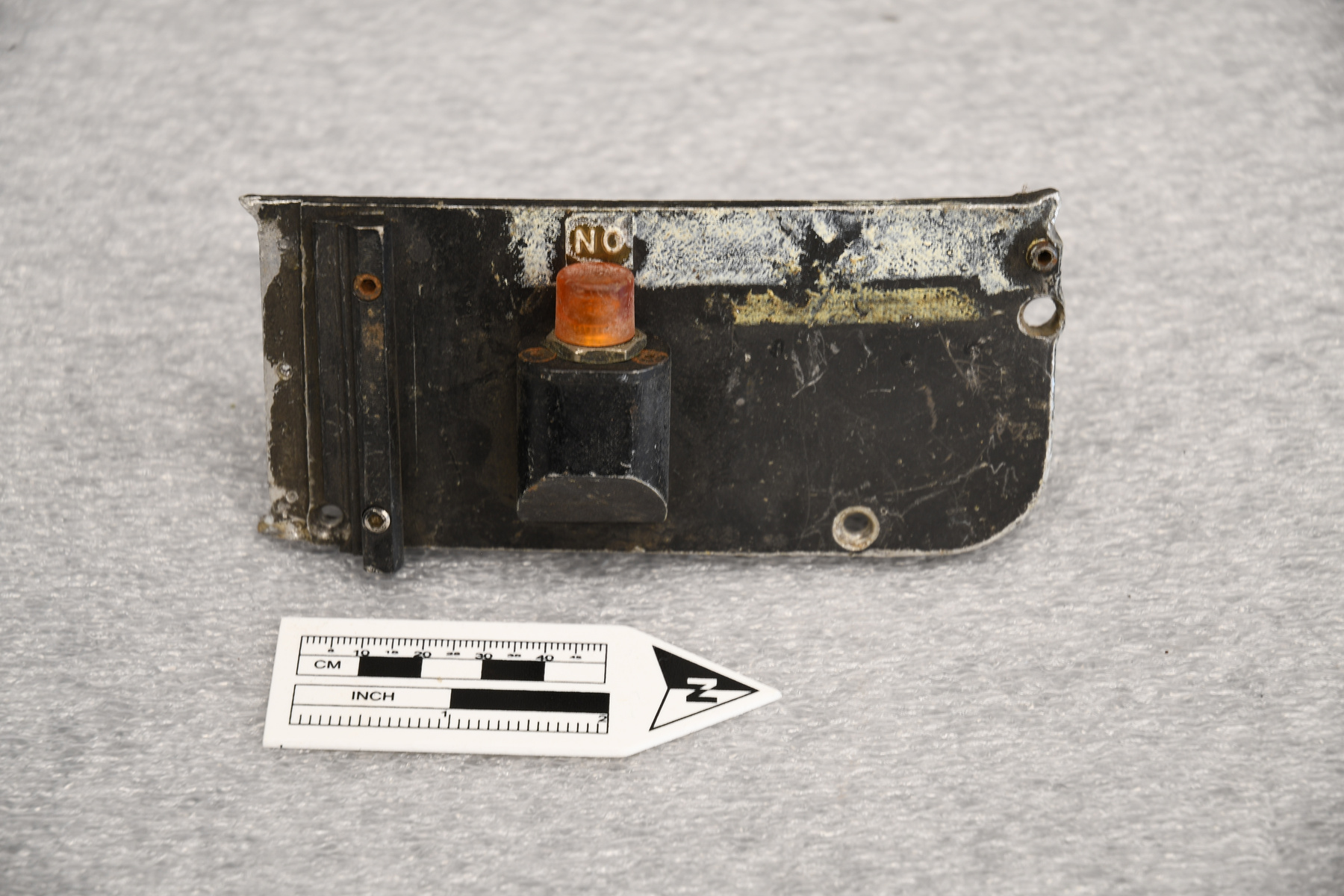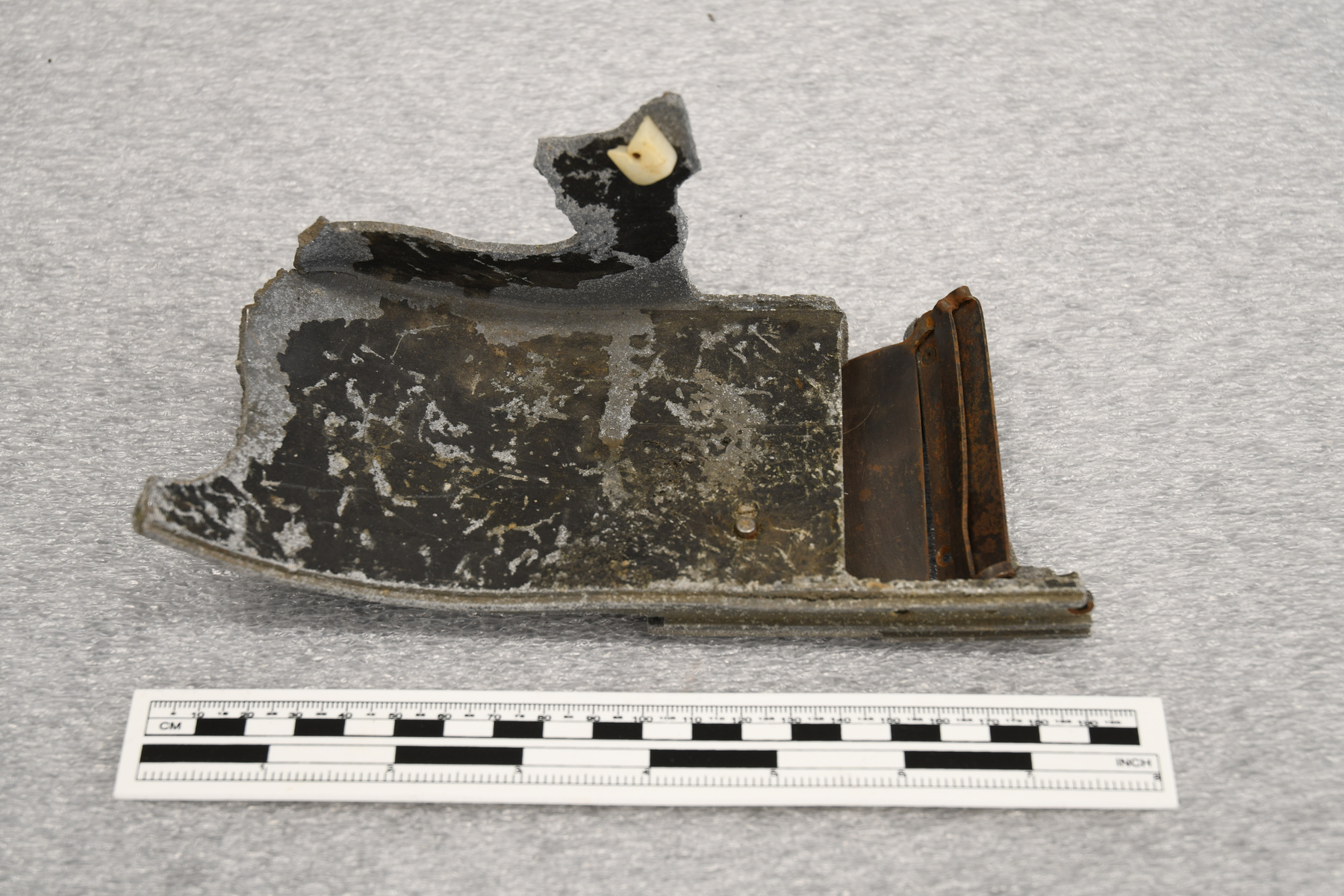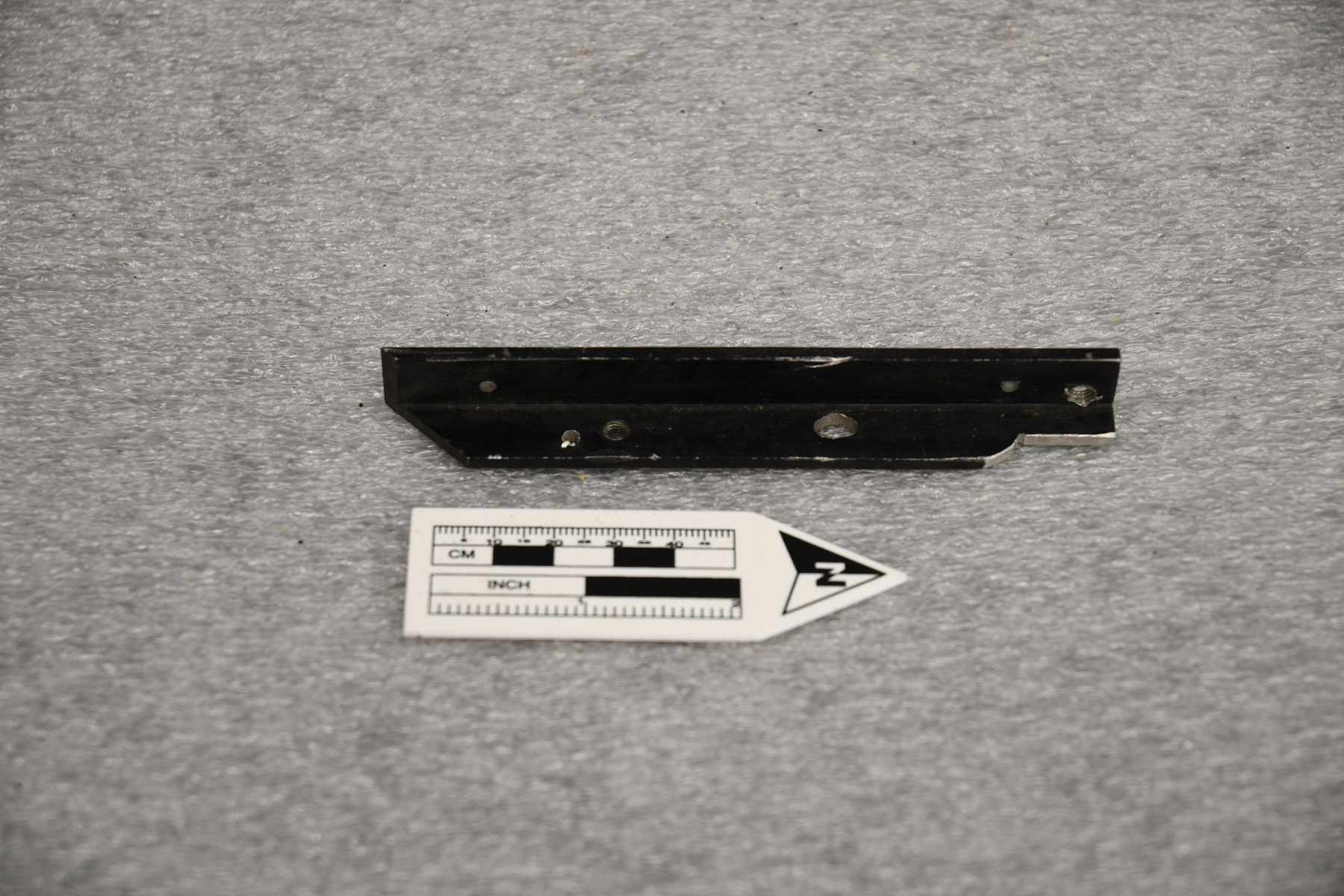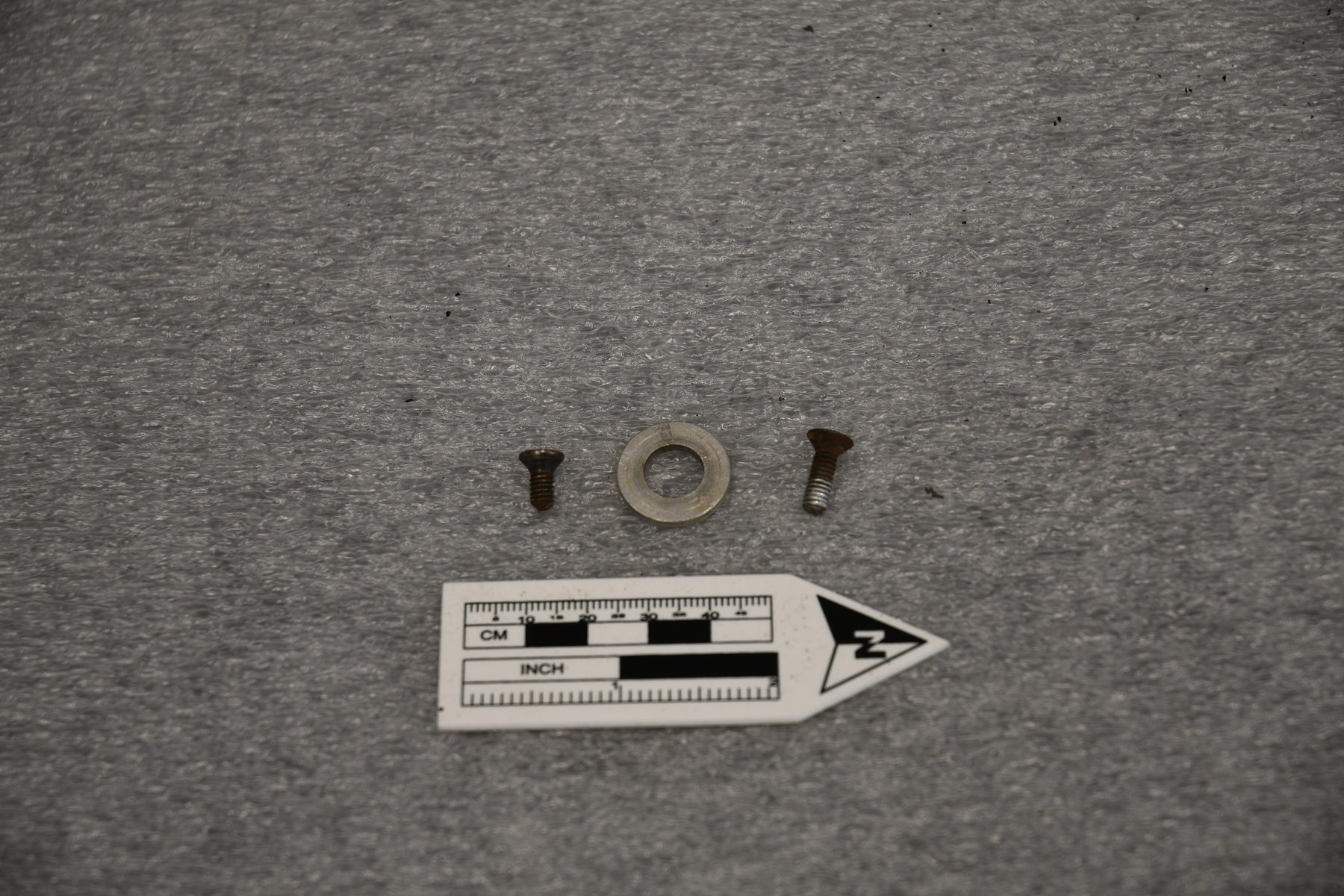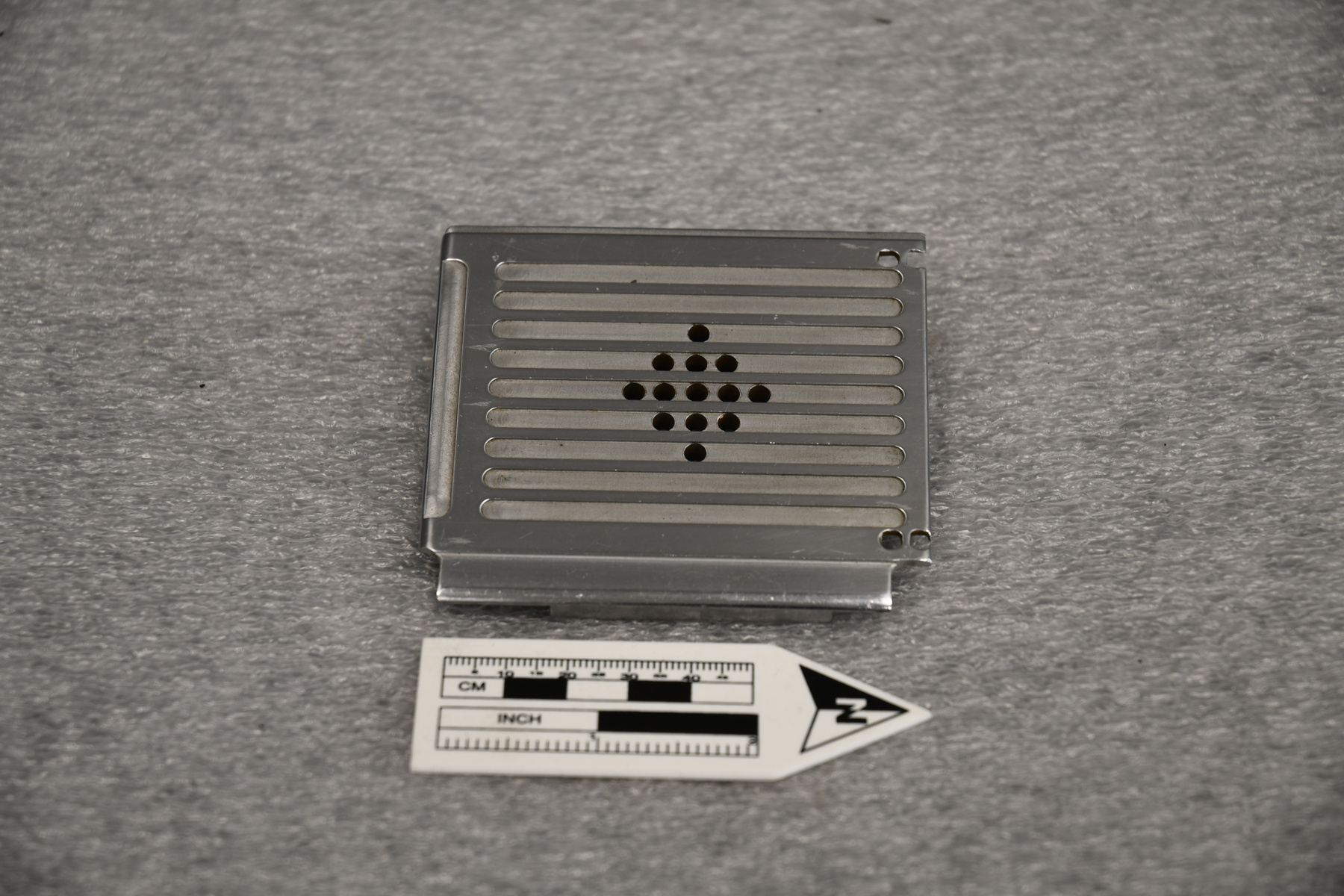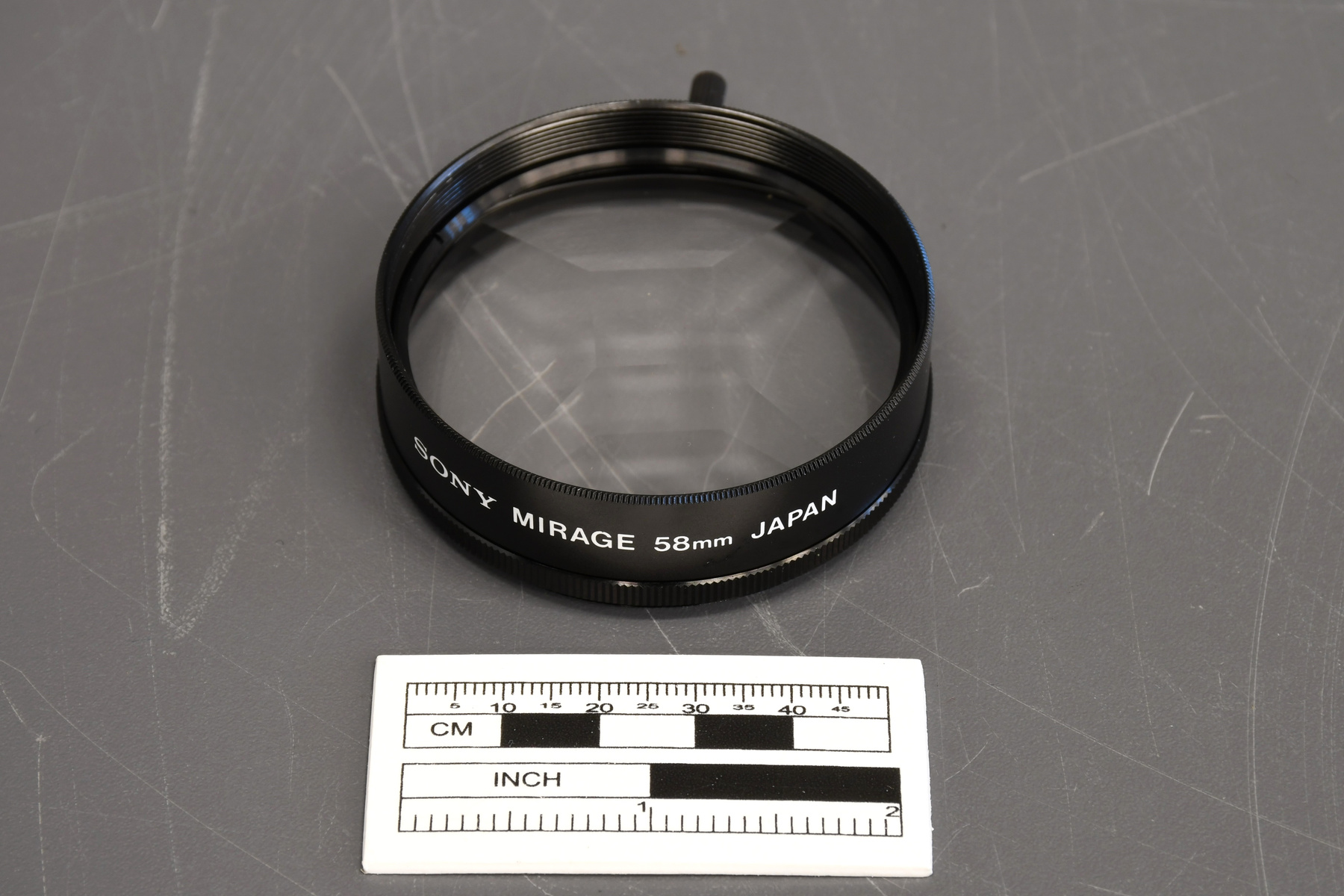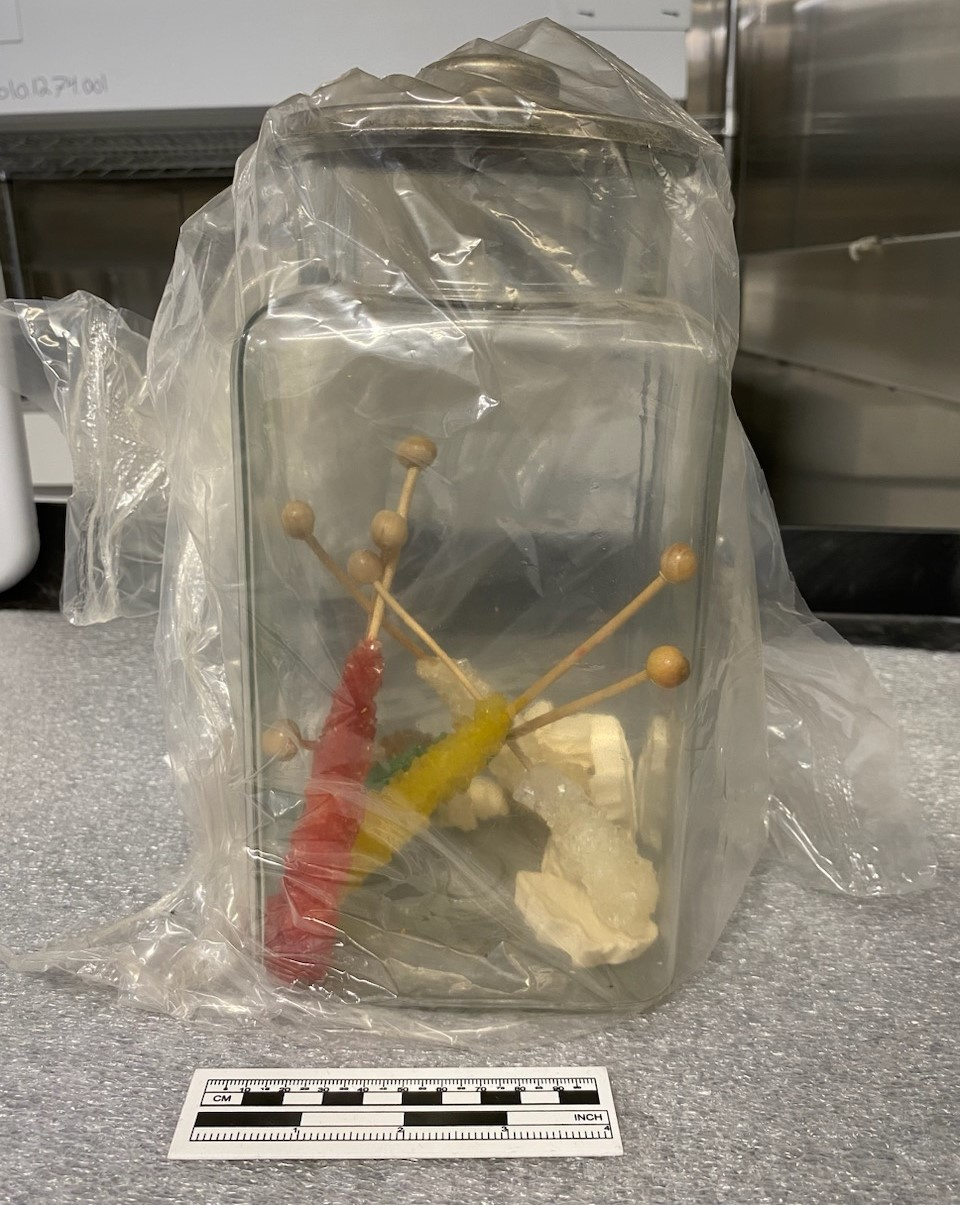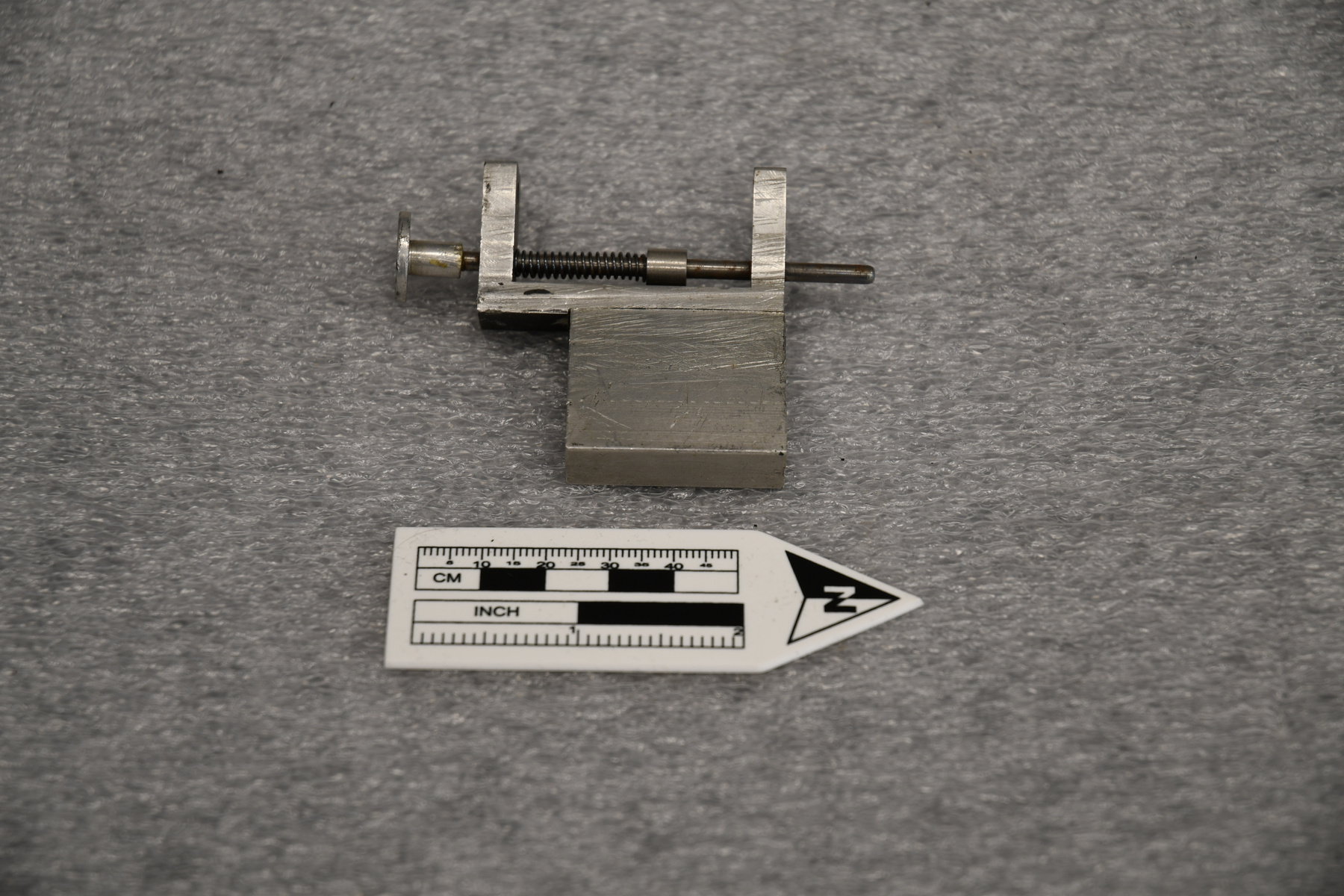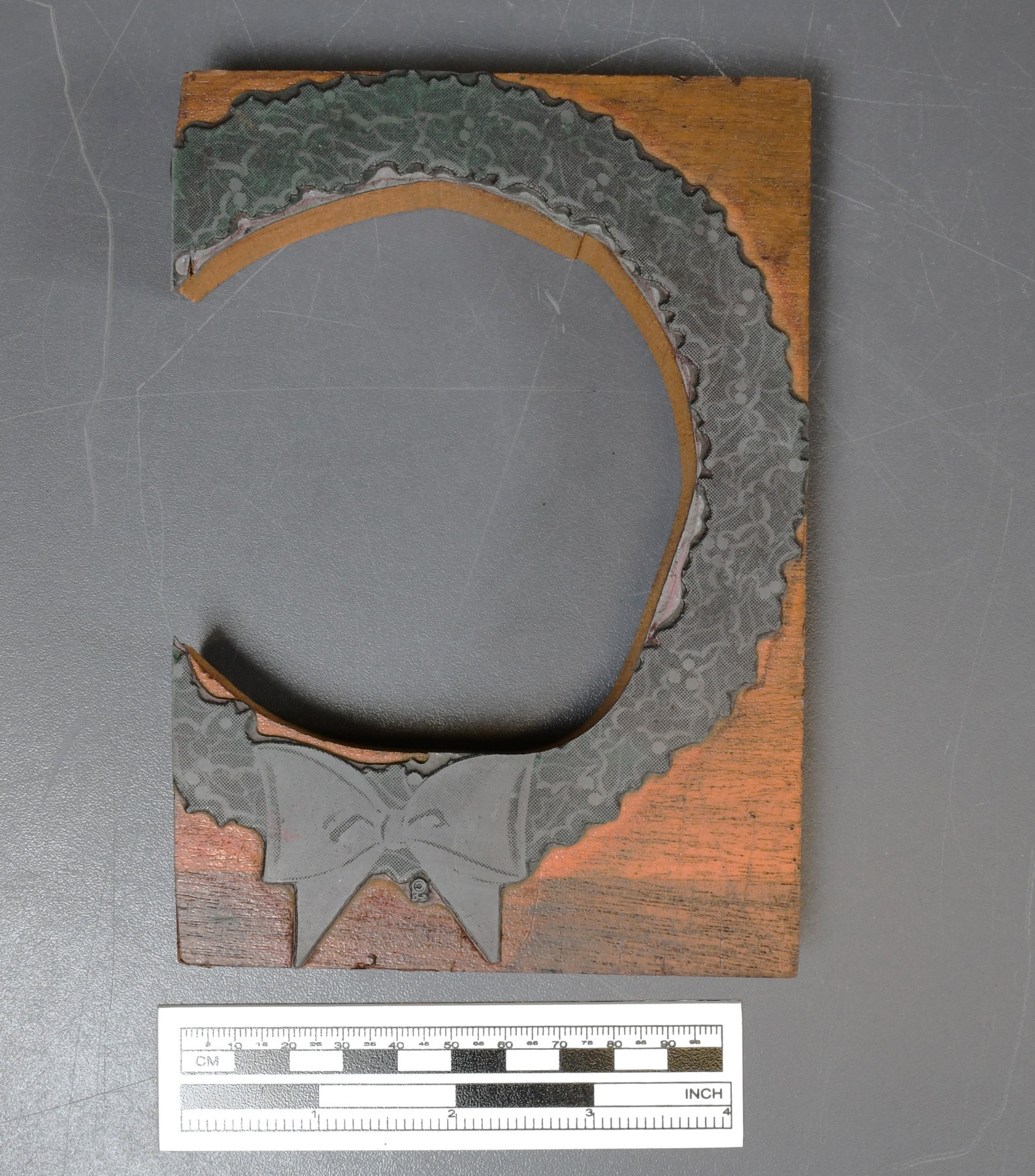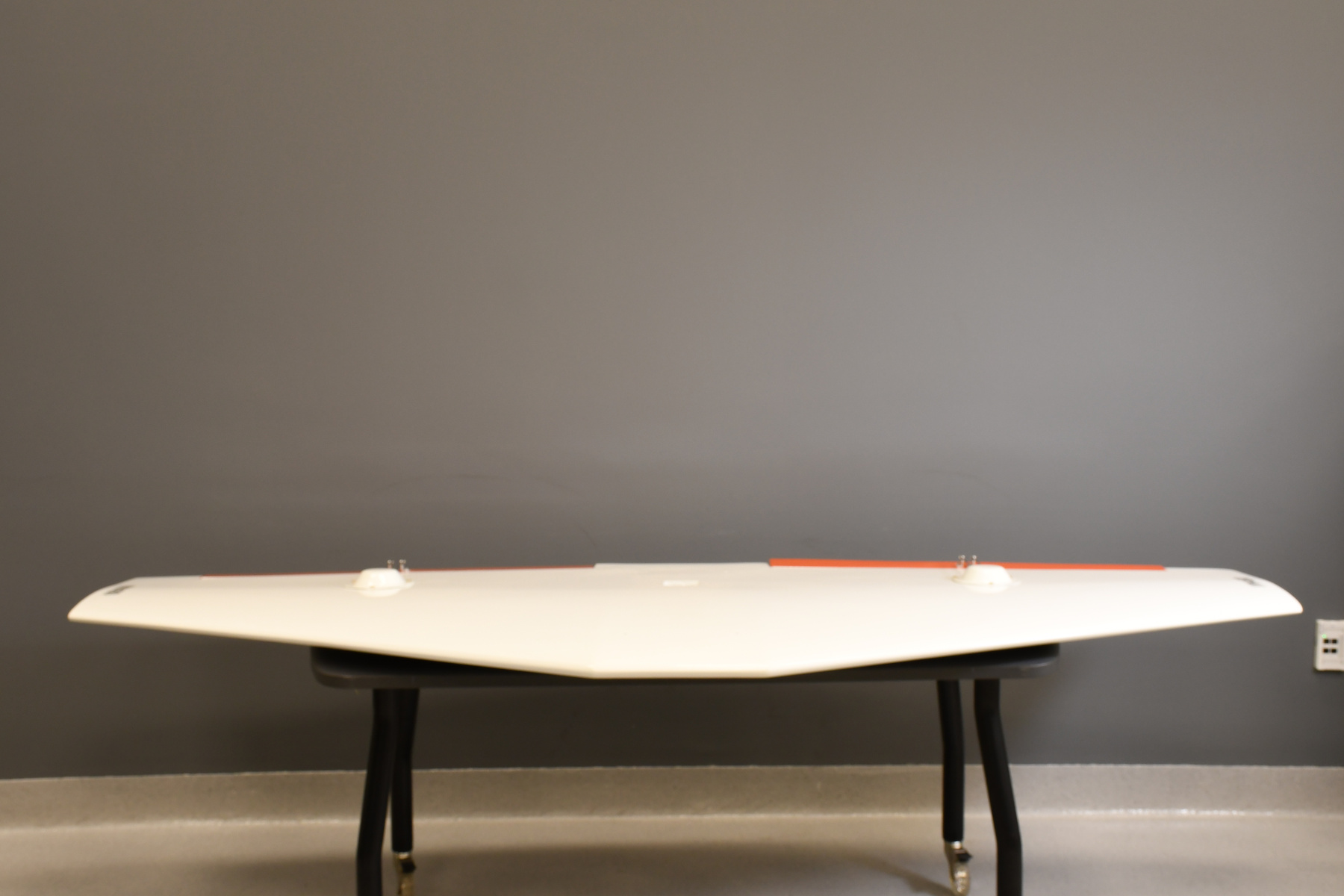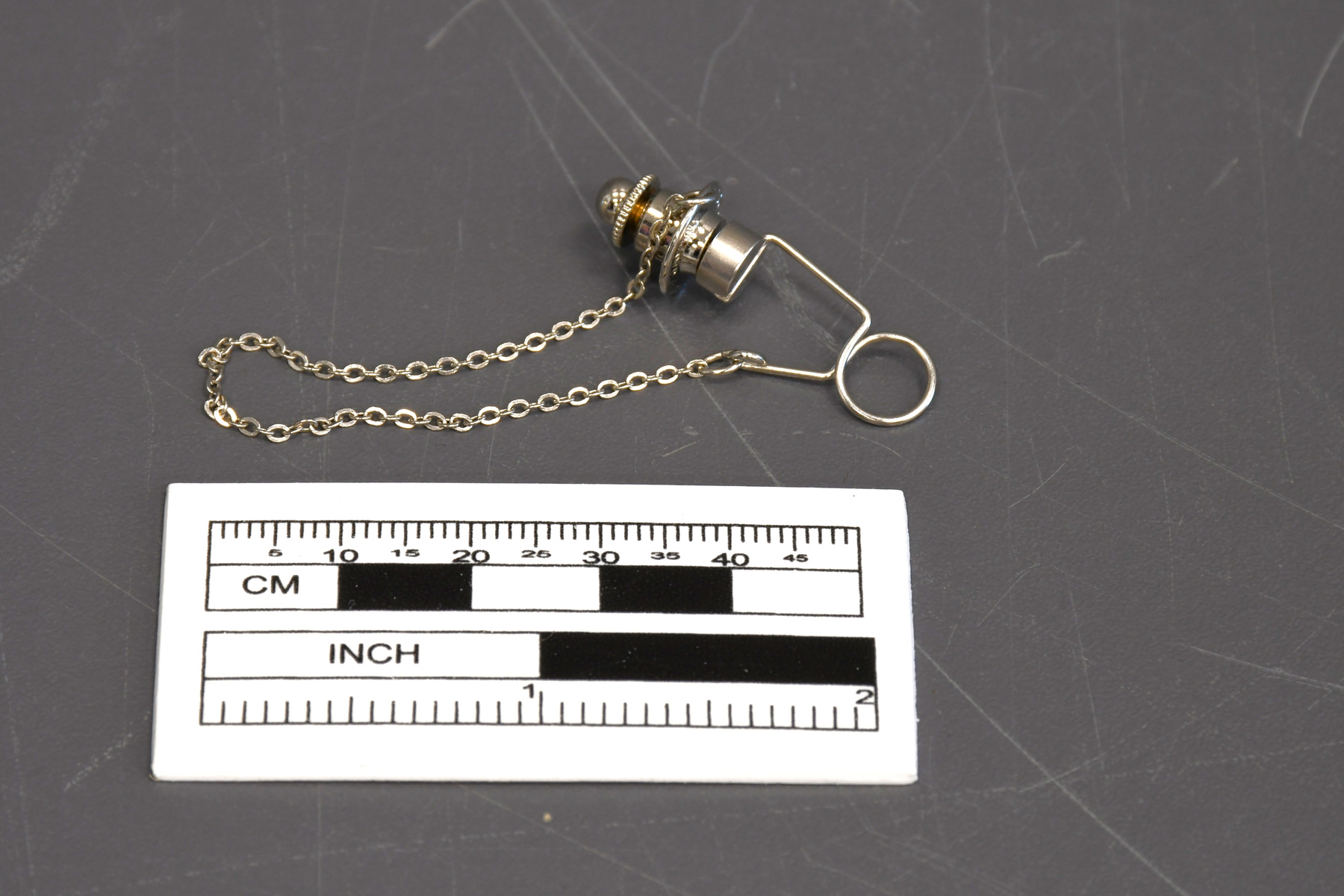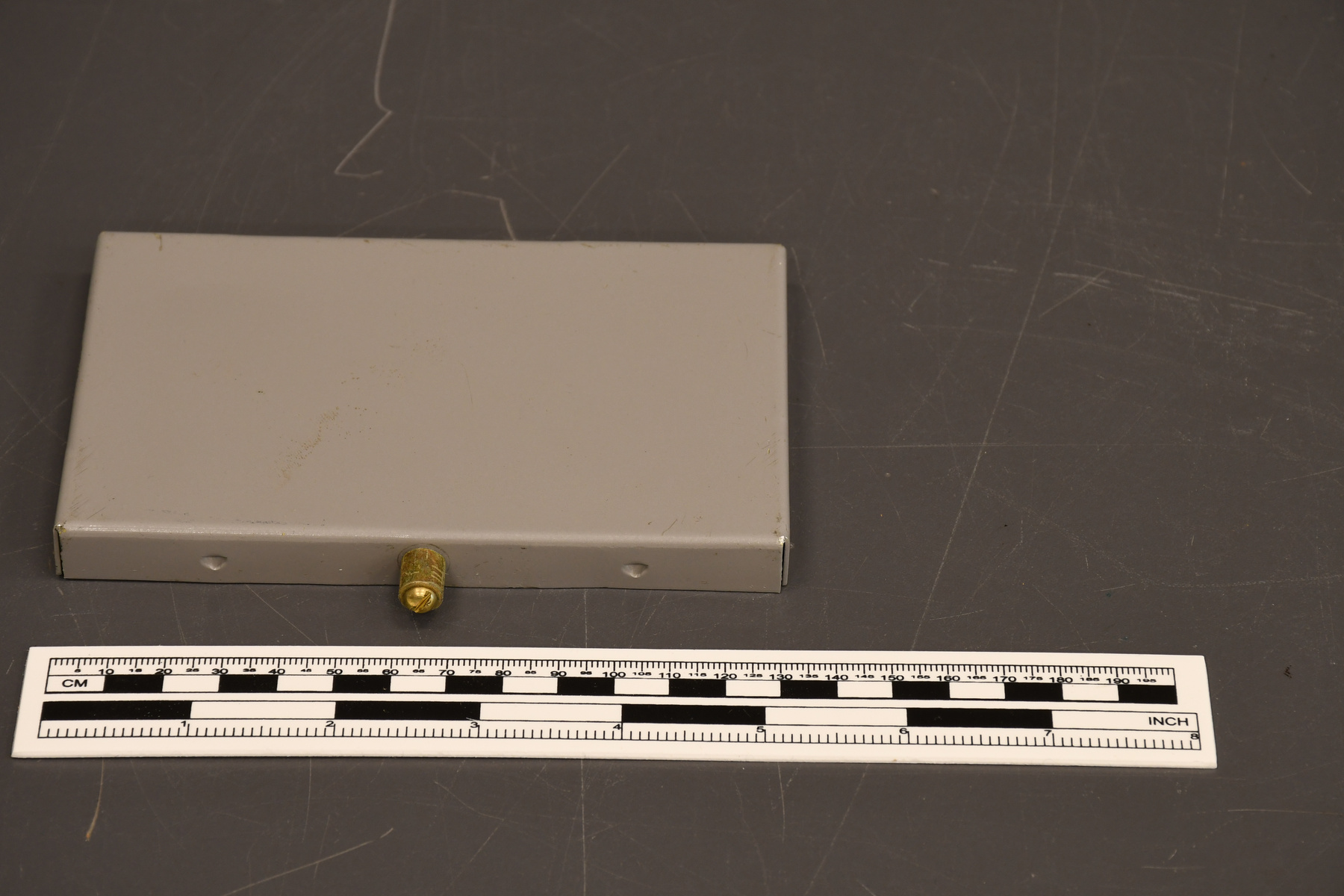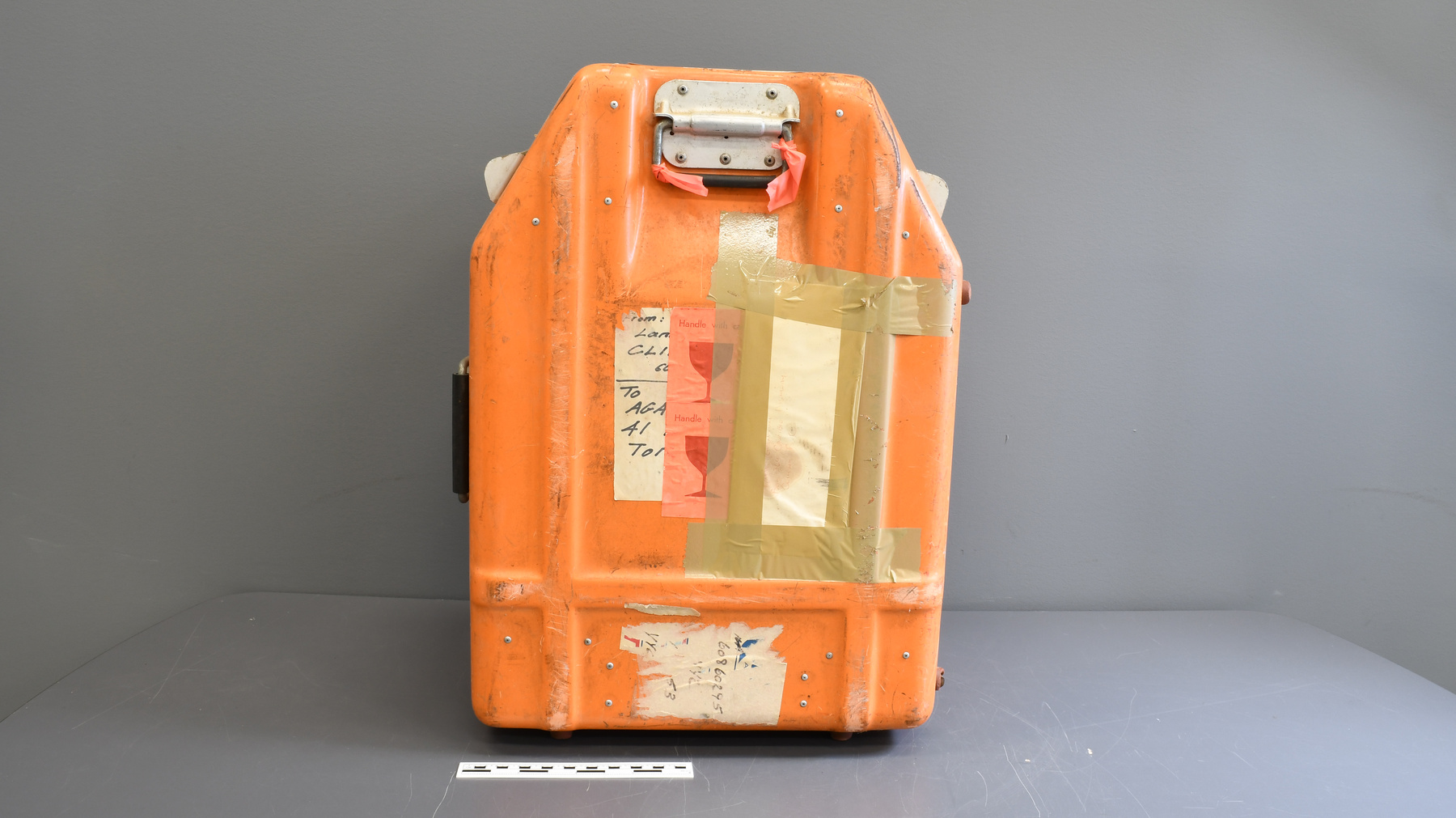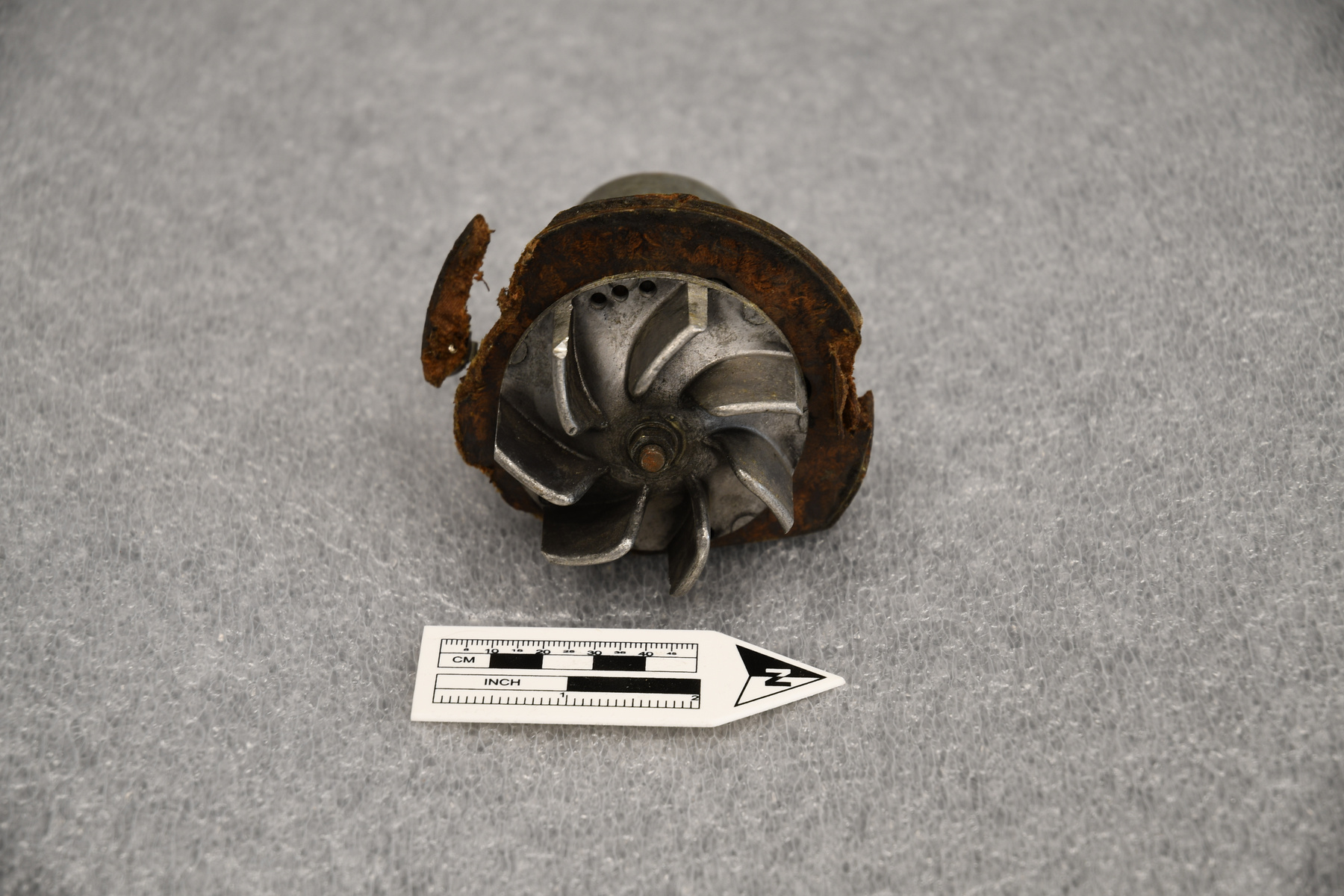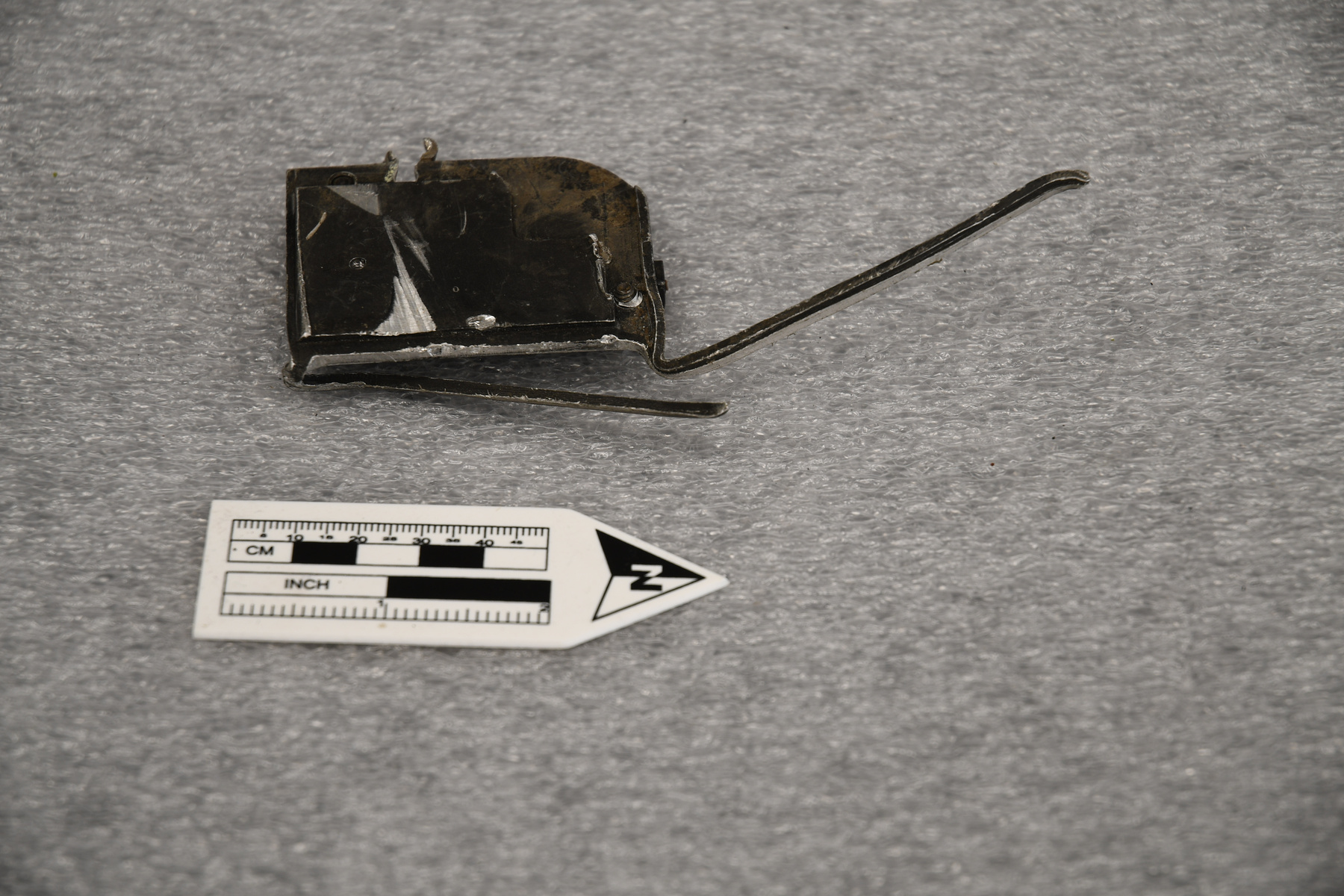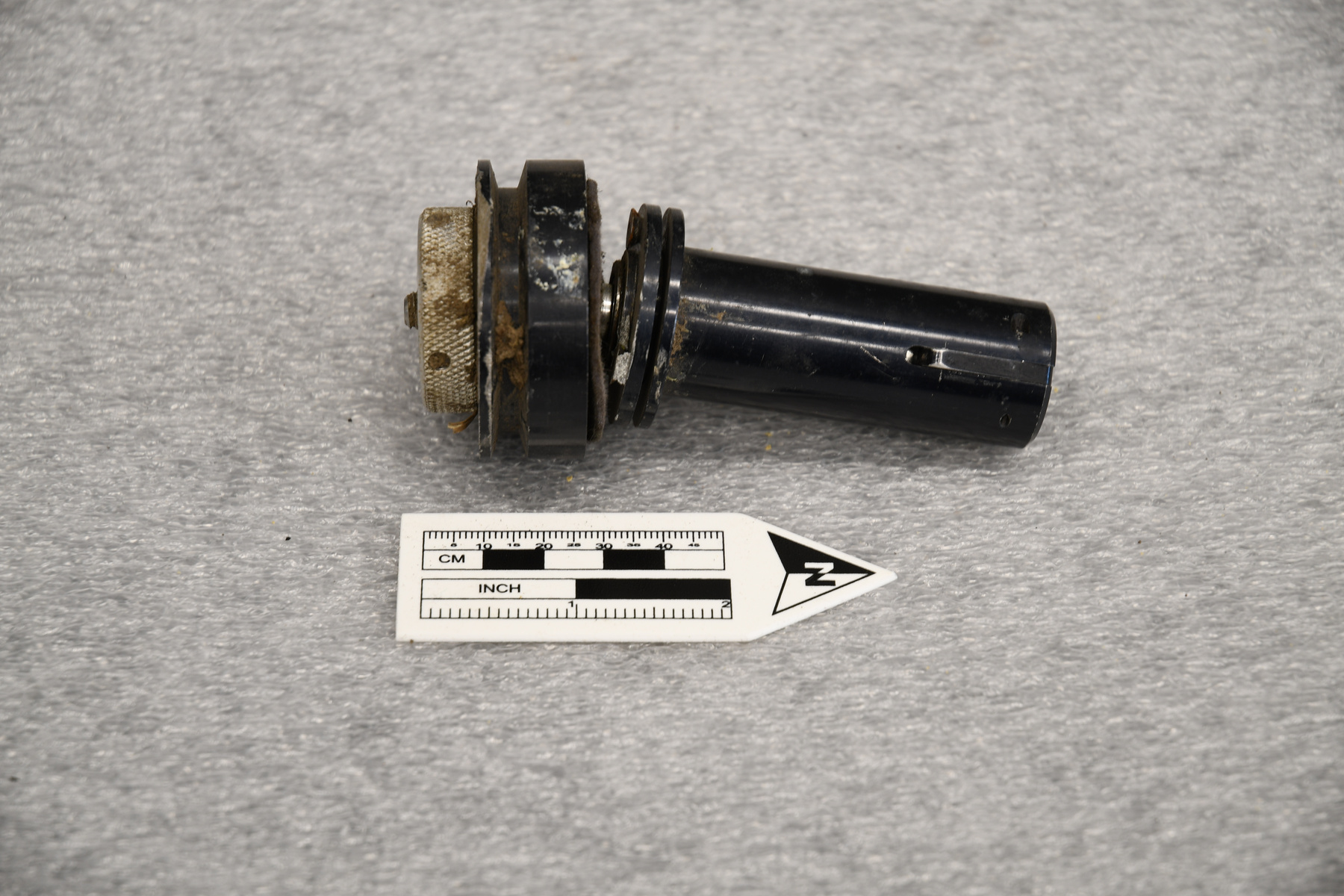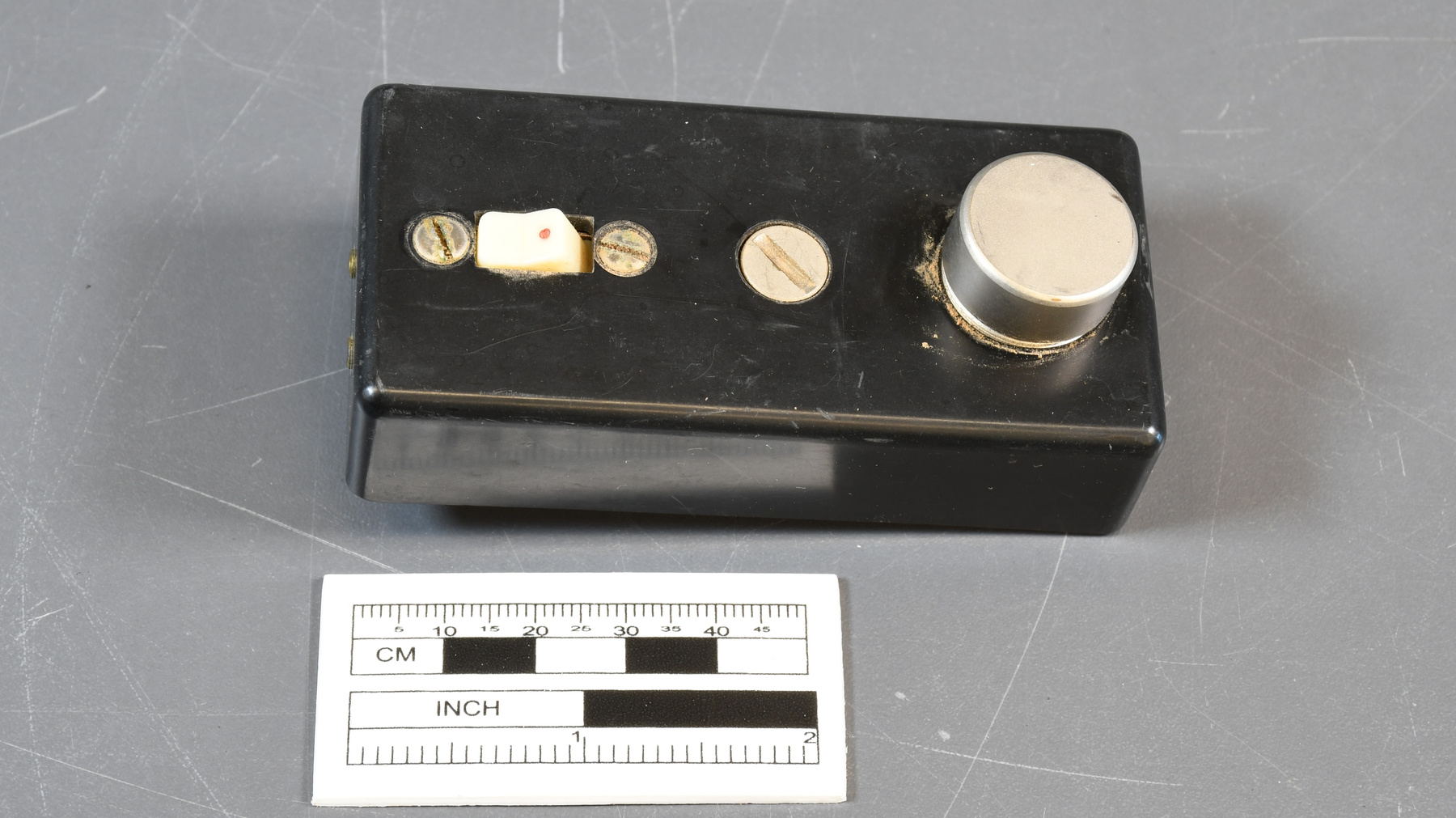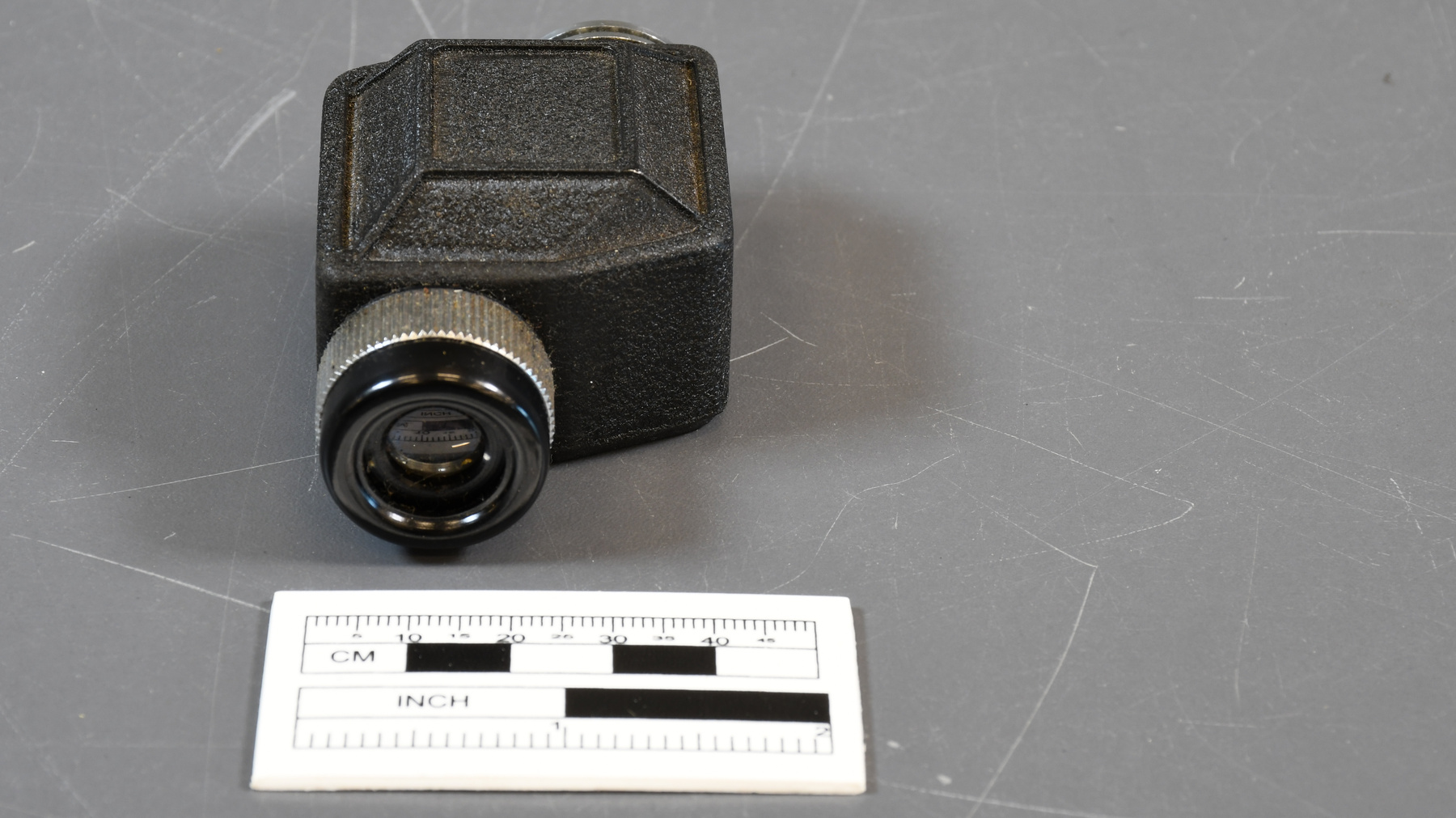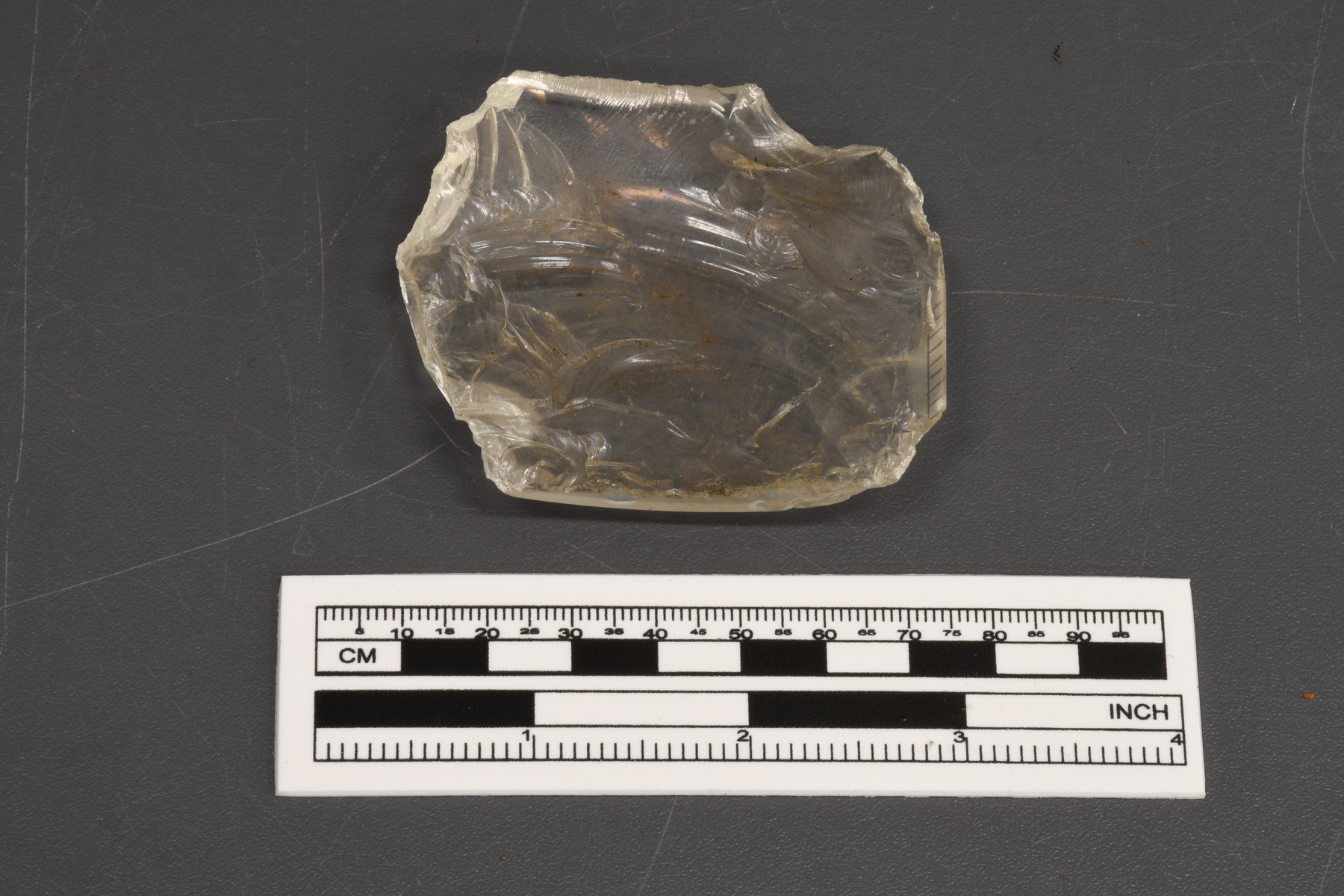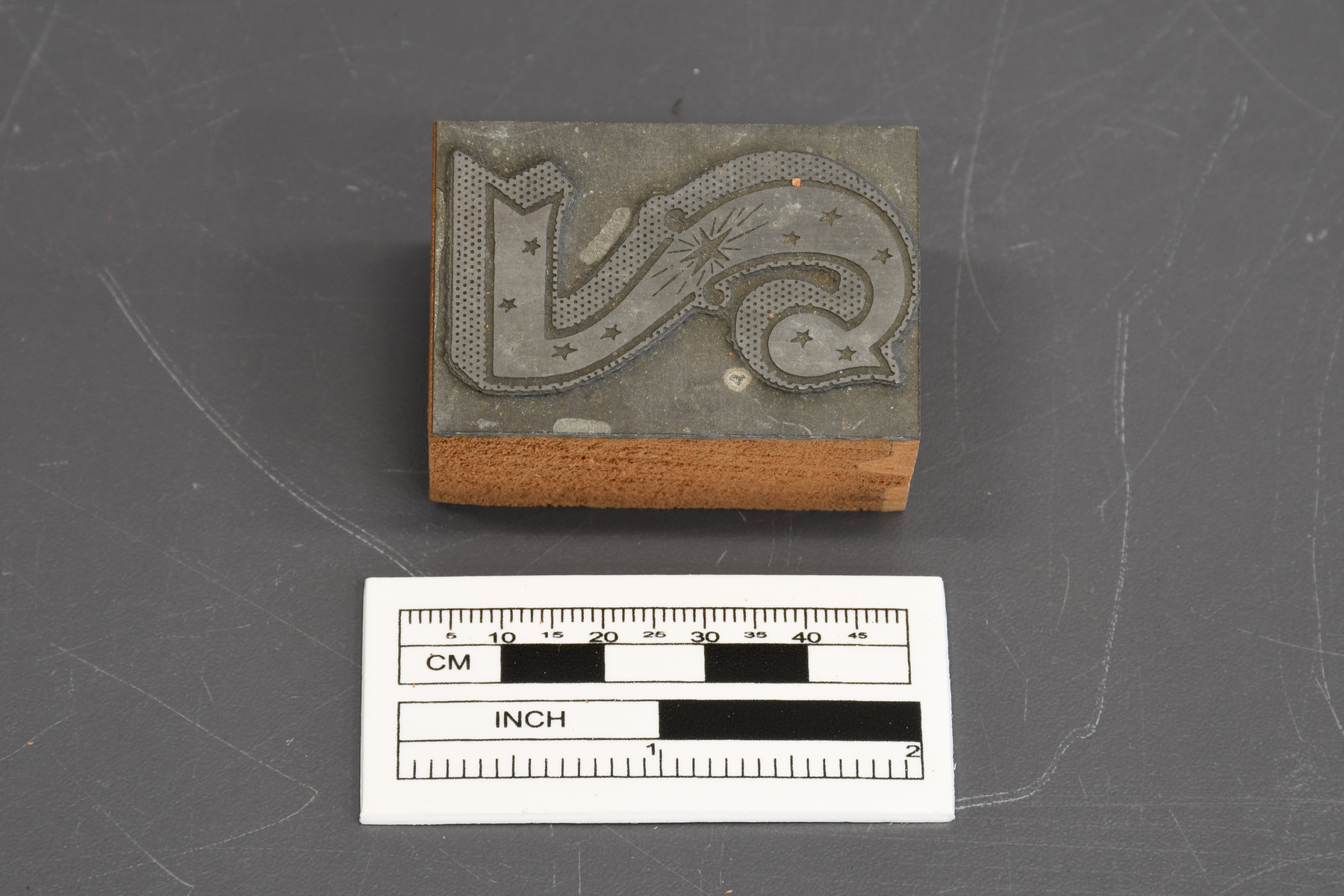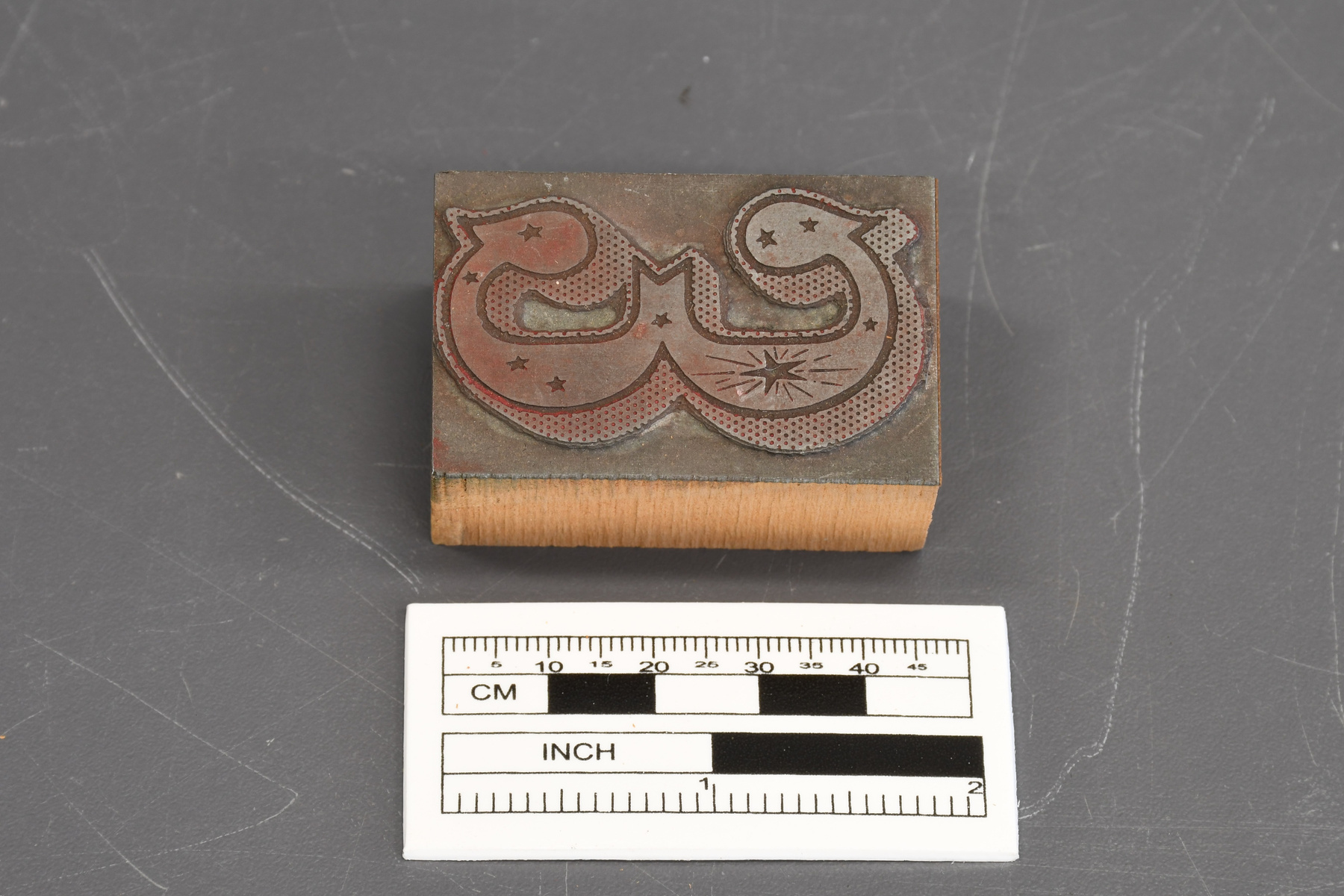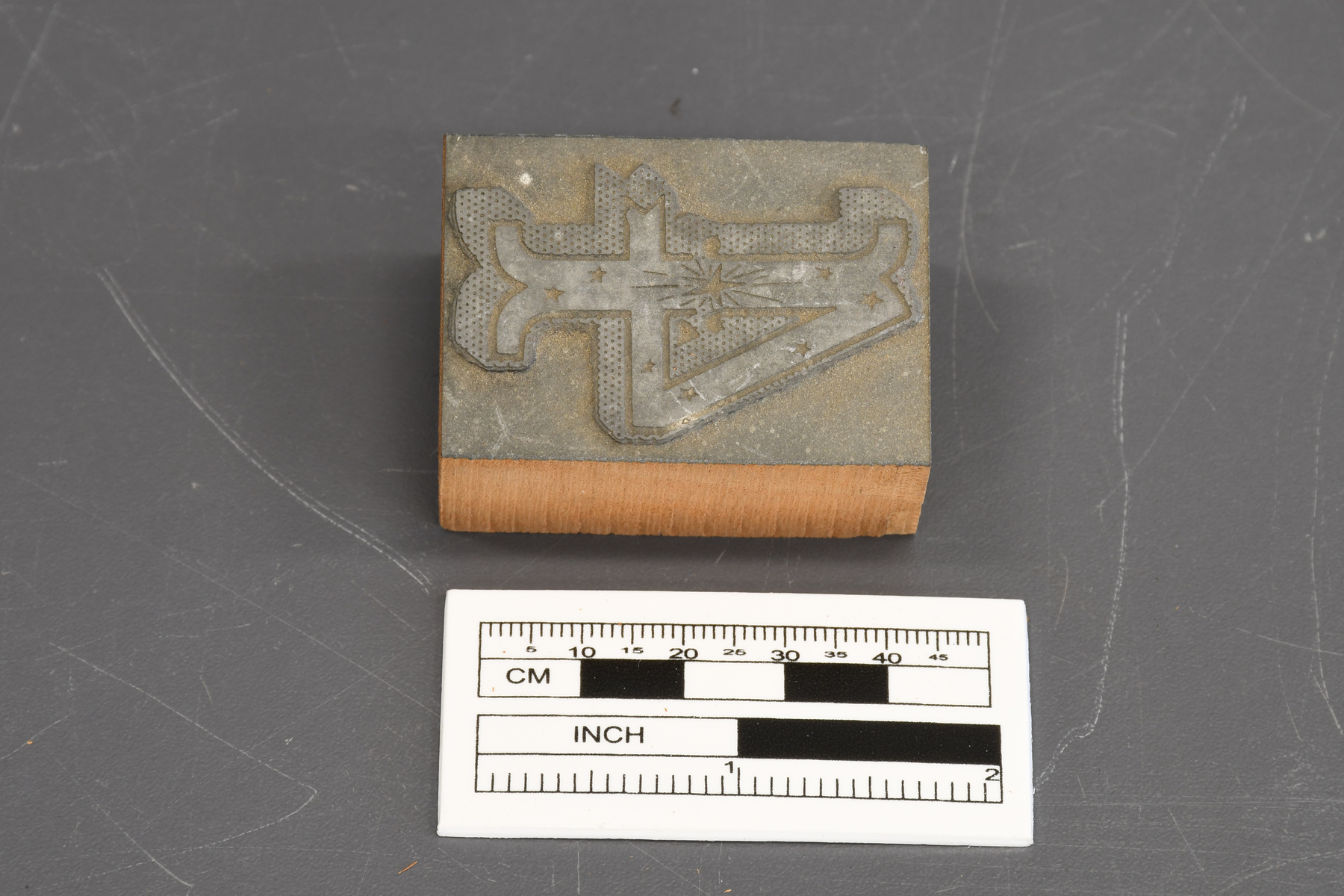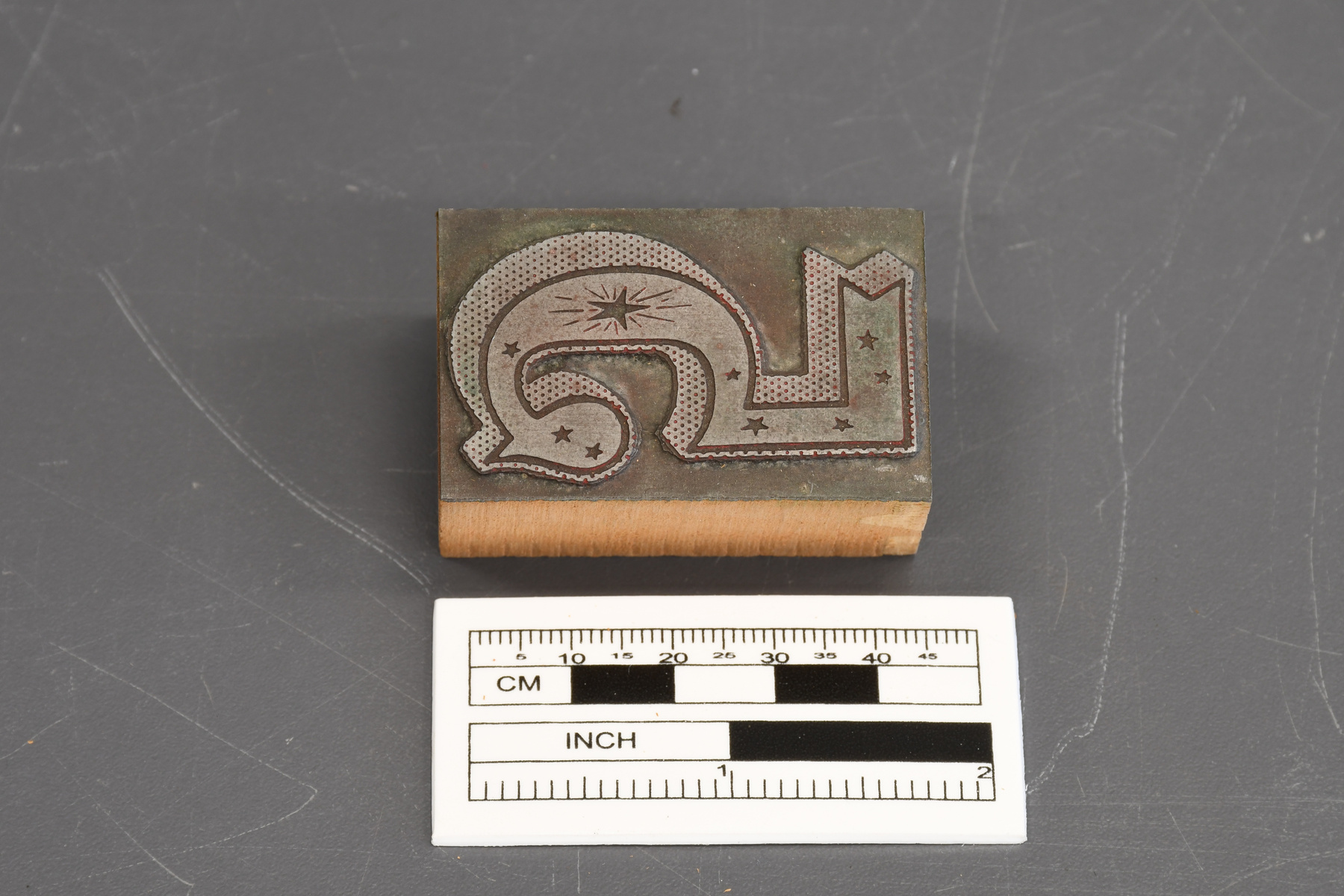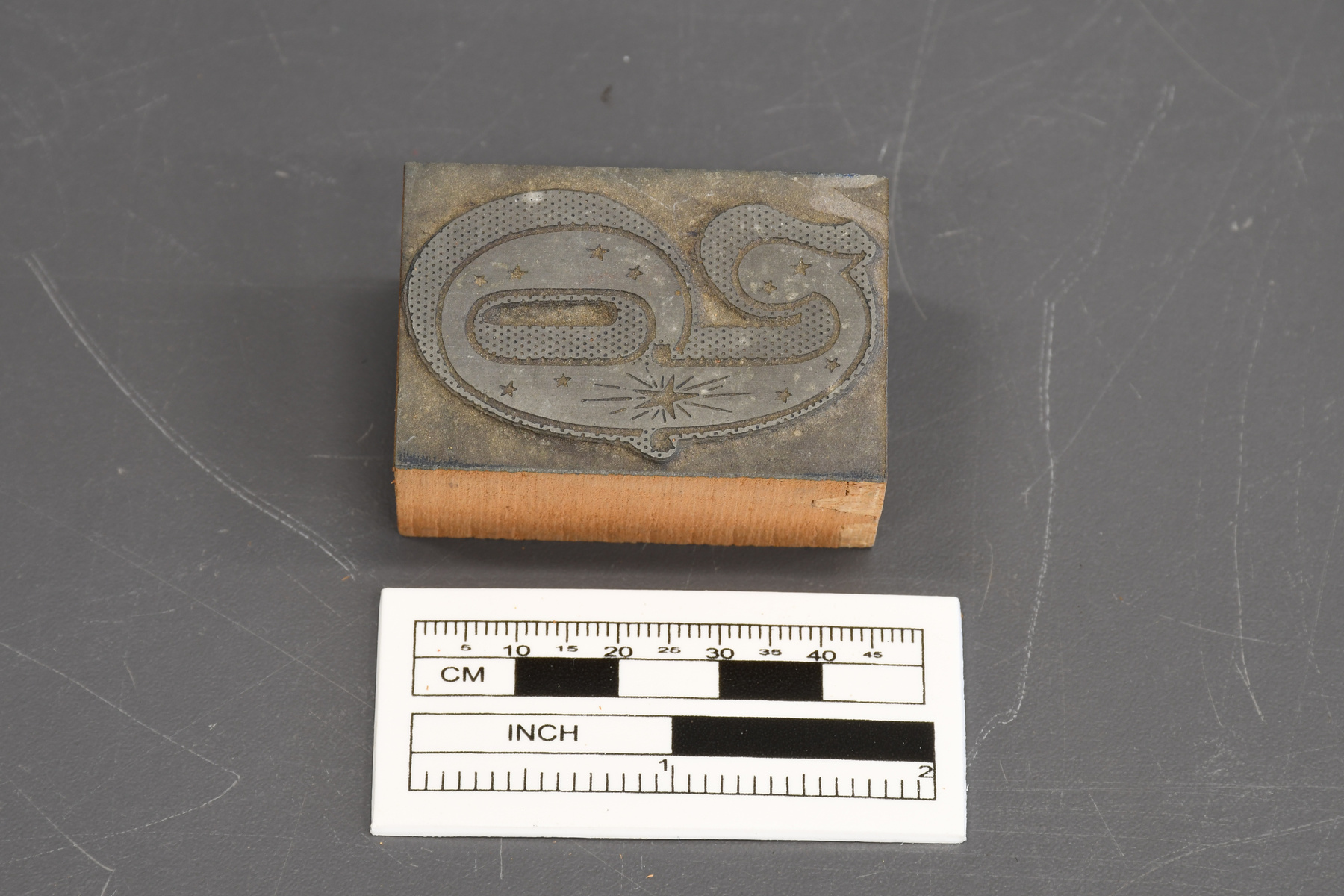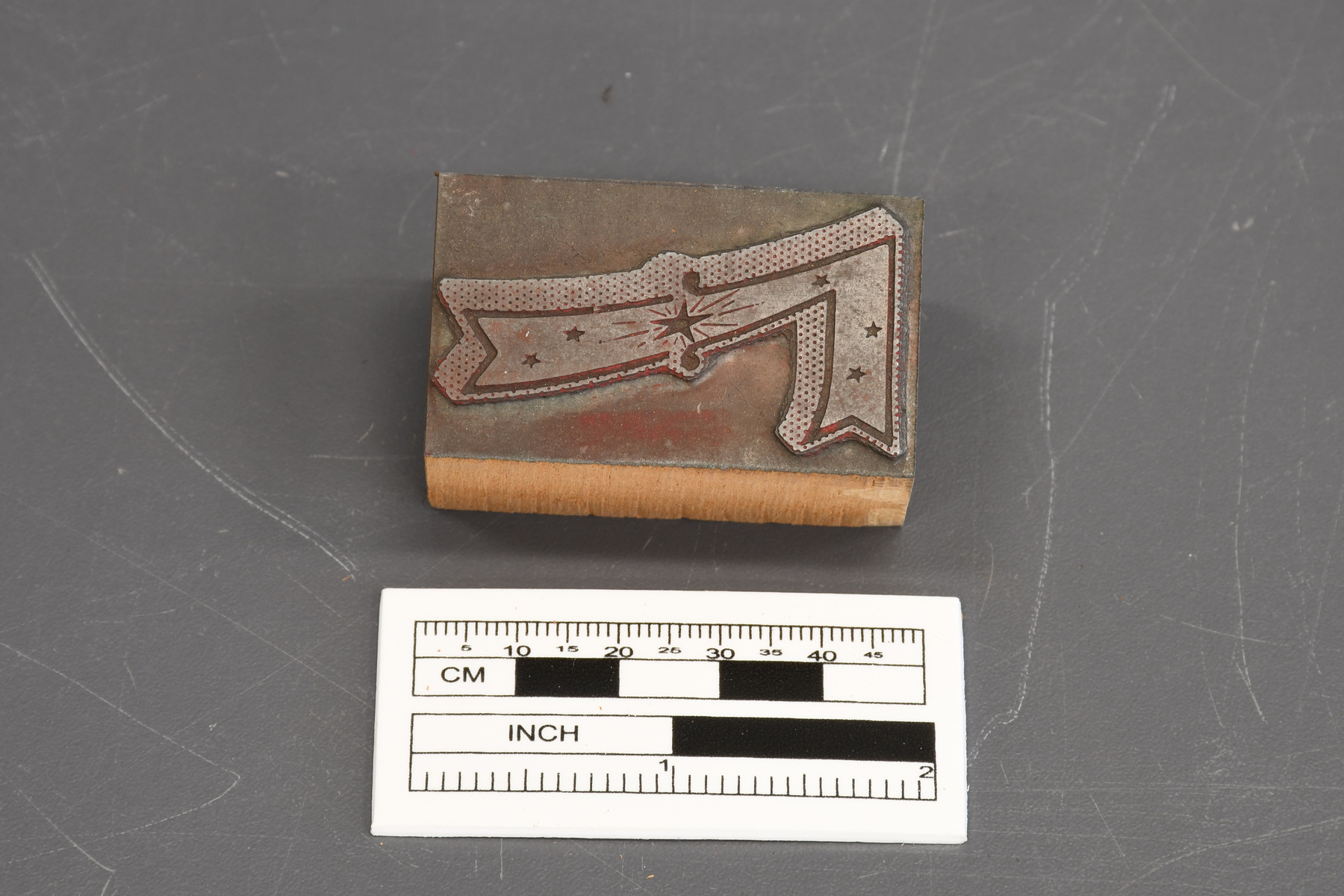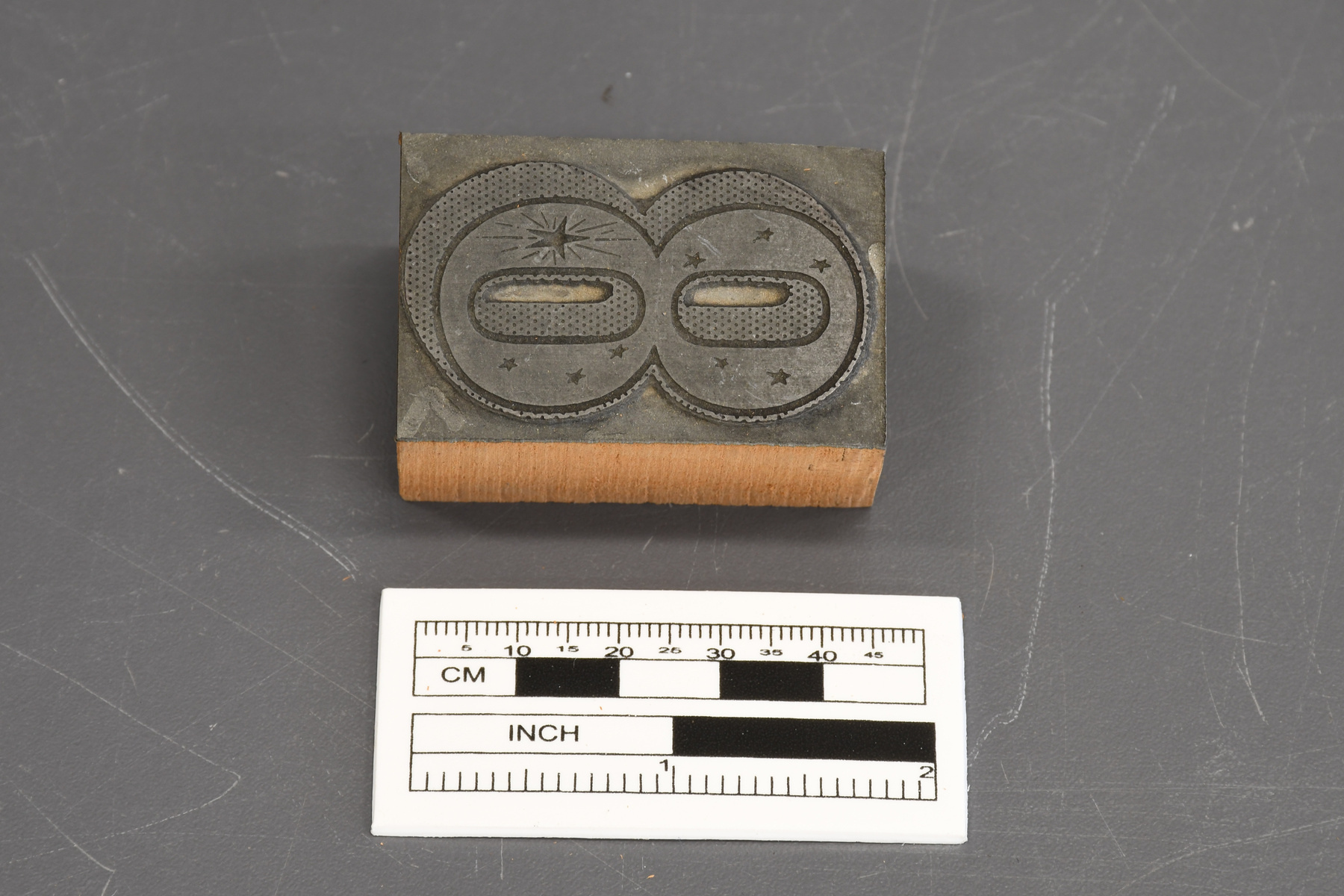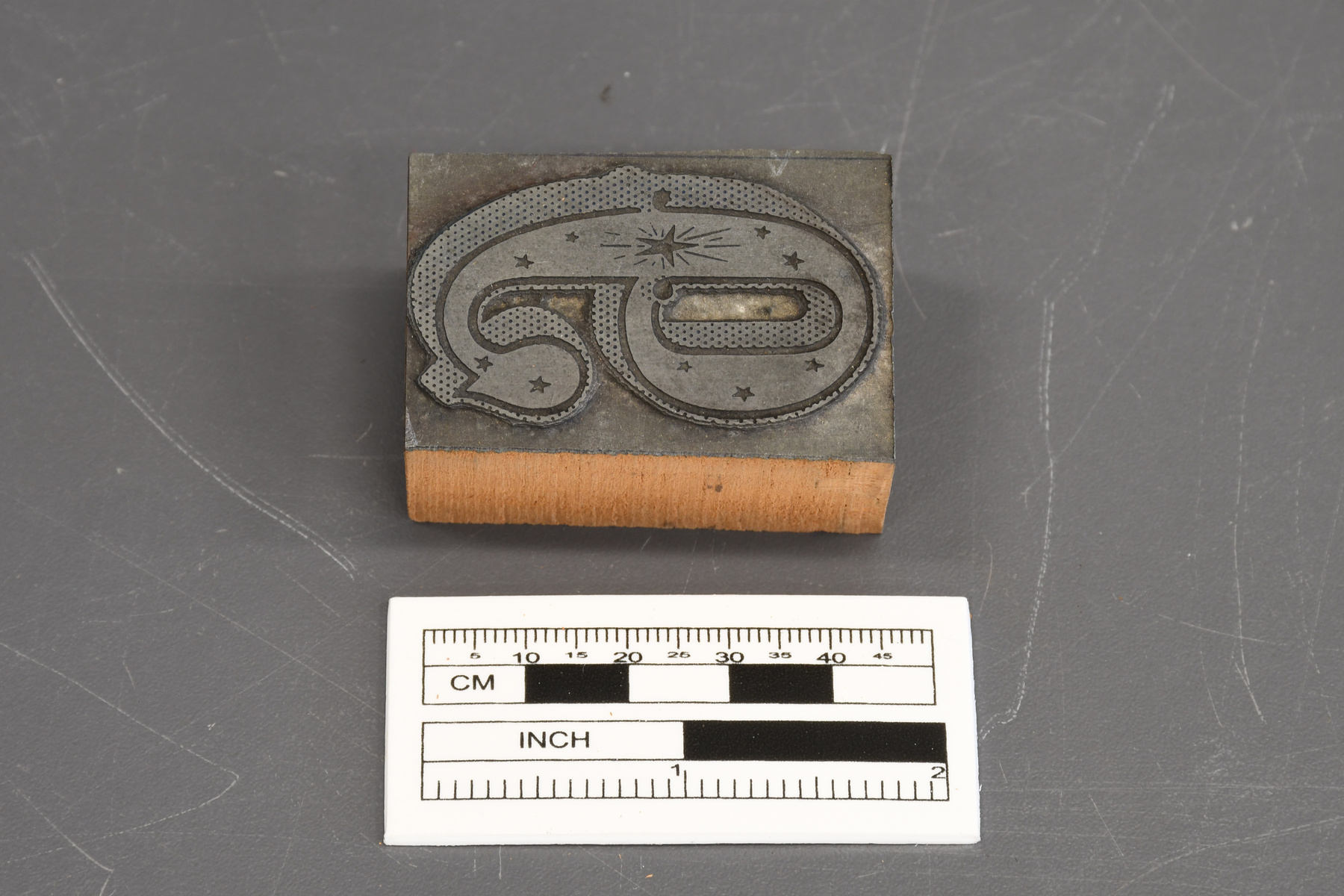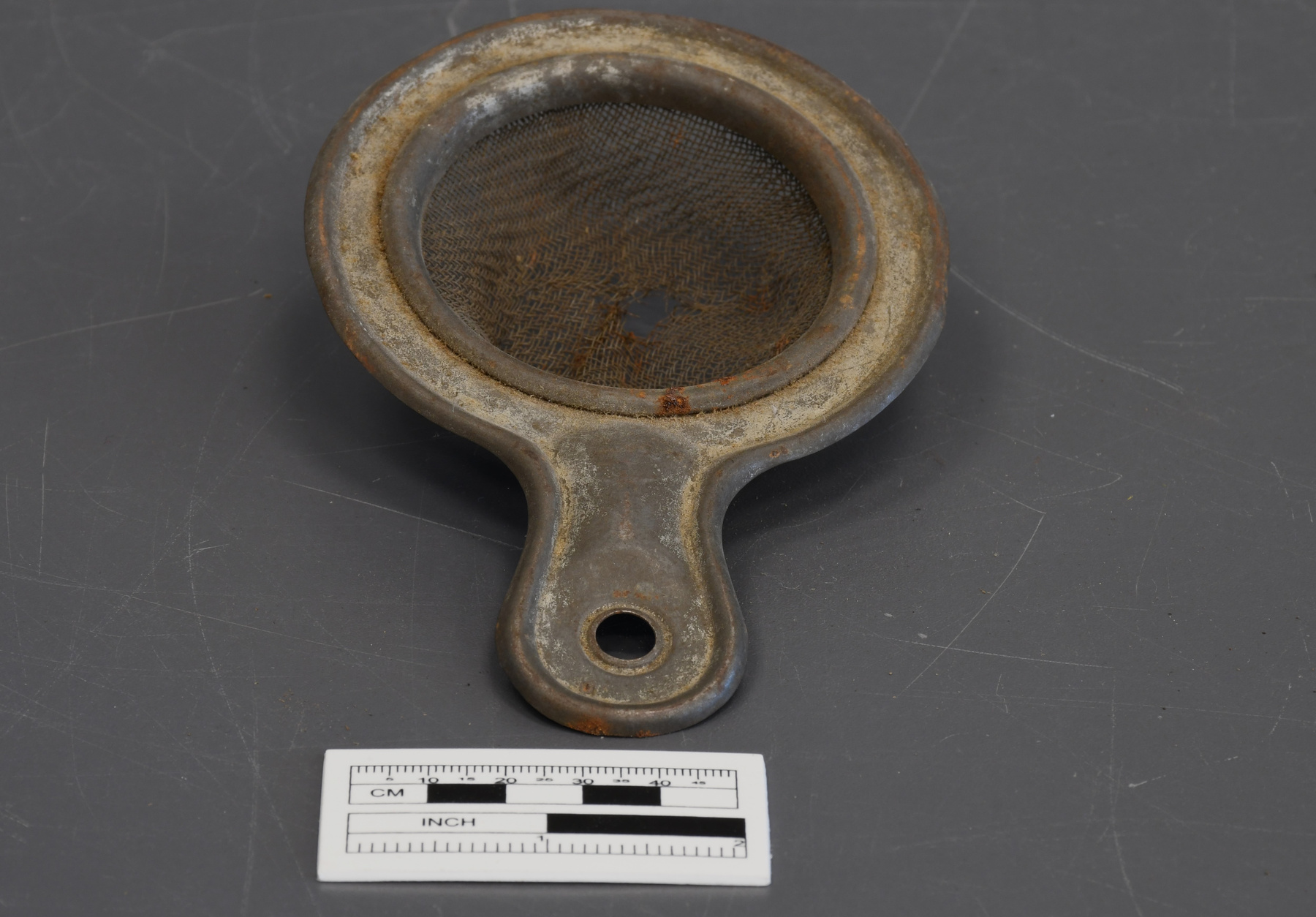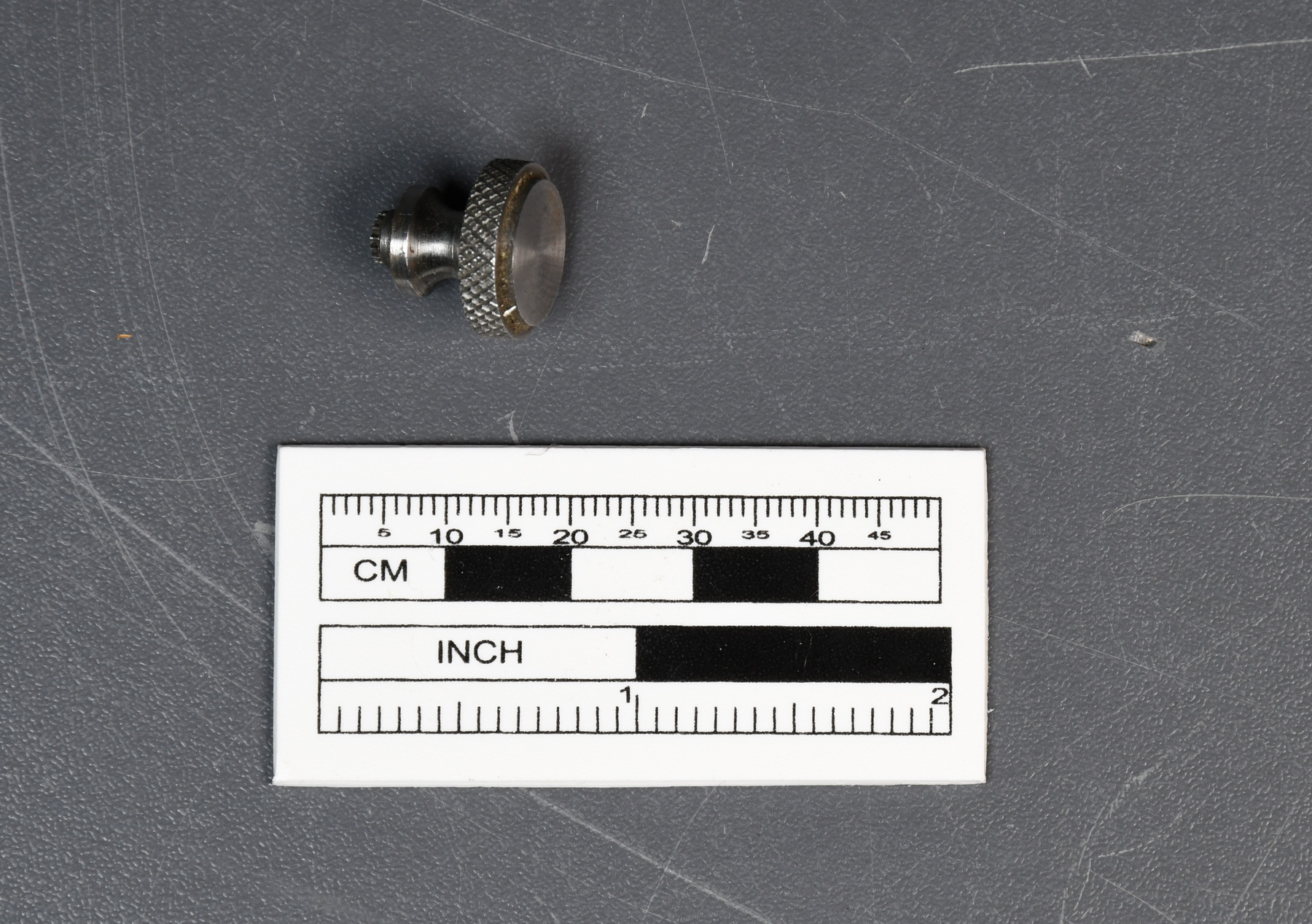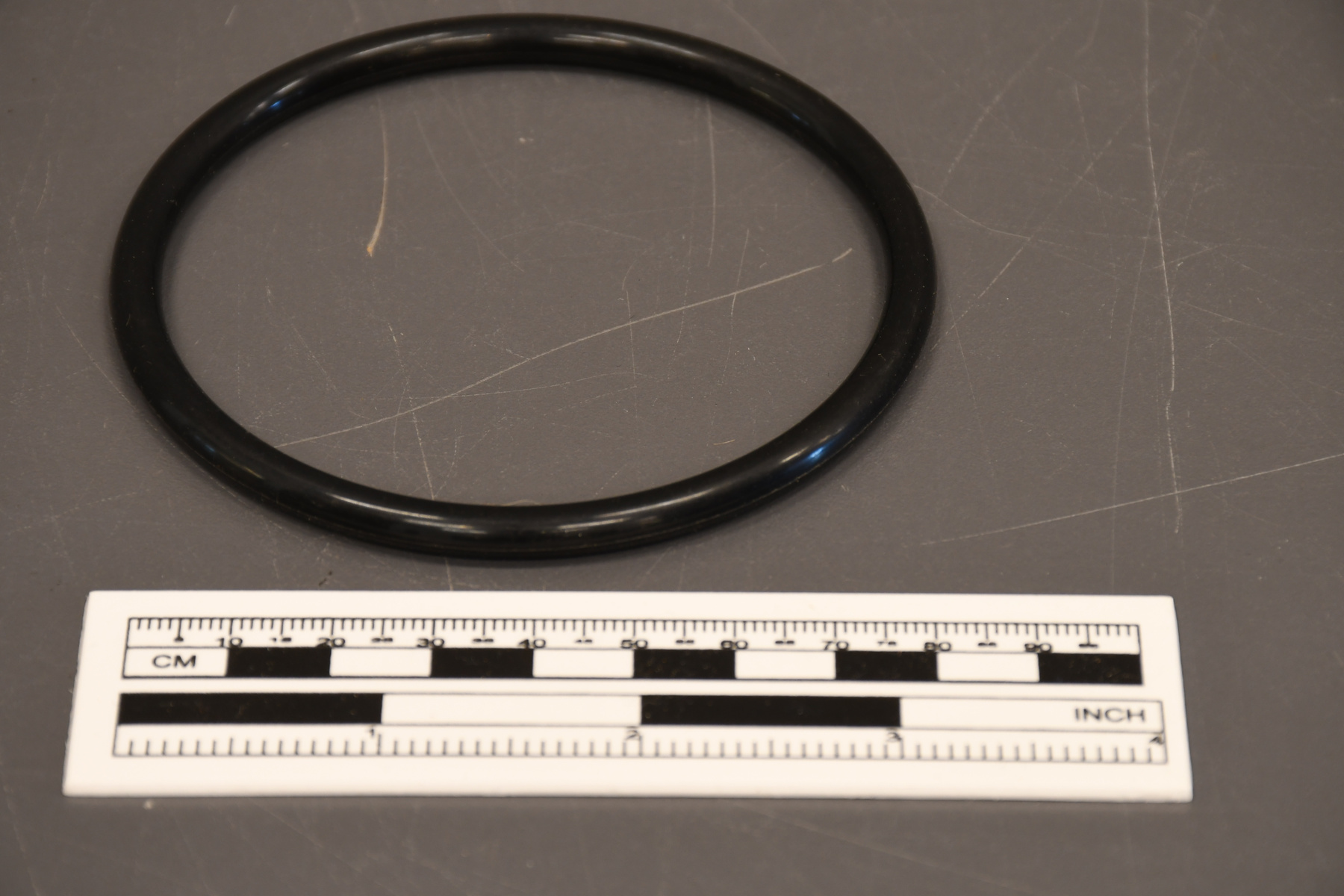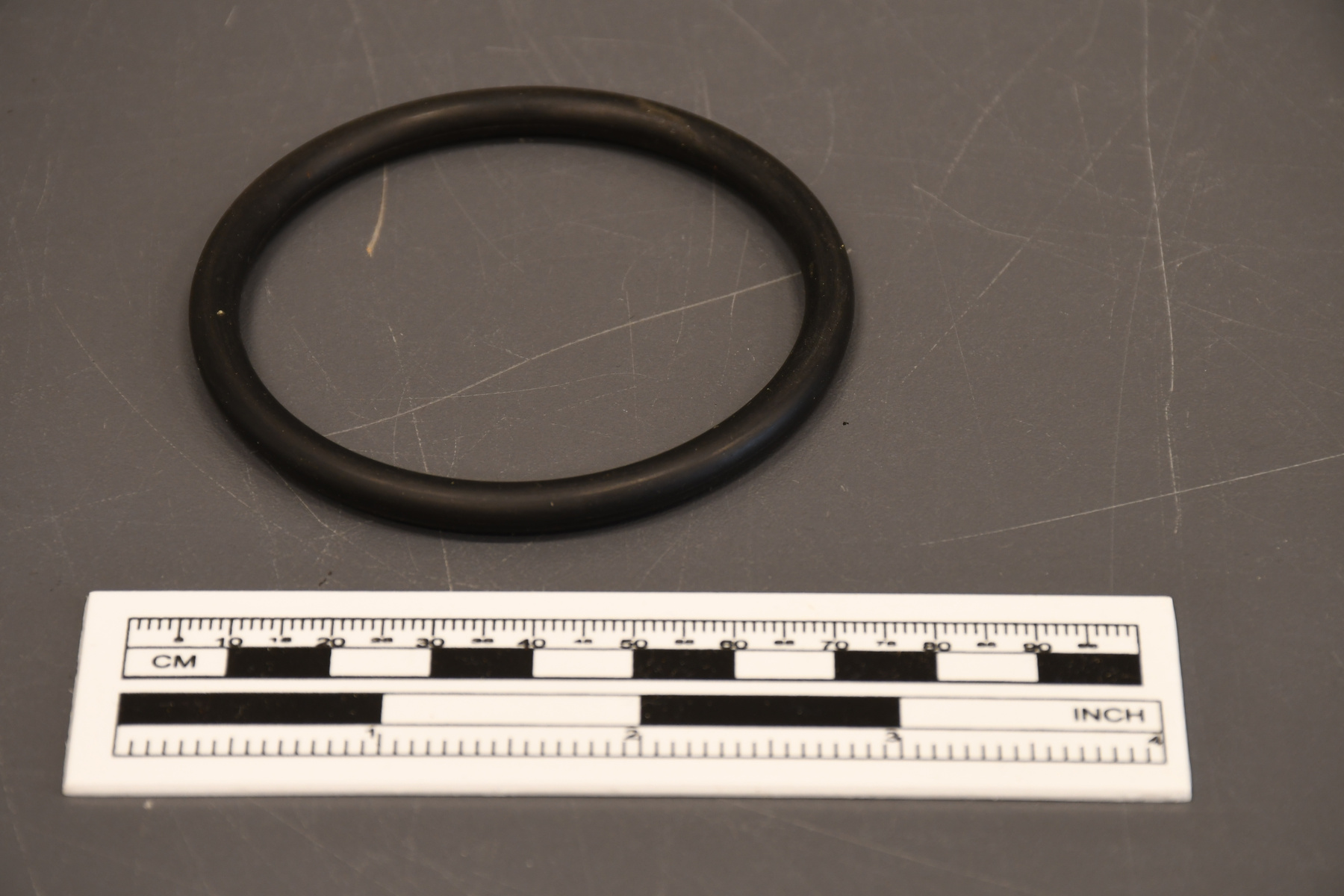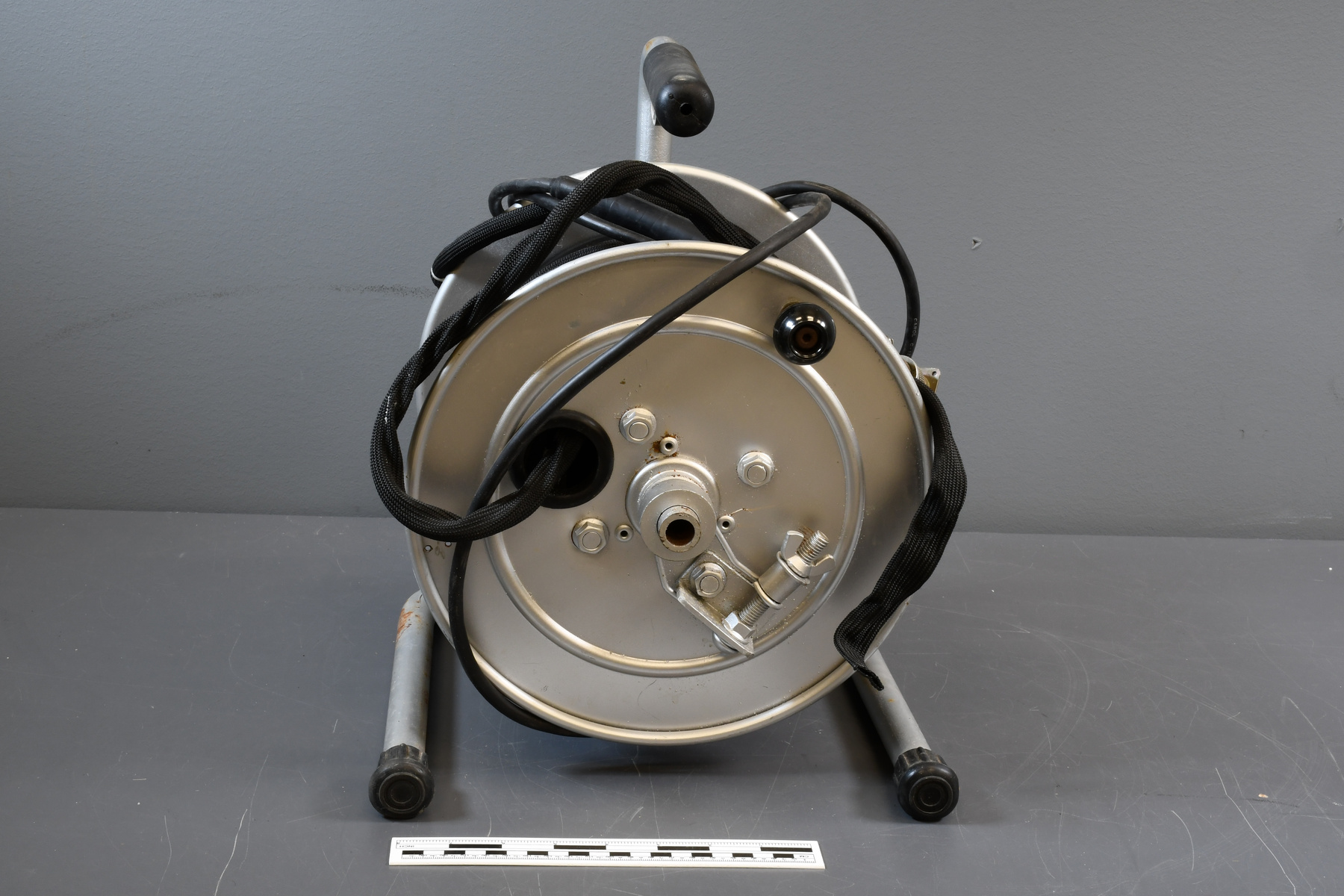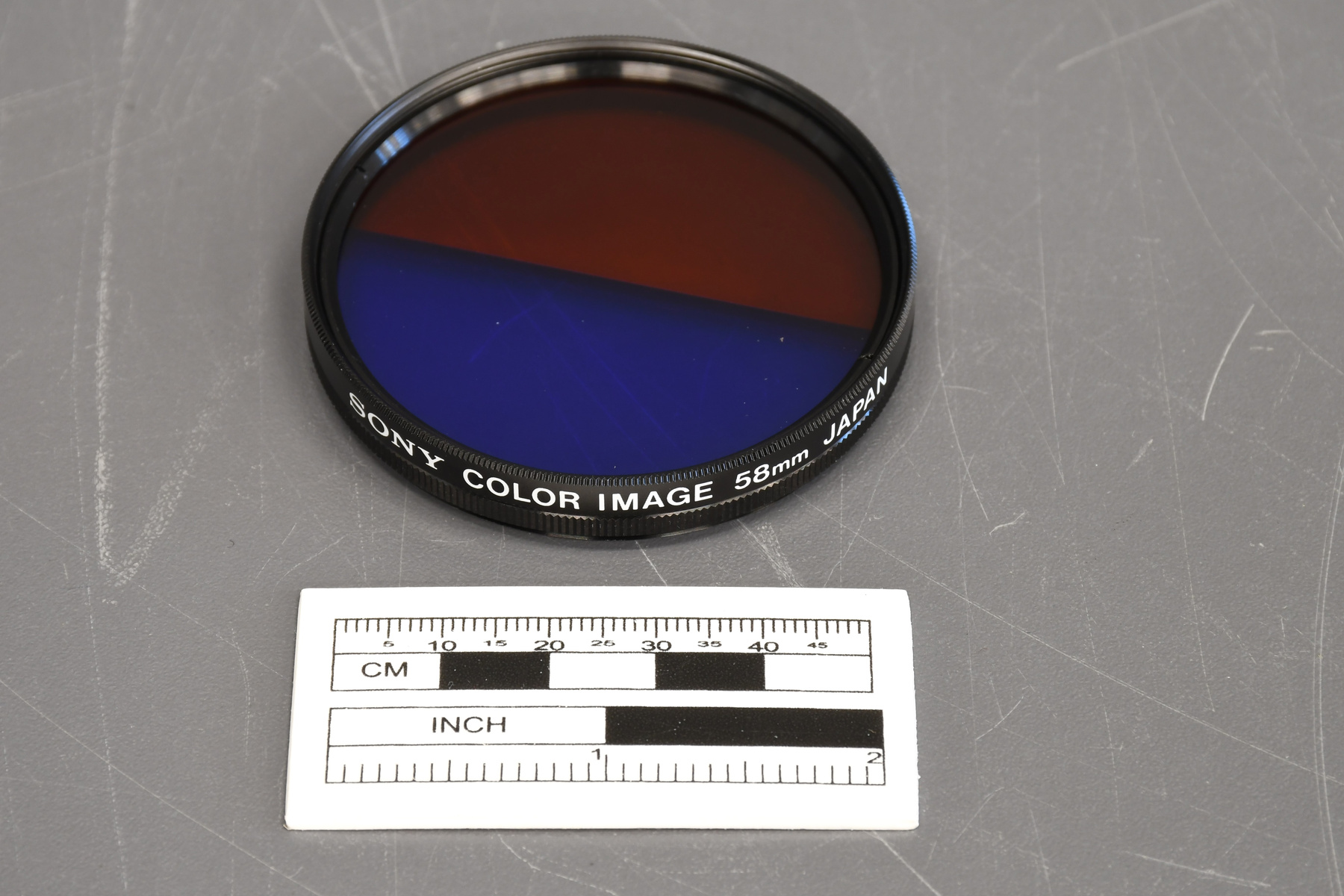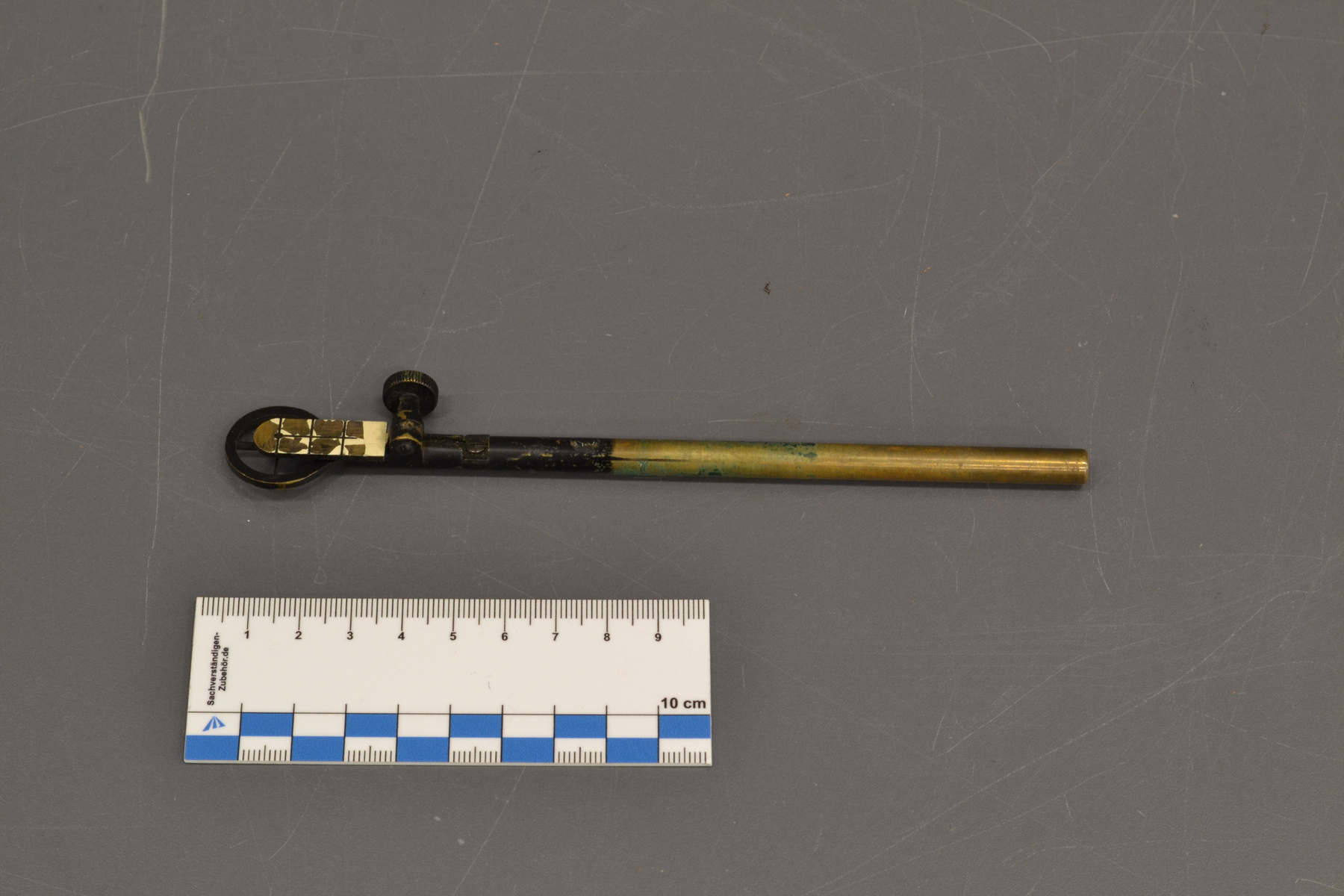Sight
Use this image
Can I reuse this image without permission? Yes
Object images on the Ingenium Collection’s portal have the following Creative Commons license:
Copyright Ingenium / CC BY-NC-ND (Attribution-NonCommercial 4.0 International (CC BY-NC 4.0)
ATTRIBUTE THIS IMAGE
Ingenium,
2012.1157.003
Permalink:
Ingenium is releasing this image under the Creative Commons licensing framework, and encourages downloading and reuse for non-commercial purposes. Please acknowledge Ingenium and cite the artifact number.
DOWNLOAD IMAGEPURCHASE THIS IMAGE
This image is free for non-commercial use.
For commercial use, please consult our Reproduction Fees and contact us to purchase the image.
- OBJECT TYPE
- heliograph
- DATE
- 1927
- ARTIFACT NUMBER
- 2012.1157.003
- MANUFACTURER
- Raw, J. Frank Co. Ltd.
- MODEL
- Unknown
- LOCATION
- Unknown
More Information
General Information
- Serial #
- N/A
- Part Number
- 3
- Total Parts
- 11
- AKA
- Sighting rod and target vane
- Patents
- N/A
- General Description
- Brass rod and sight
Dimensions
Note: These reflect the general size for storage and are not necessarily representative of the object's true dimensions.
- Length
- 17.4 cm
- Width
- 2.9 cm
- Height
- 1.3 cm
- Thickness
- N/A
- Weight
- N/A
- Diameter
- N/A
- Volume
- N/A
Lexicon
- Group
- Communications
- Category
- Visual
- Sub-Category
- N/A
Manufacturer
- AKA
- RAW
- Country
- Unknown
- State/Province
- Unknown
- City
- Unknown
Context
- Country
- Unknown
- State/Province
- Unknown
- Period
- 1927-1965
- Canada
-
J. Frank Raw was a Canadian maker of precision optical, surveying and mathematical instrumentation. In 1925 he took over the optical division of Consolidated run by Thomas Pocklington, one of the other main Canadian makers of the time. Very little is known about Raw and the small precision instrument industry in Toronto in the late 19th and early 20th century. Even though rare, the instruments of Raw represent the existence of a skilled precision instrument trade in Toronto at the turn of the century. In particular, collection research is now pointing to an optical zone that existed between King and Adelaide just east of Yonge street in Toronto. More is known about Raw’s contemporary, Thomas Pocklington, who made and repaired surveying instruments in Toronto between 1925 and 1992. J. Frank Raw était un fabricant Canadien d'instrumentation optique, topographique et mathématique de précision. En 1925, il a pris charge de la division optique de la compagnie Consolidated, qui était opérée par Thomas Pocklington, un des principaux fabricants de l'époque. Peu est connu au sujet de Raw et son industrie à Toronto à la fin du 19e siècle et au début du 20ième siècle. Malgré leurs raretés, les instruments de Raw représentent l'existence d'un métier à instrument à précision habile à Toronto au début du siècle. Plus spécifiquement, la recherche démontre une zone optimale qui existait entre les rues King et Adelaide, à l'est de la rue Yonge à Toronto. Plus est connu au sujet de Thomas Pocklington, qui fabriquait et réparait des instruments topographiques à Toronto entre 1925 et 1992. - Function
-
A rod with a circular sight with cross hairs and a flip-up targeting vane used to help aim the flashes of the heliograph. Une tringle avec viseur circulaire avec réticule et une palette de ciblage utilisé pour aider la précision de l'éclairage de l'héliographe. - Technical
-
No provenance is available for this heliograph. However, the wood of the tripod is stamped with the name “Mis-Can-Ada Limited, Ottawa.” The metal of the tripod is stamped in two places 'stand lamp or helio "A" Mk II.' There is space for a serial number on both sides but no number is stamped on one side whereas there is a faint number 48 on the other. Research into that company and its activities in 1941 may provide useful information. The length of the tripod is 39" non telescopic and as stated was made for a heliograph or for a lamp. The fact that it is not in the catalogue of about the same date and has a low serial number of 30 might mean that this is one of a batch he made on special order for the Canadian government. The later date of 1941 on the tripod might reflect the fact that the earlier instrument was fitted out for war time use. Le bois du trépied est étampé avec le nom "Mis-Can-Ada Limited, Ottawa". Il y a de la place pour un numéro de série sur les deux côtés mais aucun numéro y est étampé, mais on y retrouve le numéro 48 sur un des côtés. Le fait que cet objet ne se retrouve pas dans le catalogue de cette période pourrait suggérer que c'était fabriqué sous des ordres spéciaux du gouvernement Canadien. La longueur du trépied est 39" et était fabriquée pour un héliographe ou une lampe. L'année 1941 est imprimée sur le trépied peut suggérer que cet instrument était désigné pour l'utilisation de guerre. - Area Notes
-
Unknown
Details
- Markings
- Stamped onto the back of the sight: "75"
- Missing
- Appears complete
- Finish
- The lower two thirds of the rod is brass-coloured with some green corrosion. The upper third, including the circular sight and cross hairs and thumb screw have a black finish, and there is a hinged rectangular targeting vane with a rounded top that is brass-coloured with remnants of white paint. Le bas deux tièrs de la tringle est en couleur de laiton avec la corrosion verte. Le tier du haut, incluant la réticule et la vue circulaire ont des détails noir, et il y a une palette de ciblage rectangulaire avec un dessus circulaire qui est en couleur de laiton avec des restes de peinture blanche.
- Decoration
- N/A
CITE THIS OBJECT
If you choose to share our information about this collection object, please cite:
Raw, J. Frank Co. Ltd., Sight, 1927, Artifact no. 2012.1157, Ingenium – Canada’s Museums of Science and Innovation, http://collection.ingeniumcanada.org/en/item/2012.1157.003/
FEEDBACK
Submit a question or comment about this artifact.
More Like This
